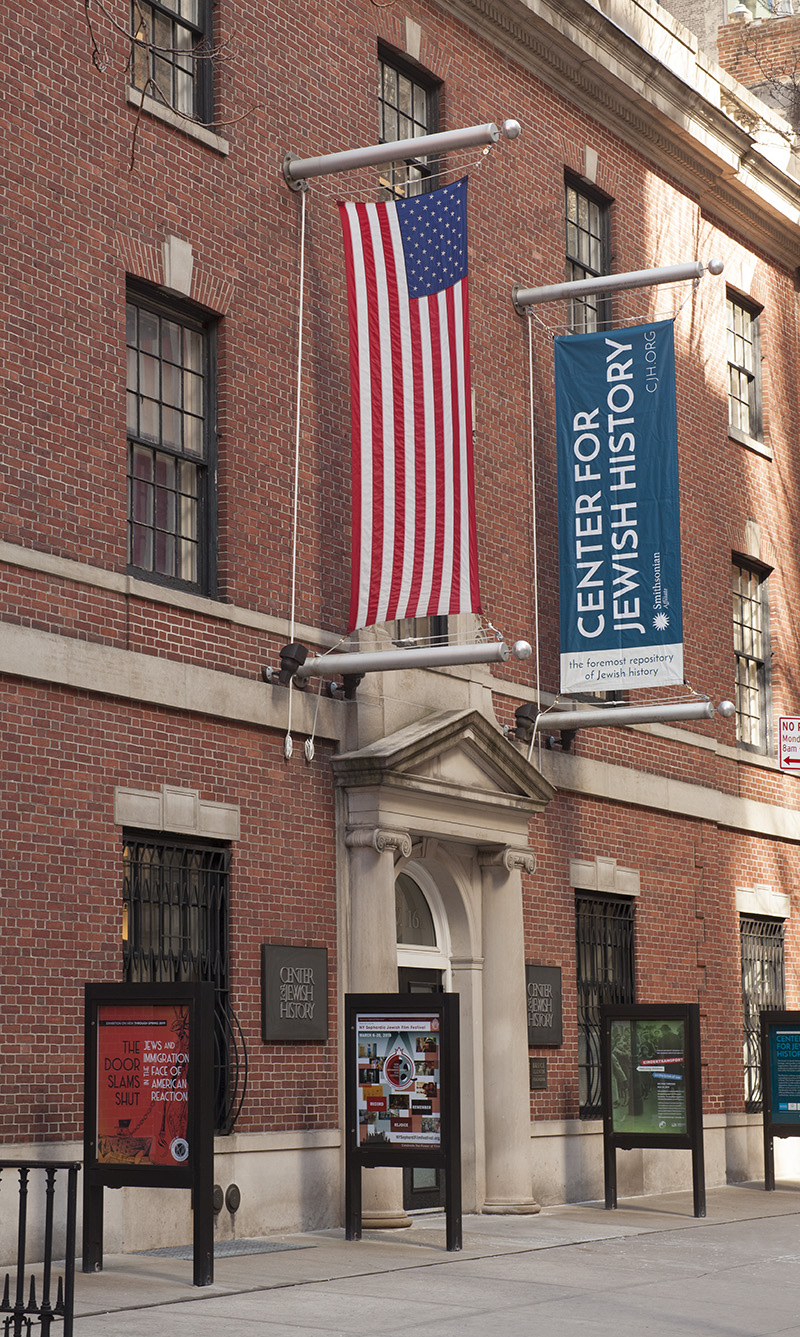gallery tour
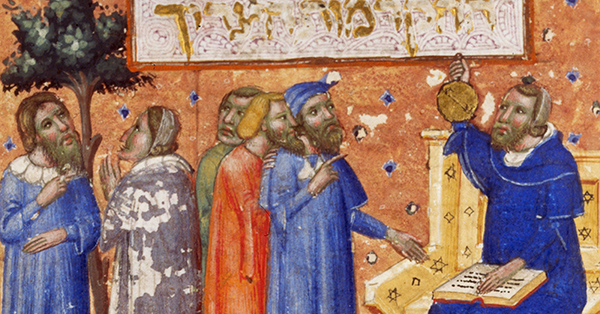
Museum Director's Tour of The Golden Path: Maimonides Across Eight Centuries - In-person Event
Join YUM’s Director Gabriel Goldstein for a guided tour of The Golden Path: Maimonides Across Eight Centuries, illuminating the life and impact of the multifaceted luminary and great Jewish sage across continents and cultures through rare manuscripts and books. Exhibition highlights include manuscripts in Maimonides’s own handwriting, a carved 11th century door to the Torah ark from Cairo’s Ben Ezra Synagogue, and beautifully illuminated medieval manuscripts.
Ticket Info: Free admission but reservations are required. For reservations, please email rsvp@yum.cjh.org. Limited space.
Presented by:
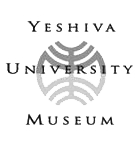
gallery tour
gallery tour

Exhibition Tour of The Golden Path: Maimonides Across Eight Centuries - In-person Event
Join Ilana Benson, YUM’s Director of Museum Education for a guided tour of The Golden Path: Maimonides Across Eight Centuries, illuminating the life and impact of the multifaceted luminary and great Jewish sage across continents and cultures through rare manuscripts and books. Exhibition highlights include manuscripts in Maimonides’s own handwriting, a carved 11th century door to the Torah ark from Cairo’s Ben Ezra Synagogue, and beautifully illuminated medieval manuscripts.
Ticket Info: Free admission but reservations are required. For reservations, please email RSVP@yum.cjh.org.
Presented by:

gallery tour
lecture
A Very Jewish Christmas: When Jesus Spoke Yiddish - In-person and Live on Zoom
It is a curious fact that among the first Yiddish books ever printed was a translation of the New Testament, which appeared in 1540, only 18 years after Luther's famous translation (which it shamelessly cribbed). In the centuries that followed, another dozen or so missionary translations directed to Yiddish-speaking Jews followed. This talk will explore a dramatic change in the character of these translations in the twentieth century, when new conceptions of the Yiddish language, new cosmopolitanism in Yiddish culture, and new understandings of Jewish-Christian conversion converged to create new translation styles that aimed to express Jesus's Jewishness through a rich and haymish Yiddish.
Join YIVO for a very Jewish Christmas celebration featuring a talk on Yiddish translations of the New Testament by Naomi Seidman. A kosher Chinese food dinner will follow the presentation.
About the Speaker
Naomi Seidman is the Jackman Humanities Professor at the University of Toronto, in the Department for the Study of Religion and the Centre for Diaspora and Transnational Studies. Her fourth book, Sarah Schenirer and the Bais Yaakov Movement: A Revolution in the Name of Tradition, won a National Jewish Book Award in Women's Studies in 2019. A 2016 Guggenheim Fellow, Professor Seidman is presently completing a study of the Hebrew and Yiddish translations of Freud's writings during his lifetime. Her podcast on leaving the ultra-Orthodox Jewish world, Heretic in the House, was recently released by the Shalom Hartman Institute.
Ticket Info:
In Person: $15; YIVO members & students: $10
Zoom Livestream: Free; registration is required.
Presented by:

lecture
gallery tour

Collector’s Tour of The Golden Path: Maimonides Across Eight Centuries – Featuring Highlights from the Hartman Family Collection of Manuscripts and Rare Books - In-person Event
Join Collector Robert Hartman for a guided tour of The Golden Path: Maimonides Across Eight Centuries, illuminating the life and impact of the multifaceted luminary and great Jewish sage across continents and cultures through rare manuscripts and books. Exhibition highlights include manuscripts in Maimonides’s own handwriting, a carved 11th century door to the Torah ark from Cairo’s Ben Ezra Synagogue, and beautifully illuminated medieval manuscripts.
About the Speaker
Robert Hartman, a prominent Chicago-based business and lay leader, has amassed a wide-ranging collection of manuscripts and rare printed Maimonidean material over the past twenty-five years.
Ticket Info: Free admission but reservations are required. For reservations, please email rsvp@yum.cjh.org. Limited space.
Presented by:

gallery tour
lecture
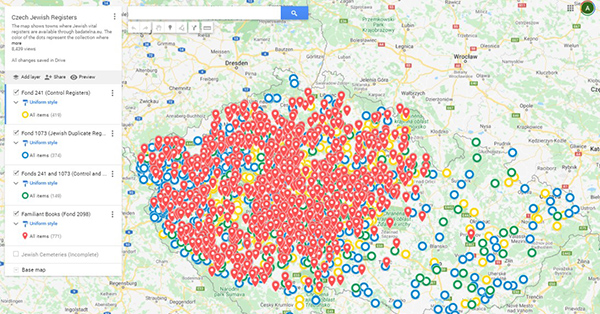
Mapping Your Family History: How to Create a Customized Google Map – In Person & Live on Zoom
Learn how to create maps with your own data on Google Maps. This presentation will teach you how to create a custom map, import location data associated with family history events or source records and then customize the appearance of that data on the map. Custom maps can be used in many ways, including visually conveying family migration patterns, showing the location of regional cemeteries, or which towns hold certain vital records. Resulting maps can also be imported into Google Earth.
Alex Calzareth is a genealogist focusing on Southwest Germany, the Czech Republic and Southern Italy who began researching his family roots 25 years ago. He is a board member of Reclaim the Records and the Jewish Genealogy Society of Long Island, serving as JGSLI's webmaster. Alex is also the JewishGen Research Director for Germany. He lives in New York City and works as a CPA.
Ticket Info:
In person: Admission is free for members; $5 at the door for non-members, RSVP to program@jgsny.org with the subject line: RSVP December Meeting.
Zoom: Zoom participation is free to all. Pre-registration is required here.
Presented by:

lecture
conference

Maimonides Now & Then – a Public Conference
Pre-conference tour at 1:00 of The Golden Path: Maimonides Across Eight Centuries, with collector Robert Hartman
SESSION 1: 2:00 P.M. – 3:05 P.M. Philosophy & Halakhah | Chair: Dr. Daniel Rynhold
Dr. Shira Weiss, Yeshiva University
Rabbi Dr. Itamar Rosensweig, Yeshiva University
Dr. Shira Billet, Jewish Theological Seminary
SESSION 2: 3:05 P.M. – 4:10 P.M. History & Culture | Chair: Dr. David Berger
Dr. David Sclar, Princeton University/frisch School
Dr. Ronnie Perelis, Bernard Revel Graduate School
Dr. Steven Fine, Bernard Revel Graduate School
SESSION 3: 4:15 P.M. – 5:00 P.M. Keynote Address | Chair: Dr. David Shatz
Dr. James Diamond, University of Waterloo, Ontario
Ticket Info: Free, please RSVP at RSVP@yum.cjh.org
Please indicate your participation in 1:00 pre-exhibition tour in RSVP for the conference.
Presented by:

conference
gallery tour

Exhibition Tour of The Golden Path: Maimonides Across Eight Centuries - In-person Event
Join Ilana Benson, YUM’s Director of Museum Education for a guided tour of The Golden Path: Maimonides Across Eight Centuries, illuminating the life and impact of the multifaceted luminary and great Jewish sage across continents and cultures through rare manuscripts and books. Exhibition highlights include manuscripts in Maimonides’s own handwriting, a carved 11th century door to the Torah ark from Cairo’s Ben Ezra Synagogue, and beautifully illuminated medieval manuscripts.
Ticket Info: Free admission but reservations are required. For reservations, please email RSVP@yum.cjh.org.
Presented by:

gallery tour
book launch
The Controversialist: Arguments with Everyone, Left, Right, and Center – In-Person & Live on YouTube
To mark the publication of Martin Peretz’s autobiography, The Controversialist: Arguments with Everyone, Left Right and Center, the Center for Jewish History invites you to a conversation between Peretz and longtime New Republic literary editor, Leon Wieseltier.
From 1974 to 2012, during his years as publisher and editor-in-chief of the New Republic, Martin Peretz was a familiar presence on the American political scene. In its time under his leadership, the magazine was always fresh, erudite, contrarian, and brave. Anyone interested in finding out the most distinctive expert takes on the issues that mattered—whether they be domestic or international, cultural, or political—knew that the New Republic was required reading. In addition, Peretz spent over 40 years as a teacher in the Social Studies program at Harvard. The list of his former students is a who's who of American political life, including former vice president Al Gore, Robert F. Kennedy, Jr., and many more.
The Controversialist begins in a vibrant but tragedy-stricken community of Yiddish Jews in his native Bronx and takes Peretz, blessed with that rare trait of always being in the right place at the right time, into the same rooms as some of the most prominent writers, thinkers, businessmen, activists, and politicians of the 20th and 21st centuries. Peretz’s insights into his relationships with these men and women—many of them his students, teachers, colleagues, friends, and, of course, enemies—are both original and illuminating.
Through his examination of the personalities, not least his own, at the center of the events that have defined the postwar and neoliberal decades, Peretz makes a rich and compelling argument for the ideals that have been the focus of his life: liberalism, democracy, and Zionism. In revisiting this rich life, he considers, too, what will come next now that those ideals are no longer assured.
The conversation will be followed by a reception, book sales, and signing.
Ticket Info:
In-person tickets: Pay what you wish; click here to register
YouTube: Pay what you wish; click here to register
Presented by:

book launch
book launch and panel discussion
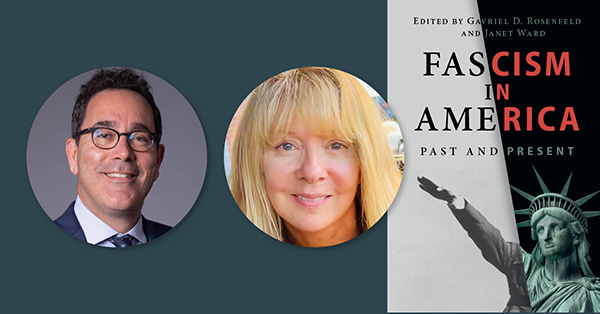
Fascism in America: Past and Present - In-Person Event & Live on YouTube
Join us for the launch of a timely new book on the history of fascism in the United States from the 1930s to today. Co-editors Gavriel Rosenfeld and Janet Ward will lead a panel discussion on Fascism in America: Past and Present (Cambridge University Press, 2023), featuring many of the volume’s contributors, including Anna Duensing, Linda Gordon, Alexander Reid Ross, Ousmane Power-Greene, Matthew Specter, Richard Steigmann-Gall, andThomas Weber. After the program, there will be a light reception. The book will also be available for sale and signing.
Ticket Info: Pay what you wish
Register for in-person tickets here.
Register for YouTube tickets here.
Presented by:

book launch and panel discussion
concert
Shir Hashirim — An Operetta by Rumshinsky and Shor - In-person and Live on Zoom
Join YIVO for a performance of the music of Shir Hashirim (The Song of Songs), a 1911 operetta by Joseph Rumshinsky and Anshel Shor. Premiered in NYC, Shir Hashirim was subsequently performed around the world. It was so popular that a 1935 film was made based on it, and, according to Rumshinsky, a young George Gershwin could play the whole score by heart. Shir Hashirim is a musical comedy which features several interlocking love triangles that include an aging composer along with his children and their lovers and friends. The work also touches on serious topics including love, mortality, and women's suffrage. Reconstructed from a variety of archival materials collected at YIVO, UCLA, and the Library of Congress, the operetta will be performed by students of the Bard Conservatory Vocal Arts Program.
The Sidney Krum Young Artists Concert Series is made possible by a generous gift from the Estate of Sidney Krum.
Ticket Info:
In Person: $15; YIVO members & students: $10
Zoom Livestream: Free;
registration is required.
Presented by:

concert
yiddish club
Yiddish Club with Dylan Seders Hoffman - Live on Zoom
Nu, vilst redn a bisele yidish? An event for Yiddish enthusiasts the world over, the YIVO Yiddish club is an informal monthly gathering to celebrate Mame-loshn. Hosted by Shane Baker, sessions take place in English, and are liberally peppered with Yiddish. Each month Baker is joined by a different guest who discusses their work and a related Yiddish cultural theme. In the spirit of a club, sessions are held as interactive zoom meetings in which participants can see and hear one another. Each session includes ample time for audience questions, group discussion, and, time permitting, knock-down, drag-out arguments. Attendees need not know any Yiddish to attend, though some familiarity with the language is highly recommended.
This session features actor, singer, and filmmaker, Dylan Seders Hoffman. She is the founder and artistic director of Chava Productions, a film production company which presents original works located at the intersection of pop culture and 21st century Jewishness with a generous dose of Yiddish. Chava Productions’ first short film Yiddish Mean Girls premiered in the fall of 2022. As an actor, she has performed Off-Broadway with the National Yiddish Theatre Folksbiene, including in their New York Times Critic's Pick production The Sorceress, with the New Yiddish Rep, and at the New York Theatre Festival.
Ticket Info: Free; register at yivo.org/YiddishClub22 for a Zoom link
Presented by:

yiddish club
concert
Hanukkah Concert 2023: Jazzukkah for Hanukkah - In-person Event
The Jazzukkah Project is an ensemble that is putting a new sonic spin on the Hanukkah canon, some in English, some in Hebrew, and some instrumental. Their music pays homage to and updates familiar holiday classics, mixing them with jazz cool and salsa flair. For instance, they give “I Have A Little Dreidel” a bebop makeover, inject “Hanukkah, Oh, Hanukkah” with Afro-Cuban grooves and also play original material, like the ballad “Hanukkah Blues.”
As is traditional at the Annual Hanukkah Concert, the evening will begin with a story by Isaac Bashevis Singer, the famed Yiddish-speaking author, this year read by noted actress Eleanor Reissa.
Led by the acclaimed bassist Giliad Abro, one of Israel’s top jazz musicians, The Jazzukkah Project will include jazz pianist Tom Oren, percussionist Alon Benjamini, and singer-songwriter, Elana Rozenfeld.
Ticket Info: $18; ASJM & YIVO members: $12; Seniors & students: $9
Presented by:

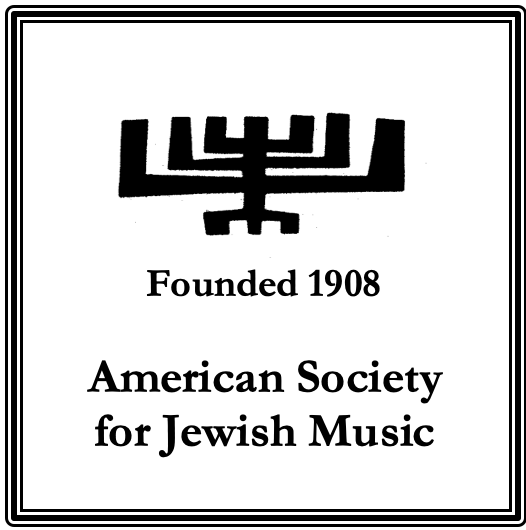
concert
concert
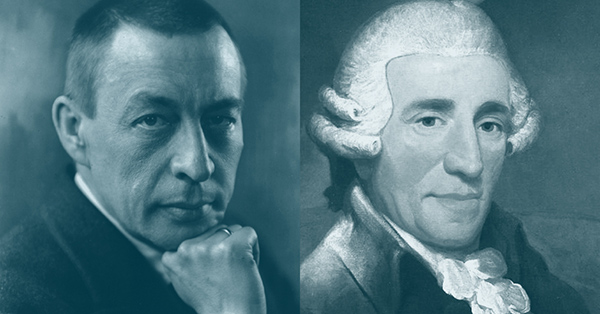
Rachmaninoff at 150! Phoenix Chamber Ensemble celebrates Chanukah with music by Rachmaninoff, Haydn, and more – In-person event and on YouTube
Join Phoenix Chamber Ensemble pianists Vassa Shevel and Inessa Zaretsky and guest artists Anna Elashvili on violin, Raman Ramakrishnan on cello, and Ivan Filipchyk on accordion. The concert will begin with Lullaby by Sephardic composer Paul Ben-Haim in memory of the terror victims in Israel. The program will include pieces by Rachmaninoff, Bach, Haydn, and Piazolla, and the concert will conclude with Yemei HaChanukah in celebration of the first night of the holiday.
Made possible by the Stravinsky Institute Foundation through the generous support of the Blavatnik Family Foundation.
Ticket Info:
In person: $15 general; $13 seniors, students; $12 members; register here
On YouTube: Pay what you wish; register here
Presented by:

concert
book talk
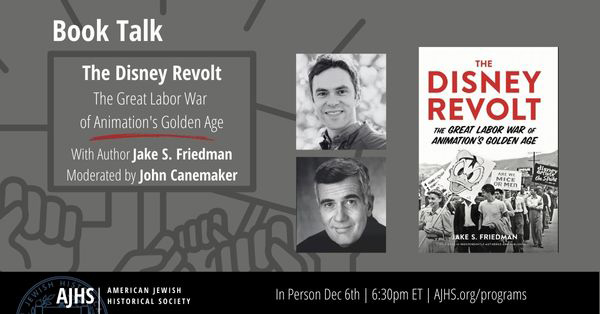
The Disney Revolt- The Great Labor War of Animation's Golden Age – In-person Event
Author Jake S. Friedman joins us with moderator John Canemaker for an in-person discussion at the Center for Jewish History.
Soon after the birth of Mickey Mouse, one animator raised Walt Disney Productions far beyond Walt’s expectations. That animator also led a union war that almost destroyed the company. Art Babbitt worked for the Disney studio throughout the 1930s and through 1941, years in which he and Walt were driven to elevate animation as an art form, as seen in Snow White and the Seven Dwarfs, Pinocchio, and Fantasia. But as America struggled through the Great Depression and an impending World War, labor unions spread across Hollywood. Disney fought the unions while Babbitt embraced them. Soon, angry Disney cartoon characters graced picket signs as hundreds of artists went out on strike. Adding fuel to the fire was Willie Bioff, one of Al Capone’s wiseguys, who was seizing control of Hollywood workers and vied for the animators’ union. This is the untold story of American idealism, and how businessmen, artists, and the Mafia fought for control of the world’s most famous studio. Using never-before-seen research from previously lost records, including conversation transcripts from within the studio walls, author and historian Jake S. Friedman reveals the details behind the labor dispute that changed animation and Hollywood forever.
Jake S. Friedman is a New York–based writer, teacher, and artist. He is a longtime contributor to Animation Magazine, and has also written for American History Magazine, The Huffington Post, Animation World Network, Animation Mentor, and The Philadelphia Daily News. For ten years he was an animation artist for films and television as seen on Nickelodeon, Disney Channel, and Saturday Night Live. He currently teaches History of Animation at the Fashion Institute of Technology and at New York University’s Tisch School of the Arts. The rest of his time he specializes in mental health for the creative psyche.
John Canemaker has won an Academy Award, an Emmy and a Peabody Award for his animation and is an internationally renowned animation historian and teacher at NYU. His film, The Moon and the Son: An Imagined Conversation, won an Oscar in 2005 for Best Animated Short, as well as an Emmy. A 28-minute autobiographical essay about a troubled father/son relationship, The Moon and the Son marked a personal and professional breakthrough in animation storytelling. Canemaker is also a noted author who has written nine books on animation, as well as numerous essays, articles and monographs for The New York Times and The Wall Street Journal, among other publications.
Ticket Info: $10 General Admission or $35 Admission + Copy of the Book
Presented by:

book talk
conversation
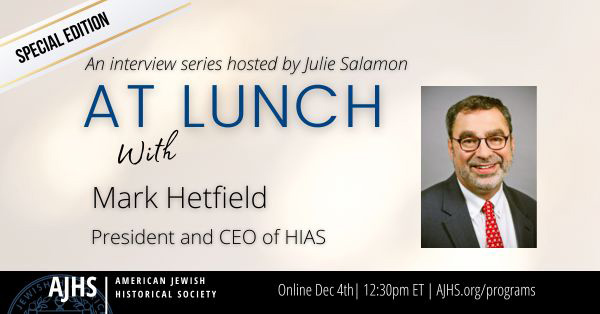
At Lunch with Mark Hetfield – Live on Zoom
Julie Salamon (Author and Journalist) sits down with the President and CEO of HIAS, Mark Hetfield. Mark first joined HIAS in 1989 as a caseworker in Rome, Italy. He has worked for the U.S. Immigration and Naturalization Service, the U.S. Commission on International Religious Freedom, a large law firm as an immigration attorney, and has held multiple roles at HIAS over the years. Since being named HIAS’ President and CEO in 2013, Mark has led the transformation of HIAS from helping refugees because they were Jewish to helping refugees because we are Jewish. Mark is proud of HIAS’ role in assisting and resettling refugees of all faiths and ethnicities and as a major implementing partner of the United Nations Refugee Agency and the U.S. Department of State. He is a frequent commentator and writer on refugee issues on television, radio, newspapers, and other media outlets. Mark holds both a Bachelor of Science in Foreign Service and a Juris Doctor from Georgetown University.
Ticket Info: Free; register at ajhs.org/events/at-lunch-with-mark-hetfield/ for a Zoom link
Presented by:

conversation
book talk
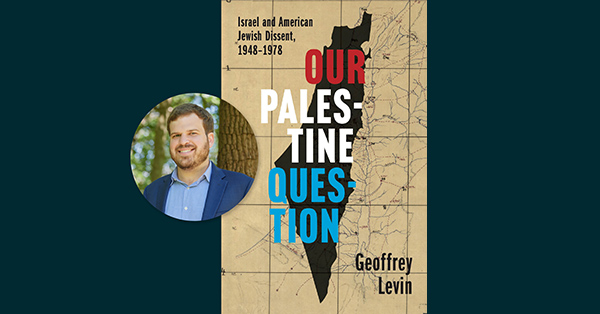
Our Palestine Question: Israel and American Jewish Dissent, 1948-1978 – In-Person Event
Join us for the timely launch of a new book on the American Jewish relationship with Israel focused on its most urgent and sensitive issue: the question of Palestinian rights. Author Geoffrey Levin, assistant professor of Middle Eastern and Jewish Studies at Emory University, will discuss his book Our Palestine Question: Israel and American Jewish Dissent, 1948-1978 (Yale University Press, 2023) in a lively conversation moderated by Professor Lila Corwin-Berman of Temple University. Levin, a former CJH Graduate Fellow, will also discuss the many archival collections he used while researching at the Center. Following the program will be a light reception celebrating the book's release, where the book will be available for sale and signing.
Co-sponsored by New York University's Taub Center for Israel Studies and Goldstein-Goren Center for American Jewish History
Ticket Info: Pay what you wish; register at /tickets/palestine-question-2023-11-30
Presented by:

book talk
book talk
Sholem Asch: Underworld Trilogy - In-person and Live on Zoom
The newly published translated collection Sholem Asch: Underworld Trilogy includes three of Asch’s Yiddish dramas which take place in the world of the criminals and the literal underworld. Translated by Caraid O'Brien, the “Underworld Trilogy” is comprised of: God of Vengeance (1907), Motke Thief (1917), and The Dead Man (1922). All three works were successfully produced on the Yiddish stages of America and Europe, and their influence continues to be felt throughout the world’s theater today. Sholem Asch remains one of the most translated and performed Yiddish playwrights in history.
Join YIVO for a discussion of Sholem Asch: Underworld Trilogy, complete with performances of scenes from the book.
Ticket Info: Free, registration is required.
Presented by:

book talk
book launch
Two Roads Home - in-person Event and Live on Zoom
This special event hosted in partnership with The Wiener Holocaust Library, London, will see British journalist and politician, Daniel Finkelstein OBE, in conversation with Prof Debórah Dwork in celebration of Two Roads Home: Hitler, Stalin and the Miraculous Survival of My Family, Daniel Finkelstein’s remarkable new book. Learn more about the legacy of the Wiener Library and the tragic personal histories embedded in its founding. Hosted by the US Friends of the Wiener Holocaust Library, the talk will be followed by a light drinks reception.
Special guests Chief of Staff to His Majesty's Trade Commissioner for North America and Consul General to New York Rian Matanky-Becker and renowned journalist Sarah Wildman will open the event.
About the Speakers
Daniel Finkelstein is the grandson of the German Jewish scholar activist Alfred Wiener, who founded the Wiener Library in 1933 in order to warn the world of the Nazi threat. He is weekly political columnist at The Times of London. Formerly an adviser to Prime Minister John Major, he was appointed to the House of Lords in 2013.
Professor Debórah Dwork is the Director of the Center for the Study of the Holocaust, Genocide, and Crimes Against Humanity at The Graduate Center–City University of New York. She is renowned for her scholarship on Holocaust history and her pathbreaking early oral recording of Holocaust survivors, weaving their narratives into the history she writes. Her award-winning books include: Flight from the Reich (W.W. Norton, 2012); Auschwitz (W.W. Norton, 2006); Holocaust (W.W. Norton, 2002); and Children With A Star (Yale University Press, 1991). Debórah Dwork is also recipient of the International Network of Genocide Scholars Lifetime Achievement Award (2020) and the Annetje Fels Kupferschmidt Award, bestowed by the Dutch Auschwitz Committee (2022).
About the BookIn Two Roads Home (Doubleday, September 2023) beloved British journalist Daniel Finkelstein tells the extraordinary story of the years before his mother met his father—years of war and trials they barely survived. Daniel Finkelstein's grandfather was a German Jewish intellectual leader who tolled an early warning of the impending Holocaust and became an archivist of Nazi crimes. He relocated his family to safety in Amsterdam, where they knew Anne Frank. But in those years safety was an illusion: Anne Frank famously went into hiding and Daniel's mother, Mirjam, also still a child, was sent to Bergen-Belsen with her mother and sisters.
Finkelstein's father, Ludwik, grew up in a prosperous Jewish family in Poland where his father, Dolu was a patriotic hero of the Great War. But when Stalin took control, Dolu, was deported to Siberia and Ludwik and his mother were sentenced to forced labor in Kazakhstan, starved and housed in a stable in freezing conditions.
Ticket Info: Free, registration required
Presented by:

book launch
panel discussion
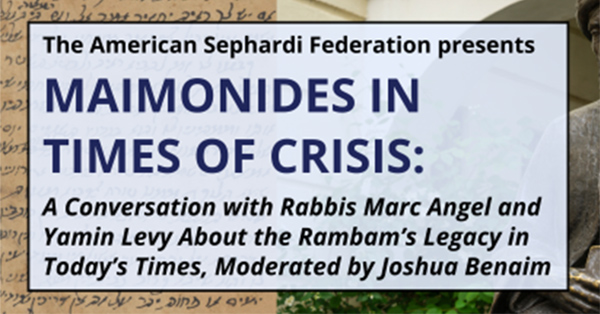
Maimonides in Times of Crisis - In-person Event
A Conversation with Rabbis Marc Angel and Yamin Levy about the Rambam’s legacy in today’s times, moderated by Joshua Benaim
The talk will be followed by book signing, refreshments, and tour of Yeshiva University Museum's exhibition on Maimonides.
About the Speakers
Rabbi Yamin Levy is a practiced educator, rabbi, author, and academic administrator. Rabbi Levy has devoted his career to teaching and preserving Sephardic culture, law and philosophical worldview. He is the senior Rabbi of Beth Hadassah Synagogue, the Iranian Jewish Center in Kings Point NY and the founder and director of the Maimonides Heritage Center based in Tiveria, Israel and New York. He authored four books the most recent of which is titled “The Mysticism of Andalusia: Exploring HaRambam’s Mystical Tradition.” He edited two books and published numerous articles in Jewish Law, Biblical Exegesis and Sephardic Philosophy and Jewish Mysticism.
Rabbi Marc Angel has a long career of service to his congregation and community. He has served as President of the Rabbinical Council of America, the Rabbinic Alumni of RIETS, Sephardic House, and various other organizations. He is co-founder of the International Rabbinic Fellowship and its first President. He has served as an officer and board member of UJA-Federation of New York, the HealthCare Chaplaincy, American Sephardi Federation, Cancer Care and other agencies. He has won national rabbinic awards from the Union of Orthodox Jewish Congregations and the United Jewish Communities, and the Finkle Award of the New York Board of Rabbis. Author and editor of 40 books and hundreds of articles, he has won a National Jewish Book Award in the category of Jewish Thought for his book,The Orphaned Adult, published by Human Sciences Press; and a National Jewish Book Finalist Award in the field of Sephardic Studies for his book, Foundations of Sephardic Spirituality: The Inner Life of Jews of the Ottoman Empire; and another National Jewish Book Finalist Award for Jewish Scholarship for his book Maimonides, Spinoza and Us: Toward an Intellectually Vibrant Judaism. The latter two books were published by Jewish Lights Publishers.
Joshua Benaim is a leading real estate investor and entrepreneur and the visionary founder of the ASF’s Sephardi House Fellowship. He is the founder and CEO of Aria, an award-winning real estate company on a mission to humanize the experience of living in our great cities. An operatic baritone who has appeared with the Metropolitan Opera and throughout the United States, Benaim lives in New York City with his wife and three children.
Ticket Info: Free; RSVP required
Presented by:
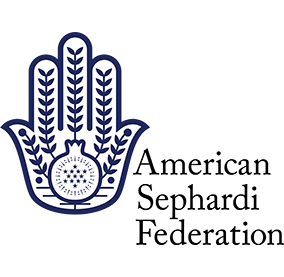
panel discussion
panel discussion
Remembering Vilna: The Fortunoff Archive's New Podcast - In-person and Live on Zoom
Meet the people behind Remembering Vilna: The Jerusalem of Lithuania, the third installment of Those Who Were There: Voices from the Holocaust, a podcast from the Fortunoff Video Archive for Holocaust Testimonies. This latest 10-episode season of the podcast, which is produced in partnership with YIVO, brings to life the story of the destruction of Vilna’s vibrant Jewish community through recorded survivor testimonies and Herman Kruk’s extensive diaries.
Beginning in the mid-1930s with recollections of growing antisemitism, Remembering Vilna shares the experiences of a handful of witnesses to trace the upheaval that descended on the city with the start of World War II and an invasion by the Soviet Union, subsequent German occupation, the formation of the city’s Jewish ghettos, the Nazi’s wholesale murder of tens of thousands of Vilna’s Jews, through to the conclusion of the war and its aftermath.
Join YIVO for a discussion of this podcast with co-producers Nahanni Rous and Eric Marcus, the podcast’s host, Eleanor Reissa, and historical consultant Samuel Kassow, during which they will share excerpts from the series. This talk will be led by Eddy Portnoy, YIVO’s Academic Advisor and Director of Exhibitions.
About the Speakers
As lead producer of the series Remembering Vilna: the Jerusalem of Lithuania, Nahanni Rous listened to more than 60 testimonies of Vilna-born Holocaust survivors and wove together the stories that make up the tapestry of experiences in this ten-part audio documentary about Jewish life in Vilna leading up to, during and in the immediate aftermath of World War Two. Nahanni also hosts and produces “Can We Talk?,” the podcast of the Jewish Women’s Archive, which explores the intersection of gender and Jewish culture. She is a MacDowell fellow, an amateur cellist, and lives with her family in Washington, DC.
Journalist and author Eric Marcus is co-producer of Those Who Were There, a podcast drawn from Yale University’s Fortunoff Video Archive for Holocaust Testimonies, including this third season of the podcast, “Remembering Vilna.” Eric is also the founder and host of the award-winning Making Gay History podcast, which mines his decades-old audio archive of rare interviews to bring LGBTQ history to life through the voices of the people who lived it. Eric is the author and co-author of a dozen books, including, Making Gay History, Is It A Choice?, Why Suicide?, and Breaking the Surface, the #1 New York Timesbestselling autobiography of Olympic diving champion Greg Louganis.
Eleanor Reissa, the host of the Fortunoff Video Archive for Holocaust Testimony’s Those Who Were There, is a Tony Award nominated director; a Broadway actress (Indecent); a television and film actress (HBO’s Plot Against America, AMC’s Walking Dead, and the upcoming series Die Zwieflers, for German television.) She is an award-winning playwright, choreographer; and a critically acclaimed singer in English and Yiddish, performing in every major musical venue in New York City and in festivals around the world. Her book, The Letters Project: A Daughter’s Journey was recently published by Post Hill Press.
Samuel Kassow, the Charles H. Northam Professor of History at Trinity College, holds a Ph.D. from Princeton University. He has been a visiting professor at many institutions and was on the team of scholars that planned the POLIN Museum of the History of Polish Jews in Warsaw. Among his various publications is Who will Write our History: Emanuel Ringelblum and the Secret Ghetto Archive (Indiana, 2007), which received the Orbis Prize of the AAASS, the Damals Prize in Germany for the best monograph of the year, and which was a finalist for a National Jewish Book Award. It has been translated into eight languages. He is on the team of scholars chosen by Yad Vashem to write a one volume history of the Holocaust in Poland. Professor Kassow’s translation of Rachel Auerbach’s Warsaw ghetto memoirs will be published next year by the National Yiddish Book Center.
Eddy Portnoy is a specialist on Jewish popular culture. He currently serves as Academic Advisor for the Max Weinreich Center and Exhibition Curator at the YIVO Institute for Jewish Research. The exhibitions he has created for YIVO have won plaudits from The New York Times, VICE, The Forward, and others. He is the author of Bad Rabbi and Other Strange but True Stories from the Yiddish Press (Stanford University Press, 2017).
Ticket Info: Free, registration is required.
Presented by:

panel discussion
workshop
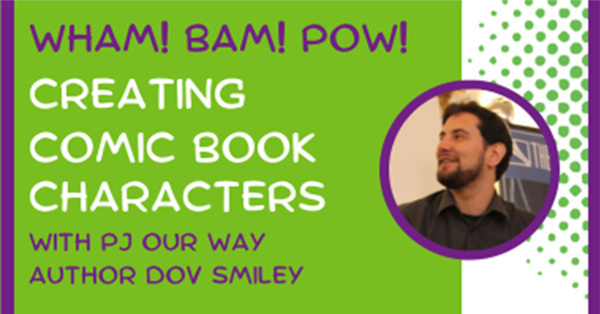
Wham! Bam! Pow! Creating Comic Book Characters – In-person Event
PJ Library in New York is thrilled to announce an interactive event for young comic book enthusiasts. On Sunday, November 19th, budding artists and storytellers aged 9-12 are invited to join us for “Wham! Bam! Pow! Creating Comic Book Characters,” a unique workshop exploring the art of character development and illustration led by PJ Our Way author Dov Smiley. Participants will dive into the art of character design and drawing in a fun and engaging environment. They will learn the secrets of bringing characters to life, both visually and in terms of their unique identities. Two identical 45-minute sessions will be held at 10:00 am and 11:00 am. Following the workshop, families are invited to explore the Center for Jewish History’s JewCE: The Museum and Library of the Jewish Comics Experience, a special exhibition offering a fascinating glimpse into the rich world of Jewish storytelling through comics.
This event is in conjunction with the Center for Jewish History’s JewCE convention.
Ticket Info: $20 per family; register at eventbrite.com
Presented by:

workshop
yiddish club
Yiddish Club with Lorin Sklamberg – Live on Zoom
Nu, vilst redn a bisele yidish? An event for Yiddish enthusiasts the world over, the YIVO Yiddish club is an informal monthly gathering to celebrate Mame-loshn. Hosted by Shane Baker, sessions take place in English, and are liberally peppered with Yiddish. Each month Baker is joined by a different guest who discusses their work and a related Yiddish cultural theme. In the spirit of a club, sessions are held as interactive zoom meetings in which participants can see and hear one another. Each session includes ample time for audience questions, group discussion, and, time permitting, knock-down, drag-out arguments. Attendees need not know any Yiddish to attend, though some familiarity with the language is highly recommended.
This session features multi-instrumentalist and YIVO Sound Archivist Lorin Sklamberg. He is a founding member of the Grammy Award-winning Yiddish-American roots band, the Klezmatics, and has been heard on innumerable recordings and live shows, solo and in collaboration with such diverse artists as Itzhak Perlman, Jane Siberry, Chava Alberstein, Ehud Banai, Yoni Rechter, Emmylou Harris, Tracy Grammer, Neil Sedaka, Natalie Merchant, Tony Kushner and Theodore Bikel. He has composed and performed for film, dance, stage and circus, and has produced a number of recordings of world and theater music.
Ticket Info: Free; register at yivo.org/YiddishClub21 for a Zoom link
Presented by:

yiddish club
conversation
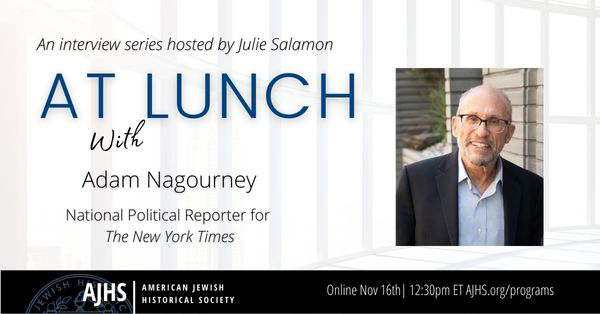
At Lunch with Adam Nagourney – Live on Zoom
Julie Salamon (Author and Journalist) sits down with Adam Nagourney, national political reporter for The New York Times. Since joining the newspaper in 1996, he has served as Los Angeles bureau chief, West Coast cultural affairs reporter, chief national political correspondent, and chief New York political reporter. He is the co-author of Out for Good, a history of the modern gay rights movement, and his recent book The Times: How the Newspaper of Record Survived Scandal, Scorn and the Transformation of Journalism, was recently published in September 2023.
Ticket Info: Free; register at ajhs.org/events/at-lunch-with-adam-nagourney/ for a Zoom link
Presented by:

conversation
panel discussion
The Legacy of Chaim Grade - Live on Zoom
Chaim Grade was born in 1910 in Vilna, Poland. In his youth, Grade was a student of the Novaredok Musar Yeshiva and of Avraham Yeshaya Karelitz. He was also a founding member of the Yung-Vilne literary group, known for its leftist politics, secular Jewish thinking, and literary influence. After losing both his mother and wife during the Holocaust, he emerged as one of the most prolific and defining Yiddish voices in post-war literature. Besides publishing several volumes of poetry, he is best known for his two acclaimed novels, The Agunah and The Yeshiva.
In early 2023, YIVO and the National Library of Israel (NLI) completed the digitization of the Papers of Chaim Grade and Inna Hecker Grade. The collection helps to illustrate Grade’s literary development and impact on Yiddish literature, from his earliest poetic works written in Vilna and the Soviet Union to his prolific and accomplished prose work composed mainly in the United States.
Join YIVO and NLI for a panel discussion of Grade’s legacy with Ruth Wisse, Ofer Dynes, and Curt Leviant, led by scholar and translator Justin Cammy.
This program is supported, in part, by public funds from the New York City Department of Cultural Affairs, in partnership with the City Council.
About the Speakers
Ruth R. Wisse was Professor of Yiddish literature and Comparative Literature at Harvard University from 1993–2014 and before that, helped found the Jewish Studies Department at McGill University. Currently a senior fellow at the Tikvah Fund and recipient of its Herzl Prize, she has written widely on cultural and political subjects for the Wall Street Journal, Commentary, National Affairs, and other publications. Her books include The Schlemiel as Modern Hero, The Modern Jewish Canon: A Journey Through Literature and Culture, No Joke: Making Jewish Humor, If I Am Not for Myself: The Liberal Betrayal of the Jews, and Jews and Power. In 2007, she was awarded the National Medal for the Humanities, and in 2004, an Honorary Degree by Yeshiva University.
Ofer Dynes is Leonard Kaye Assistant Professor of Hebrew and Comparative Literature at the Department of Slavic Languages and Literatures at Columbia University. He received his Ph.D. in Jewish Studies at Harvard University (September 2016) and held a postdoctoral fellowship at McGill University (2016-2018). Before coming to Columbia, he was an Assistant Professor at the Hebrew University of Jerusalem, where he taught classes in eastern European Jewish literature and history and served as the head of the Program in Yiddish Studies. Dynes specializes in the literature and cultural history of Eastern European Jewry from the 18th to 21st centuries. He has a particular interest in the nexus of literature and political thought. He is currently completing a book manuscript entitled The Fiction of the State: The Polish Partitions and the Beginning of Modern Jewish Literature (1772–1848). He has also recently co-edited a special volume of Prooftexts, entitled The Beginnings of Modern Jewish Literature in Europe,with Naomi Seidman (University of Toronto). Dynes is a co-founder and organizer of the Hebrew Lab Faculty Seminar, a New-York based workgroup for scholars in Hebrew Literature.
Curt Leviant has translated six collections of Sholom Aleichem’s works. Among his fifteen volumes of translations from Yiddish are novels by Chaim Grade, a memoir by Isaac Bashevis Singer, and collections of stories by Avraham Reisen and Lamed Shapiro. Some of Leviant’s 12 novels have been published in nine European languages, in Israel, and in South America. His novel, Diary of an Adulterous Woman, was an international best seller and was cited in France in 2008 as one of the “Seven Best Novels of the Year.” His most recent novels are the critically acclaimed King of Yiddishand Kafka’s Son, and Me, Mo, Mu, Ma & Mod. For his work with Yiddish and Hebrew literature, he has won several fellowships from the National Endowment for the Humanities, the National Endowment for the Arts, and the Rockefeller Foundation.
Justin Cammy is professor of Jewish Studies and World Literatures at Smith College. An alum of YIVO's Uriel Weinreich Yiddish Summer Program and a past recipient of YIVO's Dina Abramowicz Emerging Scholar fellowship, he also serves as on-site summer director of the Naomi Prawer Kadar International Yiddish Summer Program at Tel Aviv University. Cammy is a leading expert on the interwar Yiddish literary group Young Vilna. His translation of Abraham Sutzkever's From the Vilna Ghetto to Nuremberg (McGill-Queen's) won the 2022 Leviant Prize in Yiddish Studies from the Modern Language Association.
Ticket Info: Free, registration is required.
Presented by:

panel discussion
lecture
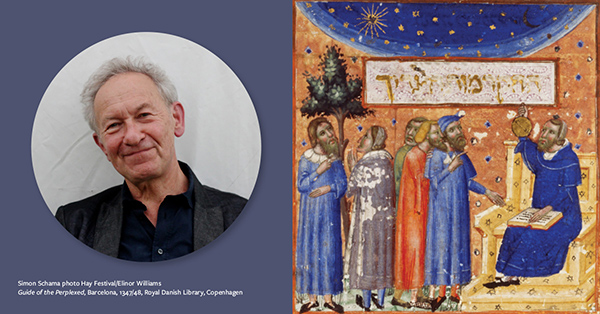
A Maimonidean in India: The Perils of Jewish Healing – In Person Event & Livestreamed on YouTube
In this lecture, Sir Simon Schama will discuss his new book, Foreign Bodies: Pandemics, Vaccines and the Health of Nations, and address the Maimonidean enterprise of reconciling medical science, philosophy and Judaism. The lecture follows the epic path of the micro-biologist Waldemar Haffkine, who achieved brief fame as an originator of vaccines against cholera and bubonic plague, but after becoming a casualty of a miscarriage of medical justice, ended as a champion of orthodoxy.Optional tours of Yeshiva University Museum’s current exhibition, The Golden Path: Maimonides Across Eight Centuries will be offered before and after the lecture at 5:45 pm and 8:00 pm.
Books will be available for sales and signing by Sir Simon Schama after the program.
About the Speaker:
Sir Simon Schama is University Professor of Art History and History at Columbia University. He is author of 20 books, and writer-presenter of over 50 documentaries on art, history, and literature for BBC television. Sir Simon has been awarded numerous prizes and honors including the American Academy of Arts and Letters Award for Literature; the Kenyon Review Award for Literary Achievement, and the Premio Antonio Feltrinelli Prize in historical sciences from the Accademia dei Lincei in Rome. His work has been translated into 23 languages, and his 20th and most recent book Foreign Bodies: Pandemics, Vaccines and the Health of Nations, was published in September 2023.
Ticket Info: Free; register at eventbrite.com
Presented by:


lecture
lecture
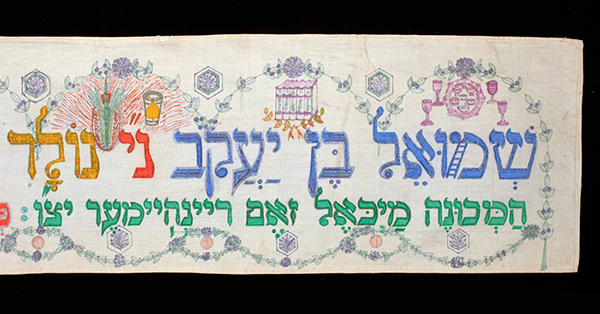
Family History Today: Wimpels - Textiles as Windows into the Lives of our Ancestors – Live on Zoom
German-speaking Jews have a centuries-old tradition of using the fabric that swaddled a boy during the circumcision ceremony to create a Torah binder known as a wimpel. A family member or a professional wimpel maker would paint or embroider the fabric with a ritual blessing, the names of the boy and his father, and a variety of decorations. The boy often presented the wimpel the first time he visited synagogue, and it would later be used to secure the Torah scroll from which he would read on his bar mitzvah and other special occasions.
In August 2023, Yeshiva University Museum (YUM) and the Center for Jewish History completed the digitization, description, and translation of over 60 wimpels in the Museum’s collections, which can be viewed online here. In this panel discussion, Felicitas Heimann-Jelinek, a Vienna-based freelance curator, author, and professor specializing in Jewish cultural history, will provide an overview of the history and significance of these objects and showcase a few illustrative examples from different regions. Bonni-Dara Michaels, YUM Collections Curator, will discuss how the Museum acquired its wimpels and digitized them as part of an Institute of Museum and Library Services-funded project, and then highlight selected examples from the Museum’s collections. Karen S. Franklin, Director of Family Research at the Leo Baeck Institute, will elaborate on how genealogy researchers can analyze and research wimpels they inherited or those in museum collections to learn more about their family histories.
Ticket Info: Pay what you wish; register here
Presented by:



lecture
convention
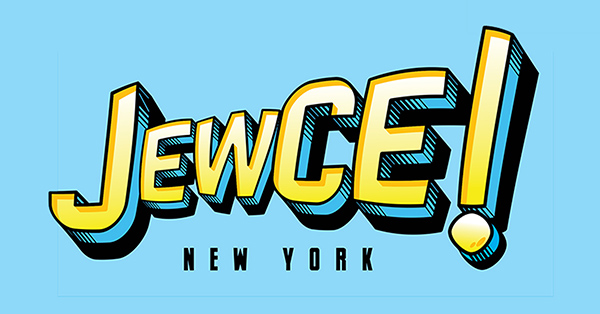
JewCE: The Jewish Comics Experience – In-Person Event
JewCE stands for the JEWISH COMICS EXPERIENCE. It’s the ultimate comics and pop culture event brought to you by the Center for Jewish History in New York City. JewCE is designed to be an inclusive convention, celebrating an industry largely created by Members of the Tribe, and promoting diverse Jewish narratives in comics and graphic novels. JewCE welcomes creators and pop culture fans from all walks of life.
Visit https://jewce.org/ for information and tickets
ASL Interpretation will be provided by the Center for Jewish History at the Jewish Comics Experience, including the JewCie Awards on Saturday, November 11 and for all panels at the Jewish Comic Convention on Sunday, November 12. If you have questions about accessibility, please contact Gabriel Sanders at gsanders@cjh.org or or (212) 294-8301.
Presented by:

convention
celebration

JewCE Preview Night & JewCie Awards – In-Person Event
At the heart of the Jewish Comics Experience is the JewCie Awards, a groundbreaking ceremony dedicated to honoring the creators behind Jewish comic book narratives, themes, and characters. This event is not just an awards ceremony; it’s a testament to the diverse voices and stories that have shaped Jewish storytelling in the comic medium.
By establishing the JewCie Awards, we aim to inspire and uplift talent in the field, fostering the growth of Jewish-themed comics. This recognition encourages artists to delve into the depths of Jewish culture, creating authentic representations that contribute to a more inclusive and diverse comic landscape.
Don’t miss the grand unveiling of the JewCie Awards on November 11th, a preview night filled with excitement at the Center for Jewish History. Join us for an evening of celebration, featuring awards presented by a distinguished panel of industry judges, alongside fellow comic book creators and enthusiasts. There will be food, drink, and an exclusive sneak peek at the upcoming convention.
Tickets are available for individual purchase or in packages that include day passes to the convention and other goodies. The Center for Jewish History warmly invites all creators, industry professionals, collectors, and readers to come together and celebrate the outstanding artists and writers who have brought captivating Jewish narratives to life. Let’s make this a night to remember! Get your tickets now and be part of this historic celebration.
Please visit https://jewce.org/index.php/the-2023-jewce-awards/ for more information
ASL Interpretation will be provided by the Center for Jewish History at the Jewish Comics Experience, including the JewCie Awards on Saturday, November 11 and for all panels at the Jewish Comic Convention on Sunday, November 12. If you have questions about accessibility, please contact Gabriel Sanders at gsanders@cjh.org or or (212) 294-8301.
Presented by:

celebration
concert reading
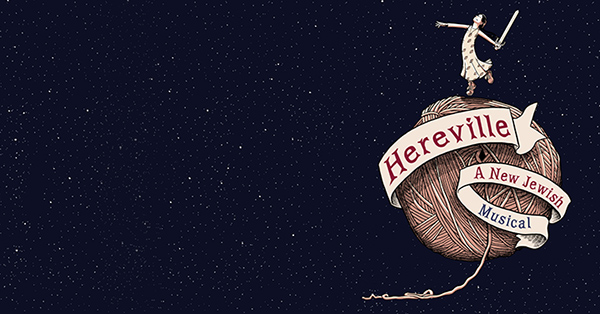
Hereville: A New Jewish Musical – In-person event & livestreamed on YouTube
Book by Robby Sandler with Jess Kaufman
Music by Lizzie Hagstedt
Lyrics by Robby Sandler
Directed by Laura Brandel
Based on the award-winning (and 2023 JewCie-Award-nominated) Hereville graphic novels by Barry Deutsch, this female-driven, family-friendly musical follows Mirka, an 11-year-old girl in a small Orthodox Jewish town. When Mirka meets a witch in the woods, she triggers a series of events that force a reckoning with the memory of her mother, her fractious relationship with her stepmother, and a meteor that could destroy Hereville altogether!
At its core, Hereville is a musical for family audiences; a love story between a stepmother and stepchild as they navigate the formation of their blended family. Rated PG for scary situations and content relating to grief and loss.
Ticket Info:
In person: $15 general; $14 seniors/students; $12 CJH members; register here
On YouTube: Pay what you wish; register here
Presented by:

concert reading
film
Labzik: Tales of a Clever Pup - In-person Event
Adapted from a book of children’s stories by Yiddish author Chaver Paver,Labzik: Tales of a Clever Pup follows the (mis)adventures of a clever mutt named Labzik and the working-class Jewish family that adopts him. Balancing playful humor with gritty realism, the stories find Labzik and the other residents of the Bronx up against social and political forces that are no less relevant today: unemployment, political protest, racism, police brutality, even an airborne disease. This trilingual Yiddish-English-Yinglish short film is produced in cinematic “miniature theater” style, employing lavishly illustrated paper puppets to evoke the ink illustrations of the 1935 original.
The film features narration adapted from Miriam Udel's new English translation, and Yiddish dialogue from Chaver Paver's original text. A cast of both student and professional voice actors brings the characters and stories to life, including award-winning Yiddish actor Shane Baker. The film also features original music by Klezmer greats Michael Winograd and Jake Shulman-Ment and singing by Lisa Fishman and Mikhl Yashinsky of off-Broadway’s Fidler afn Dakh (Yiddish Fiddler on the Roof) and Lorin Sklamberg of the Grammy award-winning band The Klezmatics.
Join YIVO for a screening of this film followed by a Q&A with director Jake Krakovsky and translator Miriam Udel.
This event is in conjunction with the Center for Jewish History’s JewCE convention.
Buy Miriam Udel's translations of Yiddish children's stories, including Chaver Paver's Labzik: Stories of a Clever Pup.
About the Speakers
Jake Krakovsky is a puppeteer, playwright, actor, director, educator, and Yiddishist based in Atlanta, Georgia, USA. He received a BA in Theater Studies from Emory University and studied physical theater at the Accademia dell’Arte. Jake has received residencies and fellowships from Atlanta’s Tony Award-winning Alliance Theatre and the Collaborative Arts Lab in Arezzo, Italy. He leads workshops and coaches performers of all ages in acting, puppetry (Hand, Rod, Body, Shadow, Bunraku, Czech Black), clown, improvisation, commedia dell’Arte, Shakespeare, and ensemble devising. Jake’s puppetry work can be seen on Moon and Me (BBC, 2019), L'Etranger/The Stranger (The Object Group, 2020), Pinocchio (The Object Group + Sky Creature Productions, 2021) and Labzik: Tales of a Clever Pup (Theater Emory, 2021).
Miriam Udel is associate professor of German Studies and Judith London Evans Director of the Tam Institute of Jewish Studies at Emory University, where her teaching focuses on Yiddish language, literature, and culture. She holds an AB in Near Eastern Languages and Civilizations and a PhD in Comparative Literature, both from Harvard University.
Udel is the author of Never Better!: The Modern Jewish Picaresque (University of Michigan Press) and editor and translator of Honey on the Page: A Treasury of Yiddish Children’s Literature (NYU Press, 2020). Udel’s translation of Chaver Paver’s 1935 story collection about the adventures of a lovable proletarian mutt became the basis for Theater Emory’s 2021 puppet film Labzik: Tales of a Clever Pup. Recipient of an NEH Public Scholar grant in 2021-22, Udel is completing Umbrella Sky: Children’s Literature and Modern Jewish Worldmaking, under contract with Princeton University Press for publication in late 2024.
Ticket Info: $10; YIVO & CJH members: $8
Presented by:


film
panel discussion
Archives to Earbuds: Podcast as Cultural Artifact - Live on Zoom
When an archival institution makes a podcast, it is not just highlighting historical artifacts from its collection, but it is also creating a new artifact. And in some cases the assemblage of existing audio recordings – snippets of decades-old broadcasts or excerpts from local oral histories – can transform a podcast itself into a chronicle of previously uncollected or inaccessible documentations that preserve and contextualize historical events and cultural moments.
Ben Nadaff-Hafrey (The Last Archive, Revisionist History) moderates a panel including Bill Healy (Somebody, You Didn’t See Nothin), Mary Kidd (NYPL and Preserve This Podcast), Natalia Petrzela (Welcome To Your Fantasy, Past Present) and Renate Evers (LBI, Exile), who will discuss how collecting organizations and scholars and podcast creators can utilize and make sense of the proliferation of-digital media and safeguard podcasts against digital obsolescence.
Ticket Info: Free, registration required
Presented by:

panel discussion
book talk
Marty Glickman: The Life of an American Jewish Sports Legend with Author Jeffrey S. Gurock - In-person Event
Author Jeffrey S. Gurock joins us to discuss his new book with historian Beth Wenger.
For close to half a century after World War II, Marty Glickman was the voice of New York sports. His distinctive style of broadcasting, on television and especially on the radio, garnered for him legions of fans who would not miss his play-by-play accounts. From the 1940s through the 1990s, he was as iconic a sports figure in town as the Yankees’ Mickey Mantle, the Knicks’ Walt Frazier, or the Jets’ Joe Namath. His vocabulary and method of broadcasting left an indelible mark on the industry, and many of today’s most famous sportscasters were Glickman disciples. To this very day, many fans who grew up listening to his coverage of Knicks basketball and Giants football games, among the myriad of events that Glickman covered, recall fondly, and can still recite, his descriptions of actions in arenas and stadiums. In Marty Glickman, Jeffrey S. Gurock showcases the life of this important contributor to American popular culture.
In addition to the stories of how he became a master of American sports airwaves, Marty Glickman has also been remembered as a Jewish athlete who, a decade before he sat in front of a microphone, was cynically barred from running in a signature track event in the 1936 Olympics by anti-Semitic American Olympic officials. This lively biography details this traumatic event and explores not only how he coped for decades with that painful rejection but also examines how he dealt with other anti-Semitic and cultural obstacles that threatened to stymie his career. Glickman’s story underscores the complexities that faced his generation of American Jews as these children of immigrants emerged from their ethnic cocoons and strove to succeed in America amid challenges to their professional and social advancement. Marty Glickman is a story of adversity and triumph, of sports and minority group struggles, told within the context of the prejudicial barriers that were common to thousands, if not millions, of fellow Jews of his generation as they aimed to make it in America.
Ticket Info: $10 General Admission; $33 General Admission + Copy of the Book
Presented by:

book talk
concert
Songs of Max Kowalski - In-person Event
A noted composer, singer and teacher, Kowalski was briefly imprisoned in the Buchenwald concentration camp in 1938, as part of an effort by the Nazis to force Jews to leave Germany, so they could confiscate their property. He then immigrated to London with his daughter, after his wife’s earlier imprisonment in various camps in 1937 and 1938, and eventual suicide. He wrote many lieder, some of which was published by a major publisher, Universal, before his flight from Germany.
Reflecting on his own work as an artist Kowalski once observed,“I am not concerned with any kind of ‘principles.’ I am an arch-romantic and rely wholly on feeling.” And then in a turn to Goethe’s Faust, “Feeling is all!”
Ticket Info: Free, registration required
Presented by:


concert
panel discussion
Archives to Earbuds: Podcasts for Cultural Institutions - Live on Zoom
As cultural institutions consider new ways to engage diverse patrons and better serve a wide range of communities and populations, podcasts emerge as an exciting tool for just such engagement. But there's a steep learning curve for institutions when it comes to the cost of both producing podcasts and developing audiences for them. Our moderator and panelists will share their insights and expertise on the challenges and opportunities of podcasting and how podcasts can serve the missions and programming needs of organizations in an increasingly competitive attention economy.
Jessica Alpert (Rococo Punch) moderates a panel of creatives and producers from firms including Antica Productions, Pod People, Capacity Interactive and Christine Ragasa Global on how cultural institutions have used podcasting to advance their missions.
Online simulcast courtesy of: The Podcast Academy (TPA)
Ticket Info: Free, registration required
Presented by:

panel discussion
book talk
Mixed-Sex Dancing and Jewish Modernity - Live on Zoom
Dances and balls appear throughout world literature as venues for young people to meet, flirt, and form relationships, as any reader of Pride and Prejudice, War and Peace, or Romeo and Juliet can attest. The popularity of social dance transcends class, gender, ethnic, and national boundaries. In the context of nineteenth- and twentieth-century Jewish culture, dance offers crucial insights into debates about emancipation and acculturation. While traditional Jewish law prohibits men and women from dancing together, Jewish mixed-sex dancing was understood as the very sign of modernity—and the ultimate boundary transgression.
Writers of modern Jewish literature deployed dance scenes as a charged and complex arena for understanding the limits of acculturation, the dangers of ethnic mixing, and the implications of shifting gender norms and marriage patterns, while simultaneously entertaining their readers. In this book, Sonia Gollance examines the specific literary qualities of dance scenes, while also paying close attention to the broader social implications of Jewish engagement with dance. Combining cultural history with literary analysis and drawing connections to contemporary representations of Jewish social dance, Gollance illustrates how mixed-sex dancing functions as a flexible metaphor for the concerns of Jewish communities in the face of cultural transitions.
Join YIVO for a discussion of Gollance's book with Josh Lambert, professor and director of the Jewish Studies Program at Wellesley College.
About the Speakers
Sonia Gollance is Lecturer in Yiddish at University College London. She is a scholar of Yiddish Studies and German-Jewish literature whose work focuses on dance, theatre, and gender. Her first book, It Could Lead to Dancing: Mixed-Sex Dancing and Jewish Modernity, was published by Stanford University Press in 2021. Previously she taught at the University of Vienna, The Ohio State University, and the University of Göttingen (Germany). She received her PhD in Germanic Languages and Literatures from the University of Pennsylvania and her BA in Comparative Literature and Germanic Studies from the University of Chicago.
Josh Lambert is the Sophia Moses Robison Associate Professor of Jewish Studies and English, and director of the Jewish Studies Program, at Wellesley College. He's the author of The Literary Mafia: Jews, Publishing, and Postwar American Literature (2022) and Unclean Lips: Obscenity, Jews, and American Culture (2014), and coeditor of How Yiddish Changed America and How America Changed Yiddish (2020).
Ticket Info: Free, registration is required.
Presented by:

book talk
panel discussion
Archives to Earbuds: Telling Our Stories - In-person Event and Live on Zoom
Podcasting can be a powerful tool for disseminating cultural and historical narratives otherwise ignored by mainstream media. The process of converting eclectic materials into an engaging narrative for listeners and balancing the distinct goals of historians and archival institutions with those of producers and publishers requires a deft understanding of the podcast medium.
Online simulcast courtesy of: The Podcast Academy (TPA)
Natalia Petrzela (The New School, Past Present, Welcome To Your Fantasy) moderates a panel featuring the makers of podcasts working with primary sources and biography to shed light on historically marginalized communities and injustice. Panelists will include Eric Marcus of Making Gay History, Julie Golia of Flatbush+Main, Virginia Millington, Director of Recording & Archive at StoryCorps, and David Brown of LBI’s own Exile.
Ticket Info: Free, registration required
Presented by:

panel discussion
workshop
How to Do Research at YIVO: Pursuing Research Projects – Live on Zoom
The Archives and Library at the YIVO Institute for Jewish Research represent the single largest and most comprehensive collection of materials on Eastern European Jewish civilization in the world. With 24 million unique items in the YIVO Archives and nearly 400,000 volumes in all European languages in YIVO's Library, the possibilities for research are endless.
Join YIVO Reference & Outreach Archivist Ruby Landau-Pincus for a workshop of how to pursue a research project using the YIVO archives. This program will cover the very basics of doing research at YIVO, including formulating a research question, finding existing research, identifying sources through bibliographies, and effectively using the Center for Jewish History’s catalog. This workshop will define the scope of YIVO’s materials and explain the holdings of the library and the archives, so that new researchers can be better equipped to find materials that pertain to their work.
This event is open to anyone interested in doing research at YIVO or learning more about YIVO’s vast collections.
About the Speaker
Ruby Landau-Pincus is YIVO’s Reference & Outreach Archivist. She holds a BA in Yiddish Studies from Columbia University and is earning her Master of Library and Information Science degree with an emphasis in Archival Studies from the University of Missouri. She loves that her work with YIVO allows her to meet a huge range of people, from established researchers to people who are just beginning to explore the wide world of Yiddishkeit YIVO has to offer.
Ticket Info: Free; register at yivo.org/Research-Intro4 for a Zoom link
Presented by:

workshop
celebration
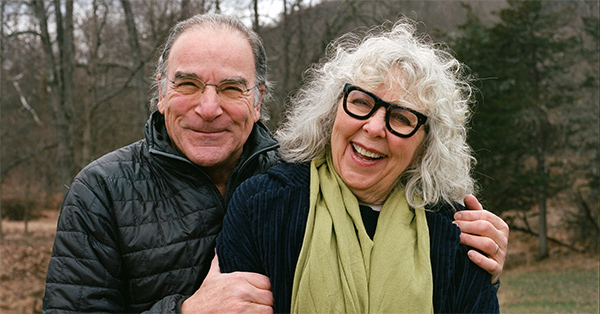
2023 Annual LBI Dinner - In-person Event
Please join the Leo Baeck Institute at the Center for Jewish History for our Annual Dinner on Tuesday, October 24, 2023. LBI President Dr. David G. Marwell will present Mandy Patinkin and Kathryn Grody with the Leo Baeck Medal, LBI’s highest award. On this occasion, we will also honor our longtime Trustee and former President, Bernard (Bernie) Blum with the Leo Baeck Medal.
Reception at 6:00 PM, Award Ceremony and Dinner at 7:00 PM
Honorees
Mandy Patinkin and Kathryn Grody
Mandy Patinkin is an iconic Tony and Emmy-award winning actor, (Evita, Chicago Hope), a celebrated interpreter of the songs of Stephen Sondheim, a winner of the Deutscher Schallplattenpreis for his recording of Yiddish songs, Mameloshen, and most recently, the voice of LBI’s podcast Exile. His partner, Kathryn Grody, is an Obie-Award winning playwright and actress, and the two have entertained millions during the COVID-19 pandemic by sharing hilarious and heartwarming nuggets of their “uninterrupted togetherness” and glimpses into over four decades of mostly marital bliss on social media.
They have also used their platform to advocate for a program of Tikkun Olam informed by anti-racism, feminism, and the defense and expansion of democracy. They are especially active on behalf of refugees as ambassadors of the International Rescue Committee, an organization founded on the initiative of Albert Einstein in 1933 to assist German Jews fleeing Nazism.
Join us when we honor them with the Leo Baeck Medal for their long careers in the arts and as advocates for a fairer, better world.
Bernard (Bernie) Blum
It was longtime LBI Trustee and former President Bernie Blum's visionary leadership and generosity that launched LBI's podcast, "Exile," hosted by fellow honoree Mandy Patinkin, which has allowed us to reach an unprecedented audience with stories from the German-Jewish Diaspora. Before that, Bernie spearheaded the digitization of LBI's entire archive, making millions of documents available for researchers worldwide and revolutionizing LBI's work.
We are thrilled to announce that on this occasion, we will also honor Bernie Blum with the Leo Baeck Medal.
Ticket Info: Registration required
Presented by:

celebration
tour
Open House New York: YIVO Institute - In-person Event
The YIVO Institute, originally founded in 1925 in Vilna, Lithuania, has been based in New York City since 1940. Holding the world's largest archive of Eastern European Jewish history and culture, it is also a cultural and educational center, hosting public programs, exhibitions, classes, and the world's longest-running Yiddish language intensive.
View curated artifacts in YIVO's Media and Learning Center, and take guided, behind-the-scenes tours of the archive and library stacks.
Ticket Info: Free; no registration required – walk-ins welcome.
Presented by:

tour
gallery tour

Exhibition Tour of The Golden Path: Maimonides Across Eight Centuries
Join Ilana Benson, YUM’s Director of Museum Education for a guided tour of The Golden Path: Maimonides Across Eight Centuries, illuminating the life and impact of the multifaceted luminary and great Jewish sage across continents and cultures through rare manuscripts and books. Exhibition highlights include manuscripts in Maimonides’s own handwriting, a carved 11th century door to the Torah ark from Cairo’s Ben Ezra Synagogue, and beautifully illuminated medieval manuscripts.
Ticket Info: Free admission but reservations are required. For reservations, please email RSVP@yum.cjh.org.
Presented by:

gallery tour
conversation
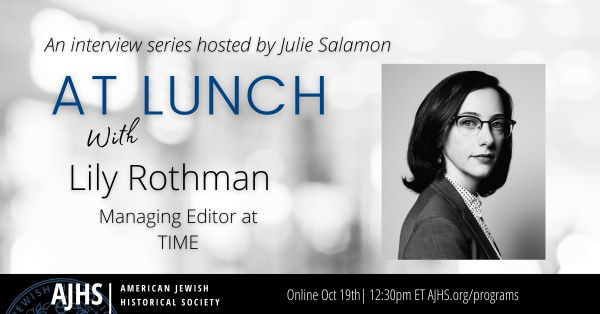
At Lunch with Lily Rothman – Live on Zoom
Julie Salamon (Author and Journalist) sits down with Lily Rothman, the Managing Editor at TIME. Lily oversees both the print magazine and cross-platform newsroom operations and previously served as the founding editor of TIME’s history section, which tells the stories of what came before today’s news. She also writes for TIME on history, culture, and society — having interviewed John Lewis, Yoko Ono, Madeleine Albright, and Big Bird, among many others — and her work has appeared in The Atlantic, the Washington Post, and Slate. A native New Yorker, she is a graduate of Yale, where she studied history, and of the CUNY School of Journalism. She lives in Brooklyn with her husband and son.
Ticket Info: Free; register at ajhs.org/events/at-lunch-with-lily-rothman/ for a Zoom link
Presented by:

conversation
panel discussion
The Oxford Handbook of Jewish Music Studies - Live on Zoom
The Oxford Handbook of Jewish Music Studies is a handbook of Jewish music that addresses the diverse range of sounds, texts, archives, traditions, histories, geographic and political contexts, and critical discourses in the field. The thirty-one experts from thirteen countries who prepared the thirty original and groundbreaking chapters in this handbook are leaders in the disciplines of musicology and Jewish studies as well as adjacent fields. Chapters in the handbook provide a broad coverage of the subject area with considerable expansion of the topics that are normally covered in a resource of this type.
Designed around eight distinct sections—Land, City, Ghetto, Stage, Sacred and Ritual Spaces, Destruction/Remembrance, and Spirit—the range and scope of The Oxford Handbook of Jewish Music Studies most significantly suggests a new framework for the study of Jewish music centered on spatiality and taking into consideration temporality and collectivity. Together the chapters form a truly global look at Jewish music, incorporating studies from Central and East Asia, Europe, Australia, the Americas, and the Arab world.
Join YIVO for a panel discussion of this new handbook with contributors Eléonore Biezunski, Jessica Roda, and Merav Rosenfeld-Hadad, introduced and led by editor Tina Frühauf.
About the Speakers
Tina Frühauf teaches at Columbia University and serves on the doctoral faculty of The Graduate Center, CUNY. She is the Executive Director of Répertoire International de Littérature Musicale (RILM) and Director of the Barry S. Brook Center for Music Research and Documentation at CUNY. Among her recent publications are Transcending Dystopia: Music, Mobility, and the Jewish Community in Germany, 1945-1989 and Dislocated Memories: Jews, Music, and Postwar German Culture (2014, with Lily E. Hirsch), which won the Ruth A. Solie Award and the Jewish Studies and Music Award of the American Musicological Society; as well as Postmodernity's Musical Pasts (2020). She has been serving on various committees of the American Musicological Society and as Council Member, and is on the board of the Louis Lewandowski Festival in Berlin and the DAAD Alumni Association USA.
Eléonore Biezunski is an award-winning Parisian singer/violinist/songwriter and scholar now living in NYC. An avid collector of Yiddish music, she has led several projects and has collaborated with a large number of well-known Jewish performers in the US and abroad. Her recordings include Yerushe (IEMJ, 2016) and Zol zayn (2014). Her composition “Tshemodan” was voted Best New Yiddish Song by São Paulo’s 2021 Bubbe Awards. As YIVO’s Sound Archivist since 2016, Eléonore has coordinated the Ruth Rubin Legacy website (ruthrubin.yivo.org). She has a PhD from the École des Hautes Études en Sciences Sociales in Paris and has published several book chapters and articles on the history of Yiddish music and culture and co-edited a reissue of the complete recordings of the French Elesdisc label, 1948-1953 (2015, IEMJ). She is also a team member of the Klezmer Institute and is a recipient of an NYSCA Folk Arts Apprenticeship. www.eleonorebiezunski.com
Jessica Roda is an anthropologist and ethnomusicologist. She specializes in Jewish life in North America and France, and in international cultural policies. Her research interests include religion, performing arts, cultural heritage, gender, and media. Her articles on these topics have appeared in various scholarly journals, as well as edited volumes in French and English. The author of two books and the editor of a special issue of MUSICultures, her more recent book (Se réinventer au present, PUR 2018) was finalist for J. I. Segal Award for the best Quebec book on a Jewish theme. It also received the Prize UQAM-Respatrimoni in heritage studies. Her forthcoming monograph, For Women and Girls Only. Reshaping Jewish Orthodoxy Through the Arts in the Digital Age, investigates how music, films, and media made by ultra-Orthodox and former ultra-Orthodox women act as agents of social, economic, and cultural transformation and empowerment, and as spaces that challenge gender norms, orthodoxy, and liberalism.
Merav Rosenfeld-Hadad is a musicologist who specializes in all types of Arabic and Middle Eastern music prevalent among Jewish, Muslim, and Christian communities across and outside the Middle East. She focuses on the interaction of this music with issues of identity, nationalism, and Jewish-Christian-Muslim relations, in their wider historical, religious, and cultural contexts. Her PhD research was on the Paraliturgical Song of Babylonian Jews in the context of Arabo-Islamic culture and religion. Previously, she was a Research Associate, in both Royal Holloway and the Institute of Musical Research, School of Advanced Study, University of London, and a Research Fellow, in Memorial Foundation for Jewish Culture, New York. She has been a Visiting Scholar at St Edmund's College, Cambridge, since she completed her PhD studies, and taught at both the University of Cambridge and the Cambridge Muslim College.
Prior to her academic career, she was a senior economist and a lecturer at the United Mizrahi Bank, Tel Aviv, for eleven years; a nationwide bursar of fifty musical conservatories at the Israeli Ministry of Education, for three years; and an author of music programs for school children, aimed at developing values of peace between Jews and Muslims in Israel.
Ticket Info: Free, registration is required.
Presented by:

panel discussion
lecture
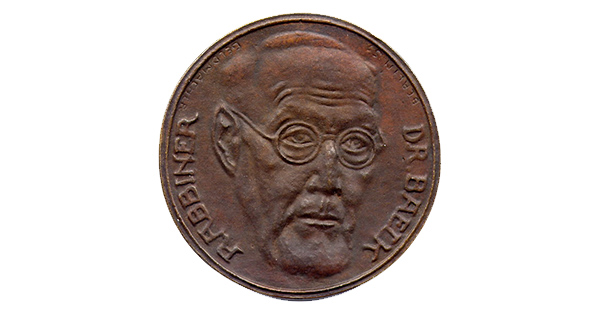
A Jewish Artist in Berlin Before, During, and After the Third Reich - In-person Event and Live on Zoom
Konrad Geldmacher (1878-1965) was a formally trained sculptor and medalist who, though not widely celebrated today, publicly pursued his craft in Berlin beginning even before his military service during the First World War and well into the 1960s. Though clearly identified as a Jew, indeed a participant in the dramatic 1943 Rosenstrasse protests, Geldmacher nevertheless had official permission to live openly, to work, and to travel within Berlin throughout the Nazi period. Many details of his life experience and evidence of his artistic achievement are rendered more vivid by images of his medals and sculpture, of photos reflecting his private life, and of surviving significant official documents.
Our Guest
Dr. Ira Rezak is an emeritus professor of medicine (Stony Brook University) and an author who has long been interested in the collection and study of medals with particular attention to their historical context and their social agency. He is a fellow of the American Numismatic Society and of the New York Academy of Medicine, and for the past twenty-five years has served as president of the Harry G. Friedman Society, a New York organization whose focus is the art and history of Jewish material culture. He is also a Trustee of the Lottie Salton estate, who were preeminent collectors of coins and medals, and whose generous bequest supports LBI’s work in promotion of scholarship.
Ticket Info: Free, registration required
Presented by:

lecture
symposium
Fighting Fascism: A Symposium on Jewish Responses From the Interwar Period to the Present Day
Fighting Fascism marks the 90th anniversary of the Nazi seizure of power in Germany by examining how Jews in Europe and the United States responded to fascism from the 1920s up to the present day. Organized in partnership with the American Jewish Historical Society, the symposium is the second event sponsored by CJH’s new Jewish Public History Forum, which seeks to bring new and diverse audiences to the Center by organizing public programs addressing historical topics of contemporary relevance.
Opening Panel– “This is the Way the World Ends”: What is Fascism?
Panel Two– “The Empty Stomach of Germany”: Fighting Fascism in Europe
Panel Three– “Star Spangled Fascists”: Fighting Fascism in the U.S.
Panel Four– “The Language of the Good”: Fighting Fascism in Culture
Closing Panel– “In the Name of Humanity”: Fighting Fascism in the Postwar World
View the full slate of speakers and panels.
This event is generously sponsored by Leonard L. Milberg with additional support from the Achelis & Bodman Foundation
Ticket Info:
In-person tickets:
$36 General Admission; $10 Students; purchase tickets
Online: Free with RSVP; register here
Presented by:


symposium
yiddish club
Yiddish Club with Shane Baker – Live on Zoom
Nu, vilst redn a bisele yidish? An event for Yiddish enthusiasts the world over, the YIVO Yiddish club is an informal monthly gathering to celebrate Mame-loshn. Hosted by Shane Baker, sessions take place in English, and are liberally peppered with Yiddish. Each month Baker is joined by a different guest who discusses their work and a related Yiddish cultural theme. In the spirit of a club, sessions are held as interactive zoom meetings in which participants can see and hear one another. Each session includes ample time for audience questions, group discussion, and, time permitting, knock-down, drag-out arguments. Attendees need not know any Yiddish to attend, though some familiarity with the language is highly recommended.
This session features actor, translator, and YIVO Yiddish Club host, Shane Baker. His Yiddish translation of Waiting for Godot for the New Yiddish Rep, in which he also played Vladimir, has played Off-Broadway and internationally to critical acclaim. As director of the Congress for Jewish Culture, Baker has published numerous Yiddish books and journals and produced innumerable Yiddish events. Playwright and Tablet Magazine columnist Rokhl Kafrissenwill serve as the special guest host for this session.
Ticket Info: Free; register at yivo.org/YiddishClub20 for a Zoom link
Presented by:

yiddish club
gallery tour

Exhibition Tour of The Golden Path: Maimonides Across Eight Centuries
Join Ilana Benson, YUM’s Director of Museum Education for a guided tour of The Golden Path: Maimonides Across Eight Centuries, illuminating the life and impact of the multifaceted luminary and great Jewish sage across continents and cultures through rare manuscripts and books. Exhibition highlights include manuscripts in Maimonides’s own handwriting, a carved 11th century door to the Torah ark from Cairo’s Ben Ezra Synagogue, and beautifully illuminated medieval manuscripts.
Ticket Info: Free admission but reservations are required. For reservations, please email RSVP@yum.cjh.org.
Presented by:

gallery tour
gallery tour

Museum Director's Tour of The Golden Path: Maimonides Across Eight Centuries - In-person Event
Join YUM’s Director Gabriel Goldstein for a guided tour of The Golden Path: Maimonides Across Eight Centuries, illuminating the life and impact of the multifaceted luminary and great Jewish sage across continents and cultures through rare manuscripts and books. Exhibition highlights include manuscripts in Maimonides’s own handwriting, a carved 11th century door to the Torah ark from Cairo’s Ben Ezra Synagogue, and beautifully illuminated medieval manuscripts.
Ticket Info: Free admission but reservations are required. For reservations, please email rsvp@yum.cjh.org. Limited space.
Presented by:

gallery tour
lecture
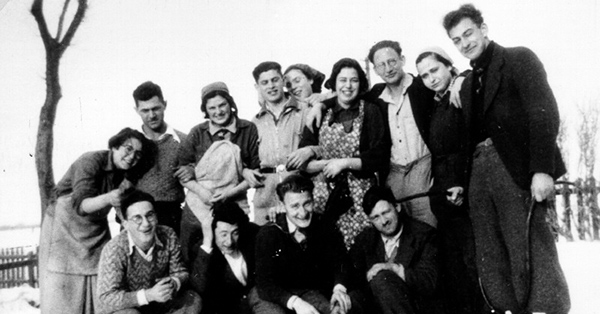
Kibbutz on the Clay: The Story of the Jewish Pioneers of Franeker - Live on Zoom
In 1935 a doctor in the city of Franeker, Netherlands, opened up a Kibbutz - a training ground for young Jews to gain skills in agriculture and physical labor in preparation for making Aliyah, or immigration to a new life in Palestine. Though not directly under the threat of Nazism, a number of young Jews living in the Netherlands became members of the community. Some of these members did, indeed, successfully achieve Aliyah, whereas others took their new skills elsewhere after time on the Kibbutz.
In 1940 the Nazis occupied the Netherlands. The Kibbutz continued to operate, now taking in a number of young Jews who had previously escaped Germany and Austria, only to find themselves again entrapped in Nazi-controlled Europe. Together they labored in agriculture for local farmers, gaining experience, and after strenuous days of physical labor studied Hebrew and Jewish history. But the community was not to last. At the end of 1941, on false charges, the Dutch police under the Nazi authorities raided the Kibbutz. Its members were arrested and sent from Franeker to Westerbork, which was soon to become the primary transit camp for the deportation of all Dutch Jews to their deaths in Poland.
In 2022 a memorial was created at the site of the Kibbutz in Franeker, accompanied by an exhibit at the city museum. This was in tandem with the publication of a book about the history of the Kibbutz, the title in English translation being "Kibbutz on the Clay: a Jewish Dream in Franeker."
Among those who lived in Franeker and did survive the Holocaust was Arthur Rath, who after retirement was a volunteer at the Leo Baeck Institute in New York for nearly 20 years.
About the Speaker
Join us for a presentation and follow-up discussion on the history of the Franeker Kibbutz led by Dr. Syds Wiersma, a historian at the University of Tilburg. He has been involved in both research for the exhibit that took place recently in Franeker about the Kibbutz, as well as helping author Auke Zeldenrust do research on his recently published book on the same topic. Mr. Wiersma will provide a historical overview of the Kibbutz Franeker, as well as highlight some individual stories.
Questions from the audience will follow.
Ticket Info: Free, registration required
Presented by:

lecture
lecture
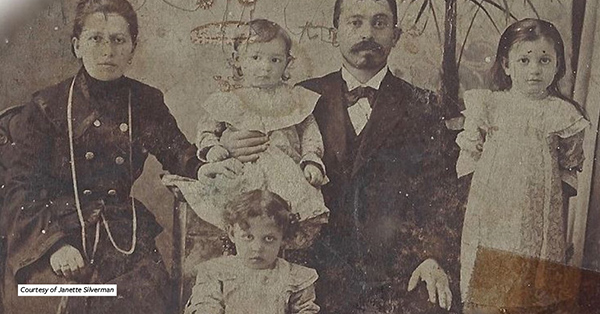
Family History Today: Illegitimacy in the Jewish Communities of Galicia – Live on Zoom
The Austrian Empire imposed many punitive and restrictive laws on the Jewish communities of Galicia to curtail their size and create boundaries between them and their non-Jewish neighbors. However, Galician Jews found ways to circumvent these laws, some of which can be deduced from the paper trail they left behind. For example, it’s not unusual to find your Galician ancestors described as “illegitimate” or listed with multiple or even hyphenated surnames in civil birth, marriage, and death registers. In this lecture, Dr. Janette Silverman, a Senior Genealogist and Research Team Manager at AncestryProGenealogists®, will explain the underlying meaning of these clues and discuss what they reveal about our ancestors’ lives.
Ticket Info: Pay what you wish; register here
Presented by:


lecture
concert
Semer Ensemble - In-Person Event
Founded in 2012, the Semer Ensemble is dedicated to music recorded by Jewish artists during the Nazi period on the almost unknown Berlin-based Semer record label. Destroyed by the Nazis in 1938, the entire Semer catalogue of hundreds of precious, unique recordings was considered lost forever until it was rediscovered in the early 2000s.
The Semer Ensemble features an all-star lineup of Yiddish music artists led by accordionist and pianist Alan Bern, of Brave Old World, and including acclaimed singer, accordionist and mandolin player Daniel Kahn; violinist Mark “Stempenyuk” Kovnatskiy, who performs with many of the most prominent ensembles of the Yiddish cultural revival; world music polyglot and bassist Martin Lillich; Forshpil singer and leader Sasha Lurje; Fayvish singer and leader Fabian Schnedler; and Grammy-winning singer and accordionist Lorin Sklamberg, of the Klezmatics.
Join YIVO for a performance of the Semer Ensemble featuring songs in Yiddish, German, Russian, and Hebrew accompanied by English subtitles.
Ticket Info: Free, registration is required.
Presented by:

concert
concert
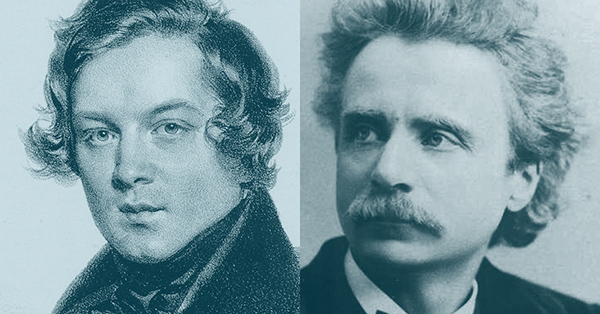
Romantics Around the World: Phoenix Chamber Ensemble with Tesla Quartet in Concert – In Person and on YouTube
Join Phoenix Chamber Ensemble pianists Vassa Shevel and Inessa Zaretsky and guest artists Ross Snyder and Michelle Lie on violin, Chieh-Fan Yiu on viola, and Austin Fisher on cello performing Edvard Grieg’s Andante con moto in C minor EG116 for Piano; Henry Vieuxtemps’ Viola Sonata in B flat Major, II Barcarolla; Bohuslav Martinu’s Three Bergerettes for Piano Trio, H.275; and Robert Schuman’s Piano Quintet in E flat Major, Op.44.
Made possible by the Stravinsky Institute Foundation through the generous support of the Blavatnik Family Foundation.
Ticket Info:
In person: $15 general; $13 seniors, students; $12 members; register here
On YouTube: Pay what you wish; register here
Presented by:

concert
workshop
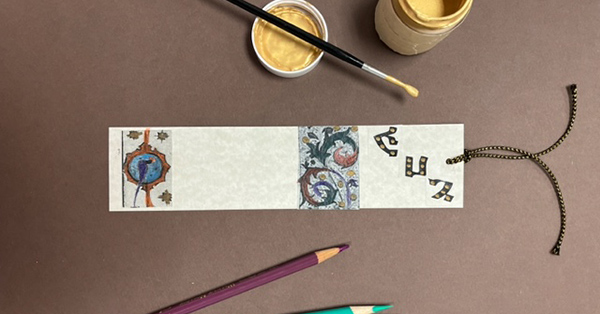
Drop-In Art Workshop: Illuminated Bookmark - In-person Event
Create a parchment-like bookmark inspired by images and illuminations in the exhibition, The Golden Path. Drop in any time between 1:30 and 3:30.
Ticket Info: Free admission, but reservations are requested due to limited supplies. For reservations, please email rsvp@yum.cjh.org.
Presented by:

workshop
workshop

Drop-In Art Workshop: Illuminated Bookmark - In-person Event
Create a parchment-like bookmark inspired by images and illuminations in the exhibition, The Golden Path. Drop in any time between 11:00 and 1:00.
Ticket Info: Free admission, but reservations are requested due to limited supplies. For reservations, please email rsvp@yum.cjh.org.
Presented by:

workshop
gallery tour

Exhibition Tour of The Golden Path: Maimonides Across Eight Centuries
Join Ilana Benson, YUM’s Director of Museum Education for a guided tour of The Golden Path: Maimonides Across Eight Centuries, illuminating the life and impact of the multifaceted luminary and great Jewish sage across continents and cultures through rare manuscripts and books. Exhibition highlights include manuscripts in Maimonides’s own handwriting, a carved 11th century door to the Torah ark from Cairo’s Ben Ezra Synagogue, and beautifully illuminated medieval manuscripts.
Ticket Info: Free admission but reservations are required. For reservations, please email RSVP@yum.cjh.org.
Presented by:

gallery tour
book talk
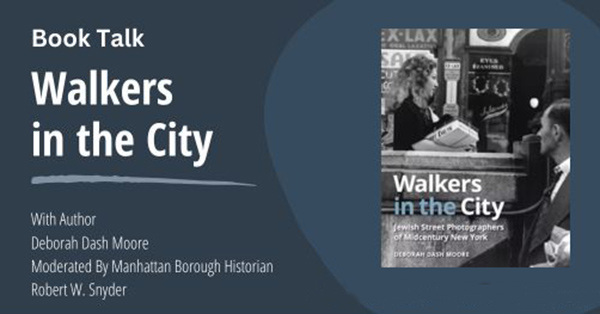
Walkers in the City- Jewish Street Photographers of Midcentury New York - In-person and Live on YouTube
Join AJHS, YIVO, and New Lehrhaus for a discussion with Walkers in the City Author Deborah Dash Moore and Manhattan Borough Historian Robert W. Snyder.
In the middle of the twentieth century, good cameras became smaller and lighter, enabling street photographers to roam alleyways, ride elevated trains and subways, and stroll beaches in summertime to capture daily life with urgency and intimacy. Walkers in the City showcases the distinctive urban vision that working-class Jewish photographers produced with these new cameras on New York City’s streets and in public spaces.
Drawing on the experiences of and photographs by a generation of young Jewish photographers who belonged to the New York Photo League, Deborah Dash Moore offers a new perspective on New York as seen through their eyes—a cityscape of working-class people and democratizing public transit. With their cameras, they pictured Gotham’s abrasive social milieu and its evanescent textures and light, creating an archive of vernacular images of city life and a distinctive tradition of street photography that would be widely imitated.
Walkers in the City documents how these roving, imaginative New Yorkers, entranced by the medium of photography, transformed everyday sights into rousing, joyous, and poignant moments of time, creating visual poetry out of the fabric of social life.
For in-person attendees, books are available for preorder at the ticketing link or can be purchased onsite at the event.
This event is co- sponsored with the YIVO Institute for Jewish Research and New Lehrhaus: The Bay Area Hub for Adult Jewish Learning.
Ticket Info: General Admission: $10
Admission + a signed copy of the book: $37
Online Attendance: Free
Register at ajhs.org/events/book-talk-walkers-in-the-city-jewish-street-photographers-of-midcentury-new-york/
Presented by:


book talk
film screening
Nusakh Vilne Memorial - The Secrets of the Great Synagogue of Vilna
YIVO’s annual Nusakh Vilne program commemorates the Jewish community of Vilna through poetry and music. This year, YIVO will feature the American premiere of The Secrets of the Great Synagogue of Vilna, a new documentary by Loïc Salfati.
Comprising many interviews, the film follows the 2019 and 2021 excavation campaigns of the Great Synagogue of Vilna day by day. Both an archaeological adventure and a historical investigation, The Secrets of the Great Synagogue of Vilna highlights the Lithuanian Jewish community’s intellectual effervescence and the reputation of Vilnius, regarded as one of the most important Jewish cultural centers in Eastern Europe.
Join YIVO for a screening of this documentary followed by a Q&A with director Salfati. As a part of the evening, Rita Glassman, Maria Krupoves, and Zalmen Mlotek will perform a selection of music.
About the Participants
Loïc Salfati is a French engineer who was born in 1974 and moved to Lithuania in 2002. After working in the lighting sector in France, he became a photographer and film director. Loïc Salfati has also worked in the cultural sector since 2005. He is currently deputy director and cultural attaché at the French Institute in Lithuania, where he developed cultural relations between France and Lithuania.
Cantor Rita Glassman is the Cantor of Temple Israel of New Rochelle in New York. She previously served as Cantor of Congregation Sherith Israel in San Francisco, California. In addition to being an ordained Cantor, she is a composer and a Board Certified Chaplain. She has produced seven CD recordings with original music both liturgical and secular on the themes of healing, hope and peace (www.RitaGlassman.com). Cantor Glassman is the daughter of Holocaust survivor Isaac Glazman, z’l, who daringly escaped from the Vilna Ghetto one day before its liquidation. The details of his escape and survival in Vilna were recorded in letters he wrote to a brother in New York which were published in the Yiddish Forward newspaper in 1945. Rita travelled to Vilnius for the first time in the summer of 2019, arriving at the excavation site of the Great Synagogue of Vilna the day the Bima was located. Her rendition of the prayer “El Maleh Rachamim” captured in the film “The Secrets of the Great Synagogue of Vilna” was from that very moment.
Dr. Maria Krupoves, an artist and folklorist, is internationally acclaimed as a singer and interpreter of the folksongs of Eastern Europe, especially those of her native Vilnius with its multicultural heritage. In 2001, Dr. Krupoves was awarded a Vladimir and Pearl Heyfetz Fellowship at YIVO (Institute for Jewish Research) in New York. While in the United States, she has lectured and performed at YIVO and various universities. The singer has published seven albums with a multicultural repertory in collaboration with klezmer, jazz and classical musicians. Her album Without a Country: Songs of Stateless Peoples got an enthusiastic review in the Billboard Magazine. Recordings from her album Songs of the Vilna Ghetto have been used in the numerous documentaries about Vilna’s Jewish history.
Zalmen Mlotek is an internationally recognized authority on Yiddish folk and theater music as well as creator of new musicals such as The Golden Land which toured Italy under the sponsorship of Leonard Bernstein and Those Were The Days, nominated for two Tony Awards. As the artistic director of the NYTF for the past twenty years, Mlotek helped revive Yiddish classics, instituted simultaneous English and Russian supertitles at performances and brought leading creative artists of television, theatre and film, such as Itzhak Perlman, Mandy Patinkin, Sheldon Harnick, Ron Rifkin and Joel Grey to the Yiddish stage. His vision has propelled classics, including NYTF productions of the world premiere of Isaac Bashevis Singer's Yentl in Yiddish (1998), Di Yam Gazlonim (The Yiddish Pirates of Penzance, 2006) the 1923 Rumshinky operetta The Golden Bride (2016), and the critically acclaimed Fidler Afn Dakh (Fiddler on the Roof in Yiddish, 2018). During his tenure at the NYTF, the theatre company has been nominated or received over ten Drama Desk Awards and four Lucille Lortel Awards.
Ticket Info: Free; register at https://yivo.org/NusakhVilne2023 for tickets.
Presented by:

film screening
book launch
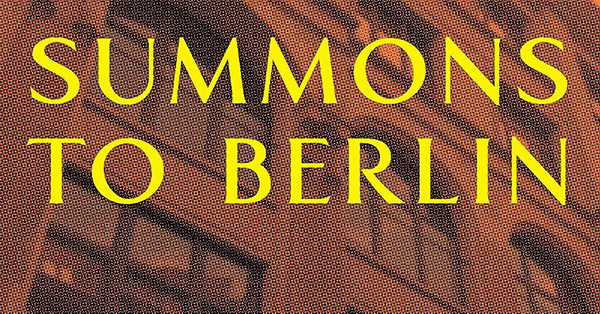
Summons to Berlin: Nazi Theft and a Daughter’s Quest for Justice: Joanne Intrator
On his deathbed, a New York psychiatrist’s father poses two unsettling questions: “Are you tough enough? Do they know who you are?” Author Joanne Intrator soon realizes that these haunting questions relate to a center-city Berlin building at 16 Wallstrasse that the Nazis ripped away from her family in 1938. But a decade will pass before she fully grasps why her father threw down the gauntlet as he did. Repeatedly, Intrator’s restitution quest forces her to confront her profound fears surrounding Germany and the Holocaust. LBI Executive Director Emeritus William H. Weitzer will speak with Intrator about restitution, intergenerational trauma, and the power of memoir.
Note: This event will take place in-person at the Center for Jewish History, and will be live streamed online.
Author: Dr. Joanne Intrator
Joanne Intrator’s life has been shaped by being the daughter of German Jewish refugees. Since childhood, she pondered why people perpetrate atrocities on their fellow human beings. After studying European history at Connecticut College, she received an MD from Columbia University and became a psychiatrist. She did a fellowship in Psychiatry and Law at Albert Einstein. Mentored by Dr. Robert Hare, she spearheaded the first brain imaging research on well-defined psychopaths, published in The Journal of Biological Psychiatry. Following her father’s death in 1993, she took it upon herself to fight for the restitution of a building in Berlin. Her journey has been the subject of news articles, television interviews, and museum exhibits. Joanne practices psychiatry in New York City. She has written for The Journal for The Study of Antisemitism, Ästhetik & Kommunikation (Berlin), Women Writers. Women(‘s) Books, and she writes a blog on psychopathy for Psychology Today.
LBI Executive Director Emeritus Dr. William H. Weitzer
William H. Weitzer, Ph.D. became the John H. Slade Executive Director of the Leo Baeck Institute in January, 2013 and retired in October, 2022. Dr. Weitzer, formerly the Executive Vice President at Fairfield University in Connecticut, has over thirty years of experience in academic administration, budget and finance, fund raising, community relations, and program evaluation. In his role as Executive Director, Dr. Weitzer combined various aspects of his background – being of German-Jewish descent, participating in Jewish communal life, working closely with faculty and scholars, and applying his professional and management skills to the Leo Baeck Institute.
Ticket Info: Free; register at eventbrite
Presented by:

book launch
conversation
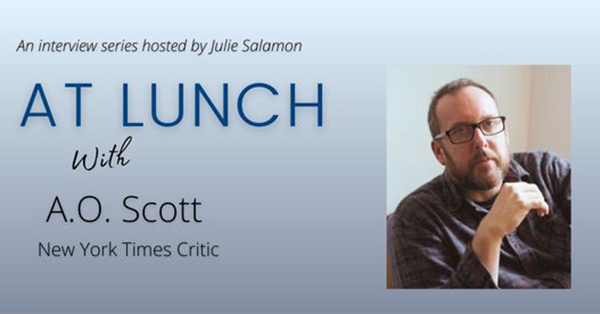
At Lunch with A.O. Scott – Live on Zoom
Join us for our season 4 premiere of AT LUNCH where Julie Salamon sits down with New York Times Critic, A.O. Scott to discuss his return to reviewing books, his career in criticism, and thoughts on our current culture.
A. O. Scott joined The New York Times as a film critic in January 2000, and was chief critic from 2004-2023 during which he wrote 2,220 movie reviews and nearly 1,300 other essays, articles and appraisals. In March, after the Oscars and the end of the 2023 awards season, he moved to The New York Times Book Review to write critical essays, notebooks and reviews that grapple with literature, ideas and intellectual life.
Prior to reviewing films, Scott had been the lead Sunday book reviewer for Newsday and a frequent contributor to Slate, The New York Review of Books, and many other publications. He lives in Brooklyn with his family.
Ticket Info: Free; register at ajhs.org/events/at-lunch-with-a-o-scott/ for a Zoom link
Presented by:

conversation
book talk
Heidegger in Ruins - Live on Zoom
Martin Heidegger’s sympathies for the conservative revolution and National Socialism have long been well known. As the rector of the University of Freiburg in the early 1930s, he worked hard to reshape the university in accordance with National Socialist policies. He also engaged in an all-out struggle to become the movement’s philosophical preceptor, “to lead the leader.” Yet for years, Heidegger’s defenders have tried to separate his political beliefs from his philosophical doctrines. They argued, in effect, that he was good at philosophy but bad at politics. But with the 2014 publication of Heidegger’s Black Notebooks, it has become clear that he embraced a far more radical vision of the conservative revolution than previously suspected. His dissatisfaction with National Socialism, it turns out, was mainly that it did not go far enough. The notebooks show that far from being separated from Nazism, Heidegger’s philosophy was suffused with it.
In Heidegger in Ruins: Between Philosophy and Ideology, Richard Wolin explores what the notebooks mean for our understanding of arguably the most important philosopher of the twentieth century, and of his ideas—and why his legacy remains radically compromised. Join YIVO for a discussion with Wolin about this book led by YIVO's Executive Director Jonathan Brent.
About the Speakers
Richard Wolin is distinguished professor of history, political science, and comparative literature at the CUNY Graduate Center. He is the author of Heidegger’s Children: Hannah Arendt, Karl Löwith, Hans Jonas, and Herbert Marcuseand The Seduction of Unreason: The Intellectual Romance with Fascism from Nietzsche to Postmodernism.
Jonathan Brent is the Executive Director of the YIVO Institute for Jewish Research in New York City. From 1991 to 2009 he was Editorial Director and Associate Director of Yale Press. He is the founder of the world acclaimed Annals of Communism series, which he established at Yale Press in 1991. Brent is the co-author of Stalin’s Last Crime: The Plot Against the Jewish Doctors, 1948-1953(Harper-Collins, 2003) and Inside the Stalin Archives(Atlas Books, 2008). He is now working on a biography of the Soviet-Jewish writer Isaac Babel. Brent teaches history and literature at Bard College.
Ticket Info: Free; register at yivo.org/Heidegger
Presented by:

book talk
book talk
A Provincial Newspaper and Other Stories - Live on Zoom
When the young narrator of Miriam Karpilove’s Yiddish-language A Provincial Newspaper leaves New York to work for a new Yiddish newspaper in Massachusetts, she expects to be treated with respect as a professional writer. Instead, she finds herself underpaid and overworked. In this slapstick novella, Karpilove’s narrator lampoons the gaggle of blundering publishers and editors who put her through the wringer and spit her back out again.
Along with A Provincial Newspaper, this collection, translated by Jessica Kirzane, includes nineteen stories originally published in Forverts in the 1930s, during Karpilove’s time as a staff writer at that newspaper. The stories include a large cast of characters—an older woman navigating widowhood, a writer rebuffed by dismissive audiences, American-born Jewish girls unable to communicate with Yiddish-speaking immigrants, and a painter so overcome with jealousy about his muse’s potential lover that he misses his opportunity with her—each portrayed with both sympathy and irony, in ways unexpected and delightful. Also included are Karpilove’s recollections of her arrival in Palestine in 1926, chronicled with the same buoyant cynicism and witty repartee that is beloved by readers of her fiction.
Join YIVO for a discussion with Kirzane about this newly published translation led by scholar and translator Anita Norich.
About the Speakers
Jessica Kirzane is the assistant instructional professor of Yiddish at the University of Chicago. She is the Editor-in-Chief for In Geveb: A Journal of Yiddish Studies. Her academic work has appeared in the Journal of Jewish Identities, Zutot, American Jewish History, Judaism: Race, and Ethics: Conversations and Questions (Penn State University Press, 2020) and The Sacred Encounter: Jewish Perspectives in Sexuality (CCAR Press, 2014) and her translations have been published in jewishfiction.net, Jewish Currents, Columbia Journal, Pakn Treger, Your Impossible Voice, and elsewhere. She is the translator of Miriam Karpilove's Diary of a Lonely Girl, or the Battle Against Free Love (Syracuse UP, 2019). Kirzane was a 2017 Translation Fellow and a 2018 Pedagogy Fellow at the Yiddish Book Center. She earned her PhD in Yiddish Studies from Columbia University in 2017.
Anita Norich is Collegiate Professor Emerita of English and Judaic Studies at the University of Michigan. She is the Gerstein Distinguished Visiting Professor at the University of Toronto in Fall 2023. She is the translator of Two Feelings by Tsilye Dropkin (forthcoming), Fear and Other Stories by Chana Blankshteyn, and A Jewish Refugee in New York by Kadya Molodovsky. Norich is also the author of Writing in Tongues: Yiddish Translation in the 20th Century; Discovering Exile: Yiddish and Jewish American Literature in America During the Holocaust; The Homeless Imagination in the Fiction of Israel Joshua Singer, and co-editor of Languages of Modern Jewish Cultures: Comparative Perspectives; Jewish Literatures and Cultures: Context and Intertext; and Gender and Text in Modern Hebrew and Yiddish Literatures. She translates Yiddish literature, and teaches, lectures, and publishes on a range of topics concerning modern Jewish cultures, Yiddish language and literature, Jewish American literature, and Holocaust literature.
Ticket Info: Free, registration is required.
Presented by:

book talk
lecture
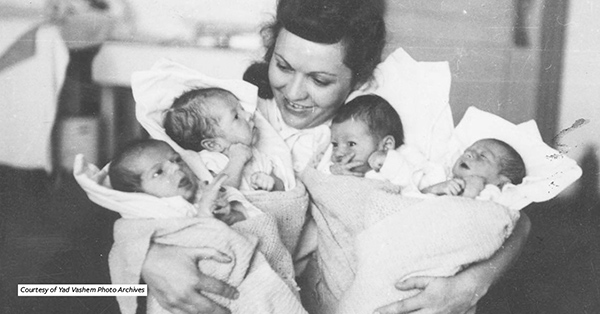
Family History Today: New Life after the Holocaust - The Extraordinary Baby Boom in Europe’s Displaced Persons Camps – Live on Zoom
After WWII, the Allies established Displaced Persons (DP) camps in the Allied-occupied zones of Germany, Austria, and Italy to temporarily house the millions of Europeans who were displaced by the war. As more than 700,000 Jews, including many concentration camp survivors, flooded into these camps, they were quick to get married and, within less than a year, the birth rate of the Jewish population in Europe’s DP camps was the highest of any group in the world at the time. In this lecture, Serafima Velkovich, Head of the Family Roots Research Section at the Yad Vashem Archives, will discuss the history of this unique phenomenon and explain how you can search for information on the former DP babies in your family.
Ticket Info: Pay what you wish; register here for a Zoom link
Presented by:

lecture
gallery tour

Museum Director's Tour of The Golden Path: Maimonides Across Eight Centuries - In-person Event
Join YUM’s Director Gabriel Goldstein for a guided tour of The Golden Path: Maimonides Across Eight Centuries, illuminating the life and impact of the multifaceted luminary and great Jewish sage across continents and cultures through rare manuscripts and books. Exhibition highlights include manuscripts in Maimonides’s own handwriting, a carved 11th century door to the Torah ark from Cairo’s Ben Ezra Synagogue, and beautifully illuminated medieval manuscripts.
Ticket Info: Free admission but reservations are required. For reservations, please email rsvp@yum.cjh.org. Limited space.
Presented by:

gallery tour
film screening
Kleztival NYC: “A Estrela Oculta do Sertão” (The Star Hidden in the Backlands)
Screening of documentary “A Estrela Oculta do Sertão” (The Star Hidden in the Backlands) followed by Q&A with the producers
About the Kleztival NYC
Brazilian Jewish Music and Culture, a two-day program with Brazilian and North American artists.
Celebrating the 23 Brazilian Jews who, in 1654, arrived in North America and helped to build a city then called New Amsterdam, which later became New York. Celebrating Brazil, its Jewish roots and community today.
Ticket Info: $9 General Admission
Full Center Program Pass: $25
Presented by:

film screening
lecture
Emma Goldman, Radical Anarchism, and the Opera - Live on Zoom
Should a radical anarchist love going to the opera? To answer this complicated question, join Dr. Samantha M. Cooper for a lecture about the curious case of Emma Goldman, a Jewish radical anarchist whose assorted writings attest to her strong belief that she could be both a good revolutionary and a committed devotee of the highest of highbrow artforms.
This event is co-sponsored with the American Society for Jewish Music, the Lowell Milken Center for Music of American Jewish Experience, and the YIVO Institute for Jewish Research.
About the Speaker
Dr. Samantha M. Cooper is a historical musicologist who specializes in American Jewish cultural history. She is currently the Ariel and Joshua Weiner Family Visiting Fellow at the University of Pennsylvania’s Hebert D. Katz Center for Advanced Judaic Studies (2023-2024), and a recent Harry Starr Postdoctoral Fellow in Judaica at Harvard University’s Center for Jewish Studies (2022-2023). She is working on her first monograph, American Jews and the Making of the New York Opera Industry, 1880-1940. Samantha received her Ph.D. in Historical Musicology at New York University in 2022. Samantha’s research has been supported by fellowships from the Center for Jewish History, the Memorial Foundation for Jewish Culture, the Social Sciences and Humanities Research Council of Canada, P.E.O. International, the American Academy for Jewish Research, and Temple University’s Feinstein Center for American Jewish History. Her publications have appeared in American Jewish History, as well as the Journal of the Society for American Music, Journal of Synagogue Music, Journal of Musicological Research, Society for American Music Bulletin, and Musica Judaica. Samantha is the producer and host of The Sounding Jewish podcast, and the Co-Executive Director of the Jewish Music Forum, A Project of the American Society for Jewish Music.
Ticket Info: Free with RSVP
Presented by:



lecture
concert
Kleztival NYC: Brazilian Jewish Music Concert
Executive Producers: Nicole & Edy Borger
Musical Director: Frank London
Singers: Carla Berg, Nicole Borger, Ahuva Flit and Rafael Zolko
Musicians: Pablo Aslan (bass), Vicente Falek (accordion), Frank London (trumpet), Oren Neiman (guitar), Alex Parke (clarinet), Satoshi Takashi (drums)
Special thanks to:
Drora Arussy, Julia Rothkof, Miriam Mora, Suzanne Schwimmer, Alex Minkin, Thiago Antonio de Melo Oliveira, Tiago Domingues Carvalho, Aaron Alexander, Peter Rushevsky, Hanna Griff-Sleven, Felipe Pait, Eliezer Kahn, Bruno & Joyce Szlak, Angela Waitzberg, Bruce Phillips, Daniel Borger.
About the Kleztival NYC
Brazilian Jewish Music and Culture, a two-day program with Brazilian and North American artists.
Celebrating the 23 Brazilian Jews who, in 1654, arrived in North America and helped to build a city then called New Amsterdam, which later became New York. Celebrating Brazil, its Jewish roots and community today.
Ticket Info: $18 General Admission
Full Center Program Pass: $25
Presented by:

concert
gallery tour

Collector’s Tour of The Golden Path: Maimonides Across Eight Centuries – Featuring Highlights from the Hartman Family Collection of Manuscripts and Rare Books - In-person Event
Join Collector Robert Hartman for a guided tour of "The Golden Path: Maimonides Across Eight Centuries," illuminating the life and impact of the multifaceted luminary and great Jewish sage across continents and cultures through rare manuscripts and books. Exhibition highlights include manuscripts in Maimonides’s own handwriting, a carved 11thcentury door to the Torah ark from Cairo’s Ben Ezra Synagogue, and beautifully illuminated medieval manuscripts.
About the Speaker:
Robert Hartman, a prominent Chicago-based business and lay leader, has amassed a wide-ranging collection of manuscripts and rare printed Maimonidean material over the past twenty-five years.
Ticket Info: Free admission but reservations are required. For reservations, please email rsvp@yum.cjh.org. Limited space.
Presented by:

gallery tour
lecture

Preparing for the Yamim Noraim with the Rambam - In-person Event
Lectures by Professor Smadar Rosensweig, Adjunct Professor of Bible, Stern College for Women, and Rabbi Dr. Michael Rosensweig, Rosh Yeshiva, Rabbi Isaac Elchanan Theological Seminary followed by a tour of the Yeshiva University Museum exhibition, The Golden Path: Maimonides Across Eight Centuries by Dr. David Sclar, Exhibition Curator.
Ticket Info: Free admission but reservations are required.
Presented by:

lecture
gallery tour

Collector’s Tour of The Golden Path: Maimonides Across Eight Centuries – Featuring Highlights from the Hartman Family Collection of Manuscripts and Rare Books - In-person Event
Join Collector Robert Hartman for a guided tour of "The Golden Path: Maimonides Across Eight Centuries," illuminating the life and impact of the multifaceted luminary and great Jewish sage across continents and cultures through rare manuscripts and books. Exhibition highlights include manuscripts in Maimonides’s own handwriting, a carved 11thcentury door to the Torah ark from Cairo’s Ben Ezra Synagogue, and beautifully illuminated medieval manuscripts.
About the Speaker:
Robert Hartman, a prominent Chicago-based business and lay leader, has amassed a wide-ranging collection of manuscripts and rare printed Maimonidean material over the past twenty-five years.
Ticket Info: Free admission but reservations are required. For reservations, please email rsvp@yum.cjh.org. Limited space.
Presented by:

gallery tour
book club
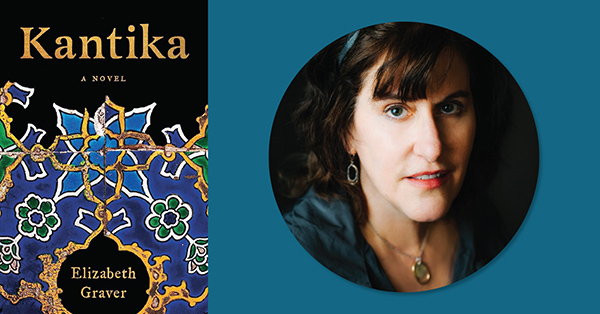
People of the Book Club: Kantika – Live on Zoom
Please note: This event is sold out.
Go behind the stories and peer into the archives at the CJH book discussion, led by Lauren Gilbert, Director of Public Services at the Center for Jewish History. This session will feature a discussion of Kantika, a dazzling, multigenerational Sephardic saga that spans continents, telling a story of endurance and reinvention based on the true history of author Elizabeth Graver's own family. We will be joined by the author, who will discuss the process of researching Kantika, which sent her deep into the archives and visiting the places where her ancestors lived.
Participants will need to obtain their own copy of the book to read in advance.
NOTE: This is an interactive book discussion for all participants, not a lecture, so space is limited.
About the Author
Elizabeth Graver is the co-director of the creative writing program at Boston College. Her previous novel, The End of the Point, was long-listed for the 2013 National Book Award for Fiction and selected as a New York Times Notable Book of the Year. Her other novels are Awake, The Honey Thief, and Unravelling. Her story collection, Have You Seen Me?, won the 1991 Drue Heinz Literature Prize. Her work has been anthologized in Best American Short Stories, Prize Stories: The O. Henry Awards, The Pushcart Prize Anthology, and Best American Essays.
Presented by:

book club
lecture
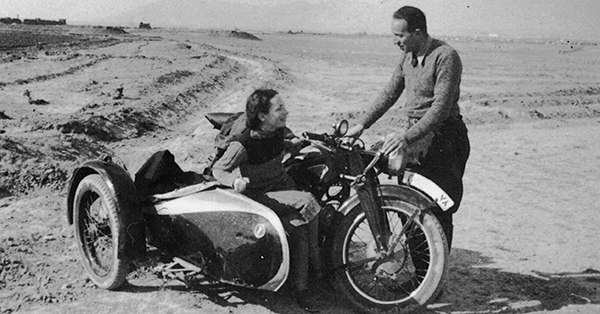
64th Leo Baeck Memorial Lecture by Atina Grossmann
In the 64th Annual Leo Baeck Memorial Lecture, historian Atina Grossmann (Cooper Union) will examine the ambivalent, paradoxical, and diverse experiences, emotions, and memories of Jews who found refuge from National Socialism and the Holocaust in India and Iran after 1933. Always shadowed by the emerging European catastrophe, uprooted Jews were also precariously privileged as white Europeans in non-western, colonial or semi-colonial societies. An extensive collection of family correspondence and memorabilia extending from wartime Nazi Berlin throughout the global diaspora of German Jewry as well as archival, literary, visual, and oral history sources illuminates refugees’ everyday lives in the changing context of interwar fascination and contact with the “Orient,” global war against fascism, anti-colonial independence movements, and gradual revelations about the destruction of the European world they had escaped.
Note: This event will take place in-person at the Center for Jewish History, and will be live streamed online.
The Leo Baeck Memorial Lecture is endowed by Marianne C. Dreyfus and Family, the descendants of Rabbi Leo Baeck
Ticket Info: Free; register at eventbrite
Presented by:

lecture
gallery tour

Exhibition Tour of The Golden Path: Maimonides Across Eight Centuries - In-person Event
Join YUM’s Director of Museum Education Ilana Benson for a guided tour of The Golden Path: Maimonides Across Eight Centuries, illuminating the life and impact of the multifaceted luminary and great Jewish sage across continents and cultures through rare manuscripts and books. Exhibition highlights include manuscripts in Maimonides’s own handwriting, a carved 11th century door to the Torah ark from Cairo’s Ben Ezra Synagogue, and beautifully illuminated medieval manuscripts.
Ticket Info: This event is sold out
Presented by:

gallery tour
lecture
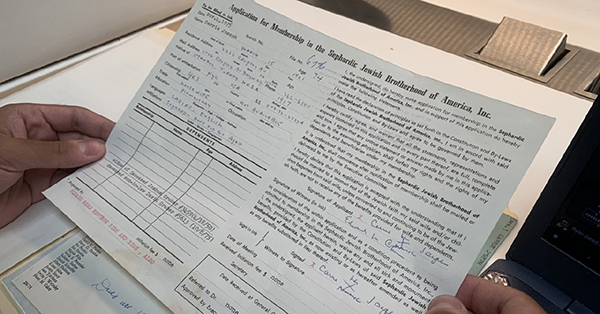
Family History Today: Ask a Genealogy Librarian – Unique Sources at the Center for Jewish History – Live on Zoom
Please submit your questions by August 7, 9 am ET [Note: program registration required first]
The Center for Jewish History (CJH) houses the largest archive of the modern Jewish experience outside of Israel, illuminating the history and culture of Jewish communities around the world. Among the vast collections at CJH are many unique documents and hard-to-find books that provide information on individuals, families, and places. A few examples include client files of immigrant aid organizations, burial lists of landsmanshaftn (hometown societies) in New York, and books on Jewish history and life in towns and regions across the globe. However, finding items that pertain to your family history can be tricky. Moriah Amit, the CJH’s Senior Genealogy Librarian, will answer your questions about searching our online catalog, using archival finding aids, and determining what’s available online, as well as those about specific record types or collections. This program is appropriate for beginner and intermediate-level researchers of all Jewish backgrounds, Ashkenazi and Sephardi/Mizrahi.
Please send us your most important question by August 7 by replying to your registration confirmation email.
Ticket Info: Pay what you wish; register here for a Zoom link
Presented by:

lecture
gallery tour

Collector’s Tour of The Golden Path: Maimonides Across Eight Centuries – Featuring Highlights from the Hartman Family Collection of Manuscripts and Rare Books - In-person Event
Join Collector Robert Hartman for a guided tour of "The Golden Path: Maimonides Across Eight Centuries," illuminating the life and impact of the multifaceted luminary and great Jewish sage across continents and cultures through rare manuscripts and books. Exhibition highlights include manuscripts in Maimonides’s own handwriting, a carved 11thcentury door to the Torah ark from Cairo’s Ben Ezra Synagogue, and beautifully illuminated medieval manuscripts.
About the Speaker:
Robert Hartman, a prominent Chicago-based business and lay leader, has amassed a wide-ranging collection of manuscripts and rare printed Maimonidean material over the past twenty-five years.
Ticket Info: Free admission but reservations are required. For reservations, please email rsvp@yum.cjh.org. Limited space.
Presented by:

gallery tour
gallery tour

Museum Director's Tour of The Golden Path: Maimonides Across Eight Centuries - In-person Event
Join YUM’s Director Gabriel Goldstein for a guided tour of The Golden Path: Maimonides Across Eight Centuries, illuminating the life and impact of the multifaceted luminary and great Jewish sage across continents and cultures through rare manuscripts and books. Exhibition highlights include manuscripts in Maimonides’s own handwriting, a carved 11th century door to the Torah ark from Cairo’s Ben Ezra Synagogue, and beautifully illuminated medieval manuscripts.
Ticket Info: Free admission but reservations are required. For reservations, please email rsvp@yum.cjh.org. Limited space.
Presented by:

gallery tour
book talk
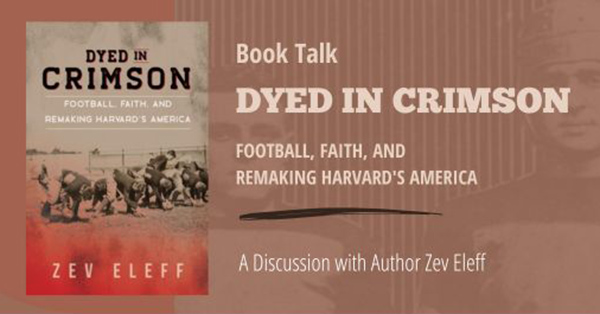
Dyed in Crimson - Football, Faith, and Remaking Harvard's America - In-person Event
In 1926, Harvard athletic director Bill Bingham chose former Crimson All-American Arnold Horween as coach of the university’s moribund football team. The pair instilled a fresh culture, one based on merit rather than social status, and in the virtues of honor and courage over mere winning. Yet their success challenged entrenched ideas about who belonged at Harvard and, by extension, who deserved to lay claim to the American dream.
Zev Eleff tells the story of two immigrants’ sons shaped by a vision of an America that rewarded any person of virtue. As a player, the Chicago-born Horween had led Harvard to its 1920 Rose Bowl victory. As a coach, he faced intractable opposition from powerful East Coast alumni because of his values and midwestern, Jewish background. Eleff traces Bingham and Horween’s careers as student-athletes and their campaign to wrest control of the football program from alumni. He also looks at how Horween undermined stereotypes of Jewish masculinity and dealt with the resurgent antisemitism of the 1920s.
Zev Eleff is president of Gratz College and professor of American Jewish history. His books include Authentically Orthodox: A Tradition-Bound Faith in American Life.
Ticket Info: Admission: $10
Admission + a signed copy of the book: $33
Register at ajhs.org/events/book-talk-dyed-in-crimson-football-faith-and-remaking-harvards-america/
Presented by:

book talk
lecture
Chaim Grade’s Two Faces - Poetry and Prose - Live on Zoom
Miriam Trinh | Delivered in Yiddish.
The writer Chaim Grade (1910 – 1982) wrote during the course of a half century, beginning “in the Old Country” in Vilna and through his final years “in the New Country” in New York. The trajectory of his life and oeuvre also led him through war-torn Soviet Union and postwar Paris. Based on a selection of texts from different periods written in poetry and in prose, we will see why it is correct to speak of two main periods in Grade’s work. We will attempt to isolate the characteristics of each genre individually and discuss the reasons for the clear dividing line between them. Attention will be paid to understanding Grade’s biography and how it potentially influenced the author’s burning question: What can be expressed in what genre?
About the Speaker
Miriam Trinh was born in Poland, grew up in Germany and immigrated to Israel after finishing high school. She completed her undergraduate studies in Philosophy and Yiddish at the Hebrew University of Jerusalem, obtained her Master's degree in Yiddish literature at the Universities of Paris-Sorbonne and Strasbourg (France), her Ph.D. at the Hebrew University and was a postdoctoral fellow at the Johns Hopkins University in Baltimore. She has taught Yiddish language and literature since 1999, in Paris, Oxford, Strassbourg, Vilna, New York, Baltimore, Tel Aviv and is currently teaching Yiddish at the Hebrew University of Jerusalem. Miriam Trinh has published works in the field of modern Yiddish literature and especially Holocaust literature. She is also engaged in translation from and into Yiddish.
Ticket Info: Free; register at yivo.org/YCLS2023-Trinh
Presented by:

lecture
lecture
When Yiddish was Young in Israel - Live on Zoom
Shachar Pinsker | Delivered in English.
Focusing on “Yung Yisroel” (Young Israel), the name of a group of Yiddish writers in 1950s–1960s Israel, this talk will examine the history of Yiddish as it played out in cultural production. Shachar Pinsker studies the writers in Israel—some are well-known; others are less-studied—who continued to write and publish in Yiddish, and he explains the influence of Yiddish on Hebrew cultural production from the establishment of the state in 1948 until today. Pinsker will show why the Israeli culture of the past and the present, from literature, journalism, visual art, film, to popular culture, cannot be fully understood without considering the pervasive role of Yiddish. Taking Yiddish in Israel seriously shines new light on Israel and its population, from landscape to language, from collective memory to contemporary identities.
About the Speaker
Shachar Pinsker is Professor of Judaic Studies and Middle East Studies at the University of Michigan and Associate Director of the school's Frankel Center for Judaic Studies. He is a fellow of the American Academy of Jewish Research. His scholarly writings include two award-winning books , Literary Passports: The Making of Modernist Hebrew Fiction in Europe (2011) and A Rich Brew: How Cafés Created Modern Jewish Culture (2018). He is currently writing a book on Yiddish in Israeli literature and co-directing the NEH-supported research project The Feuilleton, the Public Sphere, and Modern Jewish Cultures.
Ticket Info: Free; register at yivo.org/YCLS2023-Pinsker
Presented by:

lecture
gallery tour

Exhibition Tour of The Golden Path: Maimonides Across Eight Centuries
Join YUM’s Director of Museum Education Ilana Benson for a guided tour of The Golden Path: Maimonides Across Eight Centuries, illuminating the life and impact of the multifaceted luminary and great Jewish sage across continents and cultures through rare manuscripts and books. Exhibition highlights include manuscripts in Maimonides’s own handwriting, a carved 11th century door to the Torah ark from Cairo’s Ben Ezra Synagogue, and beautifully illuminated medieval manuscripts.
Ticket Info: Free admission but reservations are required. To attend, please email RSVP@yum.cjh.org.
Presented by:

gallery tour
gallery tour

Exhibition Tour of The Golden Path: Maimonides Across Eight Centuries
Join YUM’s Director of Museum Education Ilana Benson for a guided tour of The Golden Path: Maimonides Across Eight Centuries, illuminating the life and impact of the multifaceted luminary and great Jewish sage across continents and cultures through rare manuscripts and books. Exhibition highlights include manuscripts in Maimonides’s own handwriting, a carved 11thcentury door to the Torah ark from Cairo’s Ben Ezra Synagogue, and beautifully illuminated medieval manuscripts.
Ticket Info: This event is sold out, but spaces are still available for the July 20th tour.
Presented by:

gallery tour
memorial event
Shloyshim for Chava Lapin - Live on Zoom
In honor of Chava Lapin on the occasion of her shloyshim we will make a siyum mishnayes, Mishna Ta'anit using the well-known Yiddish translation by her uncle Symcha Petrushka.
The program will be conducted by the writer and researcher Michael Wex.
Ticket Info: Free; register at yivo.org/Shloyshim-for-Chava-Lapin
Presented by:

memorial event
gallery tour

Museum Director's Tour of The Golden Path: Maimonides Across Eight Centuries
Join YUM’s Director Gabriel Goldstein for a guided tour of The Golden Path: Maimonides Across Eight Centuries, illuminating the life and impact of the multifaceted luminary and great Jewish sage across continents and cultures through rare manuscripts and books. Exhibition highlights include manuscripts in Maimonides’s own handwriting, a carved 11thcentury door to the Torah ark from Cairo’s Ben Ezra Synagogue, and beautifully illuminated medieval manuscripts.
Ticket Info: Free admission but reservations are required. To attend, please RSVP to RSVP@yum.cjh.org.
Presented by:

gallery tour
lecture
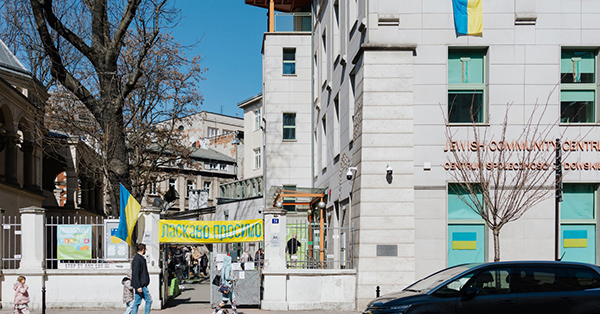
In the Shadow of Auschwitz: How JCC Krakow is Rebuilding Jewish Life in Poland and Supporting Ukrainian Refugees – Live on Zoom
In this talk, JCC Krakow CEO Jonathan Ornstein will discuss the center's mission to rebuild Jewish life after the Holocaust, the celebration of Holocaust Survivor Day, and the impact of the Jewish community's work with Ukrainian refugees. Jonathan will also discuss how the JCC has impacted the narrative of Jewish-heritage tourism in Poland, by including Krakow and other locations of Jewish significance in addition to Auschwitz.
This program is part of the Family History Today series, presented and sponsored by the Ackman & Ziff Family Genealogy Institute at the Center for Jewish History. It is co-sponsored by JCC Krakow.
Ticket Info: Pay what you wish; register here for a Zoom link
Presented by:

lecture
lecture
The 'Tsenerene': The Most Popular Yiddish Book in History - Live on Zoom
Avi Blitz | Delivered in English.
Arguably the most popular book in the history of Yiddish literature, the Tsenerene (alternative Romanization: Ze’enah U-Re’enah) has been reprinted, both in Yiddish and in translation, 273 times since its appearance in the early seventeenth century. Arranged according to the weekly Torah portion, the book employs fragments of biblical verses in Hebrew to open sections of Yiddish text that may include direct translations, midrashic stories, commentaries, and – less often – interpretations original to the author, Yankev ben Yitskhok Ashkenazi of Janów.
In this talk about the Tsenerene, Dr. Avi Blitz will show how the work’s anthological style accommodates curious combinations of commentary and folklore and he will discuss what the book teaches us about the folk beliefs of early modern Ashkenazi society. Using different editions of the work, he will talk about textual variances and diverse paratextual elements that hint at the various ways the book was read throughout its 400-year history. Finally, he will discuss the idea of the book as a “women’s Bible.”
About the Speaker
Avi Blitz is a graduate of Oxford University and holds a PhD in Comparative Literature from Indiana University. He has taught Hebrew, Yiddish, and Jewish Studies in Europe, Israel, Latin America, and the USA. He teaches Yiddish remotely through the Argentinian branch of YIVO (IWO) in Buenos Aires and works with beginners, intermediate, and advanced students across the Americas.
Ticket Info: Free; register at yivo.org/YCLS2023-Blitz
Presented by:

lecture
lecture
Between Tradition and Trend: Popular Culture and Language Use among American Hasidim - Live on Zoom
Chaya Nove | Delivered in Yiddish.
Over the past three decades, there has been a significant rise in Hasidic popular cultural production. Driven by creative energy and a growing demand for culturally suitable entertainment and aided by new technologies that have made production cheaper and more accessible, Hasidim have produced a robust corpus of cultural artifacts and expressions, including theatrical performances, lyrical music, literature, comedy, advertisements, games, and more, all in Yiddish. Within these genres, the interplay between traditionalism and modernity is evident as mainstream American trends, such as musical styles, literary genres, and cinematographic effects, are refracted and refitted in traditional content, such as biblical verses and moralistic tales, resulting in a distinctive Hasidic style. The question arises as to how developments in expressive culture are reflected in the lives of ordinary Hasidic consumers. Based on the sociolinguistic premise that social developments manifest in the everyday language of a group, it is expected that the spoken language will exhibit both signs of innovation and conservatism. In this talk I will provide an overview of Hasidic popular culture and review several sociolinguistic studies whose results, while apparently contradictory, reflect the ideological and cultural diversification within the community, highlighting the capacity of Hasidim to both preserve their traditional lifestyle and adapt to the modern world.
About the Speaker
Chaya Nove holds a Ph.D. in Linguistics from the Graduate Center at City University of New York. She studies variation and change in contemporary Hasidic Yiddish, as well as in the prewar Yiddish of the Transcarpathian region. Chaya currently works as a postdoctoral scholar at the University of California (Berkeley), where she assists in the development of the “Corpus of Spoken Yiddish in Europe (CSYE)” based on Holocaust testimonies.
Ticket Info: Free; register at yivo.org/YCLS2023-Nove
Presented by:

lecture
gallery tour

Museum Director's Tour of The Golden Path: Maimonides Across Eight Centuries
Join YUM’s Director Gabriel Goldstein for a guided tour of The Golden Path: Maimonides Across Eight Centuries, illuminating the life and impact of the multifaceted luminary and great Jewish sage across continents and cultures through rare manuscripts and books. Exhibition highlights include manuscripts in Maimonides’s own handwriting, a carved 11thcentury door to the Torah ark from Cairo’s Ben Ezra Synagogue, and beautifully illuminated medieval manuscripts.
Ticket Info: This tour is sold out.
Presented by:

gallery tour
lecture
The Hasidic Revival on the Eve of the Holocaust - Live on Zoom
Glenn Dynner | Delivered in English.
Few Jewish spiritual movements have proved as vital and enduring as Hasidism, which originated in the 18th-century Ukraine and spread into Poland and other lands over the next century. However, WWI and postwar pogroms proved devastating and deeply transformative. In Ukrainian territories, Hasidic courts were plundered and destroyed and Hasidic rebbes were exiled, murdered, or driven underground. In the newly established Second Polish Republic, in contrast, Hasidism experienced a revival. Here, the rebbes transformed themselves into educators bent on rescuing the Jewish youth from the effects of physical destruction and emerging secularist temptations. During the ensuing pedagogical revolution, which reconceived education for Hasidic young men and women alike, Hasidic yeshivas and Bais Yaakov schools began to overshadow Hasidic courts, and rebbes became known more for scholarship than miracle-working. On the eve of the Holocaust, Polish Hasidic society was more intellectually purposeful than it had been for many decades. Hasidic scholars were prioritized for rescue, while those left behind formed clandestine yeshiva bunkers in Nazi Ghettos and studied Torah down to the end.
About the Speaker
Glenn Dynner, Ph.D., is the Carl and Dorothy Bennett Professor of Judaic Studies and Director of the Bennett Center at Fairfield University; Editor of the journal Shofar: An Interdisciplinary Journal of Jewish Studies; and a recent Guggenheim Fellow. He is author of “Men of Silk”: The Hasidic Conquest of Polish Jewish Society (Oxford University Press, 2006), and Yankel’s Tavern: Jews, Liquor & Life in the Kingdom of Poland(Oxford University Press, 2014). His new book is entitled The Light of Learning: Hasidism in Poland on the Eve of the Holocaust(forthcoming on Oxford University Press).
Ticket Info: Free; register at yivo.org/YCLS2023-Dynner
Presented by:

lecture
theatrical performance
Presents from Romania - In Person Event
Where was Yiddish theater born? And where was its bar mitsvah?
Witness the birth of Yiddish theater in a Romanian garden, and watch it grow like mushrooms after a rain in the theaters of the Lower East Side. It's a story about the world's longest tennis match and the Atlantic Ocean is the net. Yiddish plays and actors volley back and forth for generations, from Jassy to the Lower East Side, from the Bronx to Bucharest, from Braila to Brooklyn.
With backstories in English and performances in Yiddish-with-supertitles, Presents from Romania is an evening of songs, scenes, stories, and "snippets" that will make you laugh and cry...and you'll learn something, too.
Ticket Info: Free; register at yivo.org/Presents-from-Romania
Presented by:

theatrical performance
curator's tour

CANCELLED: Curator's Tour of The Golden Path: Maimonides Across Eight Centuries
Please note: This event has been cancelled.
Presented by:

curator's tour
lecture
'Reb Zalmen', or The Aleksanderer Shtibl in Warsaw - Live on Zoom
Jonathan Boyarin | Delivered in Yiddish.
The author Yechiel Hofer was born into a wealthy Hasidic family in pre-World War II Warsaw. In a series of volumes, he described his home and religious sphere in those years. Though it is clear that these works constitute a monument to the murdered and their way of life, his depictions are as fresh and lively as today. In this lecture, we will discuss Hofer’s book Reb Zalmen, a captivating portrait of an idiosyncratic person and of the Aleksanderer Hasidim with whom he studied, prayed, and argued.
About the Speaker
Jonathan Boyarin is the Diann G. and Thomas A. Mann Professor of Modern Jewish Studies at Cornell University. His most recent book is Yeshiva Days: Learning on the Lower East Side (Princeton 2020). His translations from the Yiddish include Menashe Unger’s A Fire Burns in Kotsk (Wayne State 2014).
Ticket Info: Free; register at yivo.org/YCLS2023-Boyarin
Presented by:

lecture
lecture
Libes briv (18th C.): Isaac Wetzlar's Call for Reform of Jewish Society and Education - Live on Zoom
Marion Aptroot | Delivered in Yiddish.
Isaac Wetzlar, a Jewish merchant in Germany, writes a Yiddish letter of brotherly love to his brothers and sisters in the mid-18th century. He criticizes the fabric of Jewish society in the German lands and lays out plans for a reform of Jewish education in Ashkenaz in which both Hebrew and Yiddish play a part – for both sexes. Wetzlar calls for a return to basics within Jewish tradition, but he is also inspired by the contemporary Pietist Christian revival movement.
Further reading:
- The Libes Briv of Isaac Wetzlar. Edited and translated by Morris M. Faierstein. Atlanta, Ga.: Scholars Press, 1996.
- Aptroot, Marion, and Rebekka Voß, eds. Libes Briv (1748/49) Isaak Wetzlars pietistisches Erneuerungsprogramm des Judentums: Textedition, Übersetzung, Kommentar und historische Beiträge. Hamburg: Buske, 2021.
About the Speaker
Marion Aptroot received an MA in Romance Languages from Leiden University and a DPhil in Yiddish Studies from the University of Oxford. After teaching as Preceptor in Yiddish at Harvard from 1993–1996, she was appointed professor of Yiddish Culture, Language and Literature at Heinrich Heine University Düsseldorf. Her research focuses on older Yiddish literature and the history of the Yiddish language in their broader contexts. She has written, co-edited or co-authored several books, including Araynfir in der yidisher shprakh un kultur(2002, 2016), Storm in the Community: Yiddish Polemical Pamphlets of Amsterdam Jewry, 1797–1798 (2002), Isaak Euchel, Reb Henoch, oder: woß tut me damit? Eine jüdische Komödie der Aufklärungszeit (2004), Jiddisch: Geschichte und Kultur einer Weltsprache (2010, 2023), Leket: Yiddish Studies Today (2012), Yiddish Language Structures (2014), Yiddish Knights (2020).
Ticket Info: Free; register at yivo.org/YCLS2023-Aptroot
Presented by:

lecture
lecture
Who Says Opera Is Always Long? Opera Excerpts for Yiddish Speakers in Early Twentieth-Century America - Live on Zoom
Daniela Smolov Levy | Delivered in English.
When we think of opera, we typically imagine a long, large-scale musical-dramatic spectacle with highly trained singers, performed in an opera house for elite audiences. But opera in America has had an extensive cultural presence in the form of excerpts aimed at the general public. Particularly enthusiastic consumers of such excerpts existed among Yiddish-speaking Jews in early twentieth-century America, a seemingly unlikely audience for opera. This lecture demonstrates the extent of this public’s engagement with operatic excerpts in the popular sphere. Drawing on evidence from diverse sources including the Yiddish press, concert programs, recordings, commercial sheet music, and the music of the Yiddish theater, this lecture brings to light a little-known arena of Jewish immigrant engagement with opera. In doing so, it also considers the confluence of cultural forces, both mainstream American trends and uniquely Jewish ones, that drove Yiddish speakers’ interest in opera at this particular historical moment.
About the Speaker
Daniela Smolov Levy is a musicologist who studies the history of popularly oriented opera in America. She is currently a research fellow (working remotely) at Tel Aviv University as part of a collaborative project that explores early twentieth-century popular Yiddish theater. She is also a research fellow at UCLA, organizing a series of talks leading up to a conference in 2024 on the topic of Jews and cultural boundaries in music, theater, and film in America. Daniela is currently working on a book about Yiddish speakers’ engagement with opera in early twentieth-century America. She holds a doctorate in Musicology from Stanford University, a Master’s degree in Piano Performance from New York University, and a Bachelor’s degree in Comparative Literature and Music from Princeton University.
Ticket Info: Free; register at yivo.org/YCLS2023-Levy
Presented by:

lecture
panel discussion
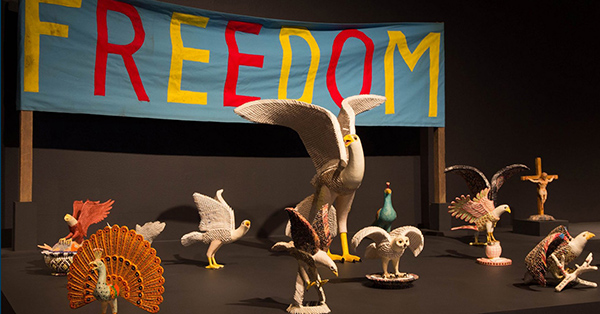
Beyond These Walls: Material Cultures of Jewish and Chinese Detainees – In-Person Event and Live on Zoom
To mark the common historical experiences shared by Jewish and Chinese people seeking to emigrate to the United States, the Center for Jewish History and the Museum of Chinese in America (MOCA) invite you to a special panel discussion on the unique materials created by Jewish and Chinese detainees in the U.S. and abroad and their experiences.
Join scholars Claire R. Thomas (Professor of Law and Director of the Asylum Clinic at New York Law School), Roslyn Bernstein (Professor Emerita, Baruch College, CUNY and Craig Newmark Graduate School of Journalism), and Ayelet Brinn(Philip D. Feltman Assistant Professor of Modern Jewish History, University of Hartford). The discussion will be moderated by Andrew Rebatta, curator of MOCA's 2017 special exhibition FOLD: Golden Venture Paper Sculptures.
A highlight of the event will be discussion of reminiscences from a Jewish detainee onboard the SS St. Louis, the ship that carried more than 900 Jewish refugees from Nazi Germany intending to escape anti-Semitic persecution, which was turned away by both the U.S. and Canada in 1939. Another highlight will be a child’s charm bracelet created in a concentration camp. Representatives from MOCA will bring items from their Golden Venture Paper Sculptures collection to be viewed during a dessert reception to follow the discussion.
This program is supported by a Digitizing Hidden Collections grant from the Council on Library and Information Resources (CLIR), a grant program made possible by funding from the Mellon Foundation, as well as well as by the New York State Council on the Arts with the support of the Office of the Governor and the New York State Legislature and by public funds from the New York City Department of Cultural Affairs in partnership with the City Council.
About the Speakers:
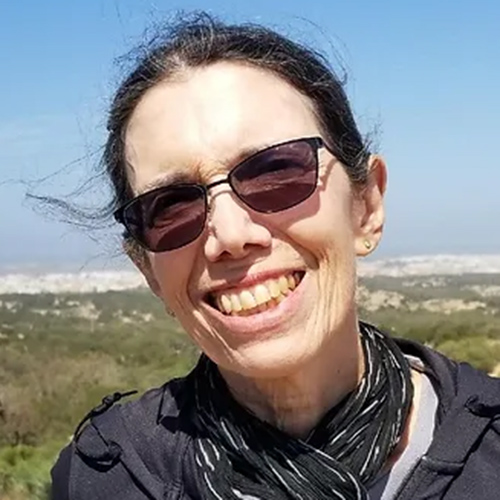 Roslyn Bernstein is the author of four books: Boardwalk Stories, a collection of 14 fictional tales set from 1950 to 1970; the co-author with the architect Shael Shapiro of Illegal Living: 80 Wooster Street and the Evolution of SoHo; Engaging Art: Essays and Interviews from Around the Globe, a collection of 60 of her online avant-garde art pieces; and most recently, a novel, The Girl Who Counted Numbers.
Roslyn Bernstein is the author of four books: Boardwalk Stories, a collection of 14 fictional tales set from 1950 to 1970; the co-author with the architect Shael Shapiro of Illegal Living: 80 Wooster Street and the Evolution of SoHo; Engaging Art: Essays and Interviews from Around the Globe, a collection of 60 of her online avant-garde art pieces; and most recently, a novel, The Girl Who Counted Numbers.
Since the 1980s, she has been reporting from around the globe for such print publications as the New York Times, Newsday, the Village Voice, New York Magazine, Parents, and the Columbia Journalism Review. She has also reported for various online publications including Medium, Tablet, Huffington Post, and Guernica, focusing primarily on cultural reporting and contemporary art, with in-depth interviews with artists, curators, and gallerists.
Currently Professor Emerita in the Department of Journalism and the Writing Professions at Baruch College of the City University of New York (CUNY), she taught journalism and creative writing classes from 1974-2016. A devoted teacher, she served as an advisor to Ticker, the college newspaper and established Dollars and $ense, the Baruch College business magazine. During her time at Baruch, she served as the director of the Journalism Program and was the Founding Director of the Sidney Harman Writer-in-Residence Program, a residency that has brought over 30 distinguished poets, playwrights, critics, and journalists to campus to teach intensive classes for gifted students. Prof. Bernstein is a recipient of the College’s Distinguished Awards for Teaching and Service.
Before coming to Baruch, she worked at Esquire and attended graduate school. She holds a BA from Brandeis University and a Masters and Ph.D in English Literature from NYU Graduate School of Arts and Sciences.
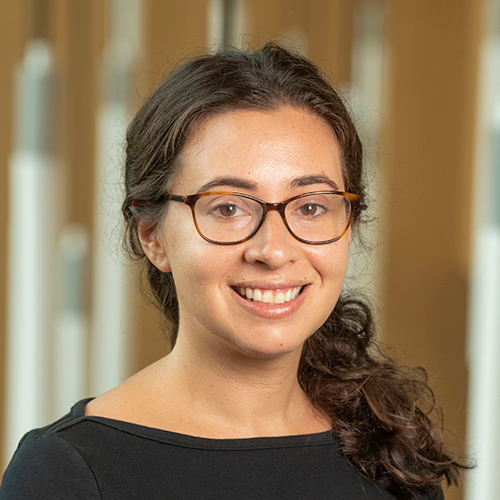 Ayelet Brinn is an Assistant Professor of Judaic Studies and History at the University of Hartford, where she holds the Philip D. Feltman Professorship in Modern Jewish History. After receiving her PhD in History from the University of Pennsylvania in 2019, she served as the Rabin-Shvidler Joint Postdoctoral Fellow at Fordham University and Columbia University, the Ivan and Nina Ross Family Fellow at the Katz Center for Advanced Judaic Studies, and a scholar in residence at the Hadassah-Brandeis Institute. Her first book, A Revolution in Type: Gender and the Making of the American Yiddish Press, will be published in November with New York University Press.
Ayelet Brinn is an Assistant Professor of Judaic Studies and History at the University of Hartford, where she holds the Philip D. Feltman Professorship in Modern Jewish History. After receiving her PhD in History from the University of Pennsylvania in 2019, she served as the Rabin-Shvidler Joint Postdoctoral Fellow at Fordham University and Columbia University, the Ivan and Nina Ross Family Fellow at the Katz Center for Advanced Judaic Studies, and a scholar in residence at the Hadassah-Brandeis Institute. Her first book, A Revolution in Type: Gender and the Making of the American Yiddish Press, will be published in November with New York University Press.
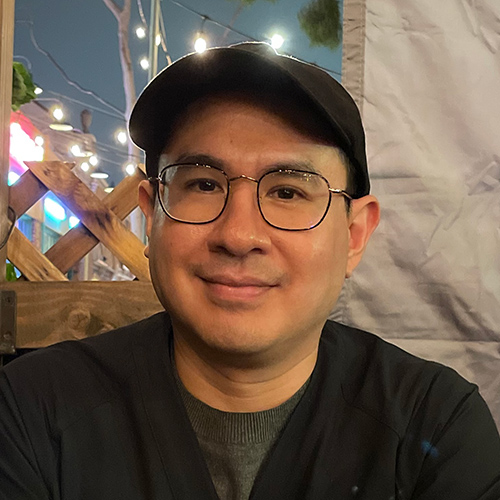 Andrew Rebatta is a curator and DJ who has organized exhibitions, performances, screenings and talks for museums and contemporary art spaces. A homegrown Queens resident, he spent some of his formative years throwing art shows and playing music in Chicago and DC before returning and working at the Museum of Chinese in America where he curated FOLD: Golden Venture Paper Sculptures in 2017. Lately, Andrew's research has been delving deeper into the diasporic relations that informed his curatorial practice and personal approach to interpreting the poetics of immigrant material culture.
Andrew Rebatta is a curator and DJ who has organized exhibitions, performances, screenings and talks for museums and contemporary art spaces. A homegrown Queens resident, he spent some of his formative years throwing art shows and playing music in Chicago and DC before returning and working at the Museum of Chinese in America where he curated FOLD: Golden Venture Paper Sculptures in 2017. Lately, Andrew's research has been delving deeper into the diasporic relations that informed his curatorial practice and personal approach to interpreting the poetics of immigrant material culture.
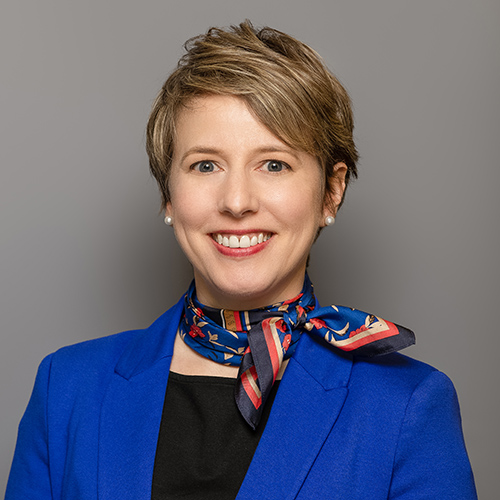 Claire R. Thomas is an attorney, advocate, and educator interested in migration, statelessness, and human rights. She graduated from the University of Chicago and studied at the Université de Paris X, Nanterre. She holds a graduate degree from NYU’s Center for Global Affairs and a law degree from New York Law School. She directs the Asylum Clinic at New York Law School, in which she teaches law students how to represent immigrants seeking asylum and other humanitarian immigration protections in the United States. As an Assistant Professor at NYLS, she also teaches the introductory immigration law course.She also teaches Refugee and Asylum Law at The New School in New York City.
Claire R. Thomas is an attorney, advocate, and educator interested in migration, statelessness, and human rights. She graduated from the University of Chicago and studied at the Université de Paris X, Nanterre. She holds a graduate degree from NYU’s Center for Global Affairs and a law degree from New York Law School. She directs the Asylum Clinic at New York Law School, in which she teaches law students how to represent immigrants seeking asylum and other humanitarian immigration protections in the United States. As an Assistant Professor at NYLS, she also teaches the introductory immigration law course.She also teaches Refugee and Asylum Law at The New School in New York City.
Claire was a Fulbright Garcia-Robles U.S. Scholar in Law to Mexico for the 2020-2021 academic year and was a Visiting Professor at ITESO in Guadalajara, Jalisco, Mexico. She researches statelessness, human rights protections and durable solutions for people in migration in Mexico, focusing on persons who are not from the Americas.
Previously, Claire was a contract attorney with CUNY Citizenship Now!, where she assisted immigrants applying for U.S. citizenship. She served as a consultant with The Door's Legal Services Center, where she supervised staff members representing immigrant youth in removal proceedings. She worked as an attorney with the Safe Passage Project, in which she mentored pro bono attorneys representing immigrant children; supervised law students, fellows, and staff; coordinated a monthly Juvenile Docket at the New York Immigration Court; planned, organized and conducted trainings at the state and national level; and engaged in advocacy efforts with other non-profit organizations as well as city, state and federal agencies. From when she was a 1L law student until 2014, Claire advocated for the rights of African, Caribbean, and Middle Eastern immigrants at African Services Committee, a Harlem-based non-profit assisting persons living with HIV/AIDS. She represented survivors of gender-based violence, including minors, in immigration proceedings and directed “Projet Aimée,” a women’s empowerment group for survivors of gender-based violence.
Claire is a member of the Immigration & Nationality Law Committee of the NYC Bar Association, the American Immigration Lawyers Association, and the Law and Society Association.
Ticket Info:
In person: $10 general; $5 seniors, students, CJH/MOCA members
Zoom: Pay what you wish
Register here
Presented by:

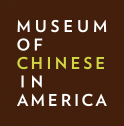
panel discussion
virtual tour
Houses of Life: Synagogues and Cemeteries in Italy
We invite you to a virtual tour of an exhibit currently on display at MEIS – the National Museum of Italian Judaism and the Shoah.
Curated by Andrea Morpurgo and Amedeo Spagnoletto, this exhibit offers an innovative in-depth approach focusing on the architecture, rituals, and the roles played by both synagogues and Jewish cemeteries in the Jewish community. Visitors will explore the specifically Italian nature of these two places, while understanding the over two thousand years of history of the country’s Jewish community.
The history of cities and of human beings intertwine in the exhibit, through their original architecture, artifacts that are passed down in and between families, and are on display. Among these are prestigious loans such as the Aron ha-Qodesh, the holy Ark, of the Vercelli Jewish Community and many precious documents from both State Archives and Italian Jewish Communities.
About the Curators
Andrea Morpurgo is an architect and architectural historian. He graduated from the Istituto Universitario di Architettura di Venezia, then moved to the Netherlands where he earned a Master of Excellence in Architecture at the Berlage Institute in Rotterdam and later a PhD in History of Architecture and Urban Planning at the Polytechnic of Turin. He is author of the book “The Jewish Cemetery in Italy: History and architecture of an identity space” (Quodlibet), professor of the “Synagogal Architecture” course of the three-year University Diploma in Jewish Studies promoted by the Union of Italian Jewish Communities, and member of the board of the “Foundation for Jewish Cultural Heritage in Italy”.
Amedeo Spagnoletto is the Director of the National Museum of Italian Judaism and the Shoah. He is also a sofer, a Jewish ritual scribe. From 2017 until 2019 he was Chief Rabbi of the Jewish Community of Florence. From 2011 until 2019 he was teacher of Jewish Law Principles, Exegesis and Bible, in the Jewish Studies Degree of the Union of Italian Jewish Communities.
Ticket Info: Free; RSVP required
Presented by:

virtual tour
book talk
Living the Parsha with Mati Seri - Live on Zoom
Join us for a discussion of actor, singer, presenter and author Mati Seri’s new book 52 Weeks of Devotion on the weekly Torah portion. The presentation will be accompanied by musical interludes by the singer.
Ticket Info: Free; RSVP required
Presented by:

book talk
lecture
Freedom, Wholeness, and Social Responsibility in Modern Yiddish Culture - Live on Zoom
Kenneth B. Moss | Delivered in Yiddish.
“And I, as one who writes […] according to his spiritual situation when he picks up his pen – I take from all the worlds together.” Thus wrote Y. L. Peretz to Sholem Aleichem in 1888, in what might be called Yiddish literature’s declaration of independence – the idea that modern Yiddish culture could meet all the intellectual and spiritual needs of the capacious modern self if it was given full freedom to develop on its own terms, free of confining expectations. Yet as Peretz pursued this vision of cultural freedom, he also wrestled ceaselessly with the felt obligations to the Jewish folk and to the larger, broken social world that had brought him to Yiddish in the first place.
This lecture traces how four generations of Yiddish writers and cultural creators, from Peretz to the “1905 generation” of Yiddishist activists in Vilna and Kiev, to the interwar generation from Anna Margolin to Kadya Molodowski and Itsik Manger, to Arn Glants-Leyeles and Avrom Sutzkever before and after the Holocaust, negotiated this defining tension as it grew ever stronger – as the vision of a Yiddish secular culture that could offer wholeness and creative freedom to the Jewish individual confronted burning questions of Jewish national self-help, imperatives of social transformation, the intimate question of how to transmit this culture to children, and ultimately the Holocaust’s overwhelming imperative of mourning.
About the Speaker
Kenneth B. Moss is the Harriet and Ulrich E. Meyer Professor of Jewish History at the University of Chicago. He is the author of An Unchosen People: Jewish Political Reckoning in Interwar Poland (Harvard University Press, 2021) and Jewish Renaissance in the Russian Revolution (Harvard University Press, 2009). With Ben Nathans and Taro Tsurumi, he coedited From Europe’s East to the Middle East (UPenn, 2021) and with Israel Bartal, he is co-editing volume 7 of the Posen Library of Jewish Culture and Civilization: National Renaissance and International Horizons, 1880–1918 (Yale University Press, forthcoming).From 2014 to 2020, he coedited Jewish Social Studies.
Ticket Info: Free; register at yivo.org/YCLS2023-Moss
Presented by:

lecture
lecture

Family History Today: Novel NYC Records – Live on Zoom
While New York's strict vital records laws can stymie genealogy researchers, there are several more obscure record types you can use to find your ancestors in the city. In this lecture, Alec Ferretti, professional genealogist at the Wells Fargo Family & Business History Center, will provide an overview of some NYC historical record sets that are often overlooked by genealogists, such as licensing records, voter registrations, and education records.
Ticket Info: Pay what you wish; register here for a Zoom link
Presented by:

lecture
panel discussion
Max Weinreich and the Meaning of Yiddish - Live on Zoom
Max Weinreich spent the entirety of his adult life building YIVO and the field of Yiddish Studies. A 'convert' to the cause of Yiddishism in his adolescence, he pursued a doctorate in German philology in Weimar Germany with the explicit goal of returning to Eastern Europe to contribute to the project of building a modern, secular Yiddish culture. His study visits to Yale University and Vienna in the early 1930s proved transformational in broadening and revising his understanding of the role of the social sciences in Jewish life as a tool for strengthening Jews' psychological and material resources. The destruction of the traditional Yiddish heartland in Eastern Europe and his experiences leading YIVO in post-WWII New York City added yet another dimension to Weinreich's conception of the importance of both Yiddish and Jewish Studies for the future of American and world Jewry. Would Max Weinreich recognize Yiddish studies today?
Moderated by Kalman Weiser and featuring Naomi Seidman, Kenneth Moss, and Jeffrey Shandler, this panel will examine Weinreich's evolving understanding of the meaning of Yidishe visnshaft (Yiddish studies) and the role of Yiddish in Jewish life throughout his career.
Ticket Info: Free; register at yivo.org/Max-Weinreich
Presented by:

panel discussion
lecture
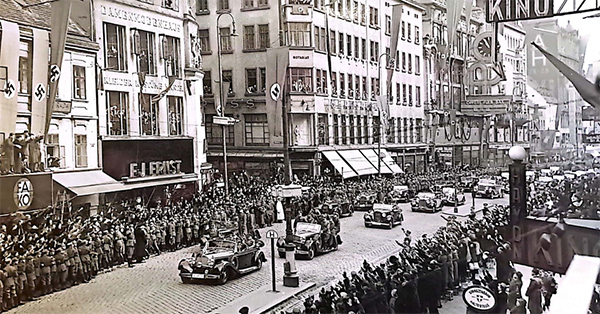
The Second Robbery: Aryanization and Restitution of Jewish Property in Austria
Annexed Austria led the way in the violent and systematic plunder of property owned by Jews. Adolf Eichmann developed a method of administrative pillage of Jewish property, later to be implemented in other Nazi-occupied countries. After the war, Karl Renner, the first president of the reconstituted state, set the tone when he explained that compensation of "every little Jewish merchant or peddler for his loss was inconceivable." Minister of Finance, Reinhard Kamitz, added that any kind of restitution was out of the question, because Austria did not cause any damage. Survivors who reclaimed their property encountered restitution laws that discriminated against Jews and administrators who favored former perpetrators over victims.
Rachel Blumenthal of the Research Institute of Contemporary Jewry at the Hebrew University and LBI Gerald Westheimer Career Development fellow will discuss her research into the Austrian model of postwar restitution with Elizabeth Anthony, Director of Visiting Scholar Programs at the United States Holocaust Memorial Museum in our program.
If you would like to attend this program virtually, please select the "Virtual Admission" option when reserving tickets on Eventbrite.
About the Speakers
Rachel Blumenthal is a fellow at the Institute of Contemporary Jewry in the Hebrew University of Jerusalem. She was awarded a Ph.D. degree by the Hebrew University for her thesis on "The Claims Conference, the State of Israel and the Diaspora: 1951-1964." She is also a lawyer and has a second degree (magna cum laude) from Tel Aviv University. In August 2021, Lexington Books published her book, Right to Reparations: The Claims Conference and Holocaust Survivors, 1951-1964. Her second book is a collection of articles that she edited together with Daniel Herskowitz and Kerstin Mayerhofer entitled Constructing and Experiencing Jewish Identity and published by Brill in October 2022. It includes an article by Rachel on Holocaust survivors and Jewish identity in postwar Austria. She is now researching the topic of Austrian restitution and compensation for former Jewish citizens and residents. In 2022, the Leo Baeck Institute in New York awarded her the George Westheimer fellowship for her project on the Austrian model of restorative justice.
Elizabeth Anthony is the Director of Visiting Scholar Programs at the United States Holocaust Memorial Museum’s Jack, Joseph and Morton Mandel Center for Advanced Holocaust Studies. Her book, The Compromise of Return: Viennese Jews after the Holocaust, was published by Wayne State University Press in 2021 and was a commended finalist for the Wiener Holocaust Library’s Ernst Fraenkel Book Prize. Anthony was co-editor of and a contributor to Freilegungen: Spiegelungen der NS-Verfolgung und ihrer Konsequenzen, Jahrbuch des International Tracing Service, the 2015 Yearbook of the International Tracing Service. She also has published chapters in Lessons and Legacies Volume XII (2017); The Future of Holocaust Memorialization: Confronting Racism, Antisemitism, and Homophobia through Memory Work (2015); and the Nürnberger Institut für NS-Forschung und jüdische Geschichte des 20. Jahrhunderts Jahrbuch 2010. Anthony received a PhD in history at Clark University in 2016 and also holds a Master of Social Work from the University of Maryland. Among a number of fellowship awards, Anthony was the recipient of a Fulbright research grant (Austria) and a Mandel Center research fellowship.
Ticket Info: Free; register at lbi.org/events/aryanization-and-restitution-of-jewish-property-in-austria/
Presented by:

lecture
concert
Concert Premiere of A Dying Person (A Goyses), A New Chamber Opera by Evan Rapport and Daniel London
A Dying Person (A Goyses) is inspired by Sh. An-sky, the ethnographer and author of The Dybbuk, who prepared a questionnaire of 2,087 detailed questions in the hopes of compiling a comprehensive record of Jewish life in Eastern Europe; however, the questions remained unanswered due to the onset of World War I. The opera engages the continuous—and legitimate—anxiety regarding the loss of Jewish civilization, even before the Holocaust, and ethnography, interviewing, testimony, and oral history as ways of addressing this fear. The libretto also contains elements of interviews done by the composer with his wife’s grandfather, a musician from a family of klezmers who was born in the Pale of Settlement in 1916 and lived there during his childhood.
The plot of the opera is simple: a middle-aged researcher interviews an older woman on her deathbed. In traditional Ashkenazic Jewish culture the person on their deathbed, between two worlds, has a distinct status (a goyses) and A Dying Person (A Goyses) wrestles with the idea that Jewish culture may itself be in a perpetual sort of goyses state, always seemingly on the verge of loss and annihilation, but never crossing over to the other side.
The ensemble for A Dying Person (A Goyses) is seven players, the instrumentation reminiscent of dance band and klezmer configurations at the beginning of the twentieth century. Together with the three singers, the group satisfies the minimum number of ten adults required for Jewish communal prayer.
Join us for a concert premiere of A Dying Person (A Goyses), a new chamber opera by Evan Rapport and Daniel London.
This program is supported, in part, by public funds from the New York City Department of Cultural Affairs, in partnership with the City Council, and in part with public funds from the New York State Council on the Arts, a state agency.
About the Artists
Evan Rapport is Associate Professor of Ethnomusicology at The New School, saxophonist, and composer. He is the author of Greeted with Smiles: Bukharian Jewish Music and Musicians in New York (Oxford University Press, 2014) and Damaged: Musicality and Race in Early American Punk(University Press of Mississippi, 2020). He is currently working on a book about soprano saxophonist and composer Steve Lacy, and collaborating with Daniel London on two more chamber operas about Jewish life and death, with A Dying Person (A Goyses) as the first of the trilogy.
Daniel London is an actor and screenwriter from Pittsburgh, now living in New Jersey. His acting credits include the films Minority Report, Old Joy, and Synecdoche, New York, and he has appeared in productions with the Atlantic Theater Company, Roundabout Theatre Company, and Vineyard Theater. He is currently developing his screenplay Missing in Your Area with the production company 2AM. This is his first libretto.
Ticket Info: Free; register at yivo.org/A-Goyses
Presented by:

concert
multimedia presentation
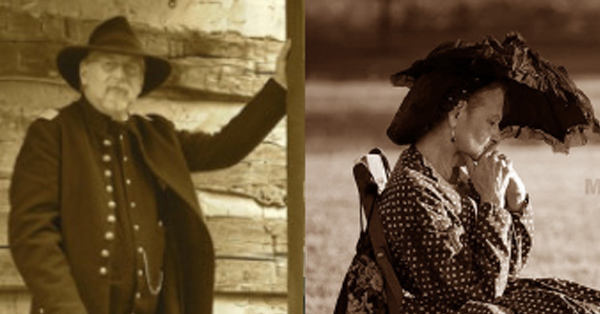
Images of the Past: Jews and the American Civil War – In-Person Event and Live on Zoom
Join us to experience a captivating program about the Civil War from a Jewish perspective that is designed to educate and entertain. Bruce Form and Mira Form are Civil War historians, re-enactors and living historians. Their many years of researching Jewish Civil War veterans and the Jewish community during the Civil War led them to discover two Philadelphians involved in that war: Myer J. Asch, Captain of the 1st New Jersey Cavalry, and Miss Rebecca Moss, Secretary of the Ladies Hebrew Association for the Relief of Sick and Wounded Soldiers. The Forms, who dress in period attire, bring their characters to life using projected images of people and documents from the time of the Civil War, as well as a living history display of original artifacts and reproductions of the period.
About the Speakers
Bruce and Mira Form have spoken on Jews in the Civil War to numerous Jewish organizations throughout the country, including the Gomez Mill House Foundation, Hadassah groups, Women’s American ORT, the Jewish War Veterans, a variety of congregations, as well as in public and private schools. They have also been well received by many Civil War groups throughout New Jersey, New York, and Pennsylvania.
Bruce received his Bachelor of Arts degree in History from Athens State University in Alabama and a Master of Arts degree in Behavioral Science from Kean University in New Jersey. His article, "Captain Myer Asch, 1st New Jersey Cavalry and the Quest for His Grave," appeared in the Summer 2022 issue of Dorot, the Journal of the Jewish Genealogical Society. Mira graduated cum laude from New York University with a Bachelor of Arts degree in Russian Studies and is a member of Phi Beta Kappa. Both Bruce and Mira are charter members of Officers for the Union and Ladies for the Union, an elite living history organization, based in Gettysburg, PA, where they now reside.
Ticket Info:
In person: $5 general admission at the door; free for JGS members; RSVP required for non-JGS members at rsvp@cjh.org
Zoom: Non-JGS members can register and pay $5 here. You will receive a Zoom link before the meeting date.
Presented by:

multimedia presentation
book talk
Exclusive Authors Series with Anne Albert
Join us for another episode of Exclusive Authors Series where Anne Albert discusses her book “Jewish Politics in Spinoza’s Amsterdam.”
About the Book
This book untangles a web of ideas about politics, religion, exile, and community that emerged at a key moment in Jewish history and left a lasting mark on Jewish ideas. In the shadow of their former member Baruch Spinoza’s notoriety, and amid the aftermath of the Sabbatian messianic movement, the Spanish and Portuguese Jews of seventeenth-century Amsterdam underwent a conceptual shift that led them to treat their self-governed diaspora community as a commonwealth. Preoccupied by the question of why and how Jews should rule themselves in the absence of a biblical or messianic sovereign state or king, they forged a creative synthesis of insights from early modern Christian politics and Jewish law and traditions to assess and argue over their formidable communal government. In so doing they shaped a proud new theopolitical self-understanding of their community as analogous to a Christian state.
About the Author
Anne Oravetz Albert is the Klatt Family Director for Public Programs at the Herbert D. Katz Center for Advanced Judaic Studies at the University of Pennsylvania.
Click here for more about the book.
Ticket Info: Free; RSVP required
Presented by:

book talk
film screening
Four Winters - In-person
"All I owned was my camera, leopard coat, rifle and a grenade in case I’m captured...the pillow was the rifle, the walls were the trees and the sky was the roof,” says Faye Schulman, one of over 25,000 Jewish Partisans, who organized and fought back against the better-trained and better-equipped Nazis and their collaborators from deep within the forests of WWII’s Eastern Europe, Ukraine and Belarus. Against extraordinary odds, these men and women, many barely in their teens, escaped Nazi slaughter – transforming from young innocents raised in closely knit families to courageous resistance fighters. They banded together in partisan brigades; engaging in treacherous acts of sabotage, blowing up trains, burning electric stations, and attacking armed enemy headquarters.
Through first-person interviews, Four Wintersuncovers secrets held for lifetimes, revealing a narrative of heroism, loss, enduring hope, grit, courage and deep humanity. Join YIVO for a screening of this award-winning documentary followed by a Q&A with the Filmmaker Julia Mintz: Director/Writer/Producer of Four Winters.
Four Winters was awarded a grant from Steven Spielberg’s Jewish Story Partners fund; received the “Human Rights Award” at Hamptons Doc Fest; and was named “Best Documentary” at the Toronto Jewish Film Festival; and the “”Audience Award” at Australia's International Jewish Film Festival.
About the Speaker
Julia Mintz is a writer, producer and director whose work focuses on narratives of bravery and resistance against unimaginable odds. She has been on the producing team for films that have been shortlisted for the Academy Awards, have premiered at Cannes, Sundance and TriBeCa, and won Emmy, Peabody and festival awards. Her films can be seen on HBO, PBS, American Masters, NETFLIX and Amazon. Recent projects include Mr. SOUL! which premiered at TriBeCa and was short-listed for an Academy Award®. She co-produced Joe Papp in Five Acts and post-produced Get Me Roger Stone, produced California State of Mind, and post-produced Soundtrack for a Revolution Nanking, Love Free or Die: Story of Bishop Gene Robinson. Additional projects include Muscle Shoals, Bing Crosby Rediscovered; Life and Times of Frida Kahlo, and Cyndi Lauper: Still So Unusual. Julia has also produced programming for Discovery, NASA, National Geographic, NHK and SONY.
Ticket Info: $10, YIVO members: $8; register at yivo.org/Four-Winters
Presented by:

film screening
book talk
Franz Kafka: The Diaries - Live on Zoom
Dating from 1909 to 1923, Franz Kafka's handwritten diaries contain various kinds of writing: accounts of daily events, reflections, observations, literary sketches, drafts of letters, accounts of dreams, as well as finished stories. A new translation by Ross Benjamin titled Franz Kafka: The Diaries makes available for the first time in English a comprehensive reconstruction of the diary entries and provides substantial new content, including details, names, literary works, and passages of a sexual nature that were omitted from previous publications. Join YIVO for a conversation discussing this new publication with translator Benjamin in conversation with YIVO's Executive Director Jonathan Brent.
About the Speakers
Ross Benjamin’s translations include Friedrich Hölderlin’s Hyperion, Joseph Roth’s Job, and Daniel Kehlmann’s You Should Have Left and Tyll. He was awarded the 2010 Helen and Kurt Wolff Translator’s Prize for his rendering of Michael Maar’s Speak, Nabokov, and he received a Guggenheim fellowship for his work on Franz Kafka’s diaries.
Jonathan Brent is the Executive Director of the YIVO Institute for Jewish Research in New York City. From 1991 to 2009 he was Editorial Director and Associate Director of Yale Press. He is the founder of the world acclaimed Annals of Communism series, which he established at Yale Press in 1991. Brent is the co-author of Stalin’s Last Crime: The Plot Against the Jewish Doctors, 1948-1953(Harper-Collins, 2003) and Inside the Stalin Archives(Atlas Books, 2008). He is now working on a biography of the Soviet-Jewish writer Isaac Babel. Brent teaches history and literature at Bard College.
Ticket Info: Free; register at yivo.org/Franz-Kafka
Presented by:

book talk
lecture
Yiddish to the Core: Wedding Music and Jewish Identity in Postwar New York City - Live on Zoom
If you attended a typical American Jewish wedding in the 1950s, you might have noticed some departures from tradition, such as a photographer buzzing around the rabbi, a floral wedding canopy, or “kosher style” catering. The modern formula varied from one wedding to another, but one thing was certain: if it was a Jewish wedding, you danced a hora. Even as Jews became increasingly Americanized and abandoned older practices, they held on to Jewish dances and dance music as an easy and accessible way of articulating their Jewish identity at a public event, in front of their family and friends. Jewish music and dance underwent significant changes during the postwar period, absorbing strong influences from American popular music and Israeli folk songs. Nonetheless, dances like the hora, freylekh, and sher remained “Yiddish to the core.” For many American Jews, these dances became a symbol of cultural continuity, and one of the important elements that defined their wedding as Jewish.
In this talk, Uri Schreter will explore the evolution of Jewish wedding music in the early postwar period across different sectors of New York’s Jewish community. We will discuss the relationship between diverse musical genres such as klezmer, Israeli folk song, swing, and Latin music, and learn how the choice of musical repertoire intersected with factors such as social class, religiosity, and political affiliation.
About the Speaker
Uri Schreter is an interdisciplinary musicologist, composer, keyboardist, and film-editor. Born in Tel Aviv, he is currently pursuing his PhD in historical musicology at Harvard University. Prior to Harvard, he studied at Tel Aviv University, where he earned a BA in composition and musicology, and an MA in modern European history. His current research project explores the politics of Jewish music during the early postwar period. His scholarship has been supported by the American Musicological Society, the Memorial Foundation for Jewish Culture, and the Feinstein Center for American Jewish History, and he is the recipient of the 2022–23 Ruth and Joseph Kremen Memorial Fellowship in East European Arts, Music, and Theater at the YIVO Institute for Jewish Research. Outside of academia, Uri is a composer, pianist, and film editor, who has collaborated with numerous artists in Yiddish culture and beyond.
Ticket Info: Free; Registration required
Presented by:

lecture
lecture
Yiddish Publishing after the Holocaust: I.L. Peretz and the Legacy of Polish Jewry - Live on Zoom
Yiddish publishers in the postwar period sought to collect, codify, and (re)produce Yiddish literature as a preservative measure against cultural erasure. This was in part a reaction to the aftermath of the Holocaust and a fear that the legacy of this culture could soon be lost forever. Many major resulting publications bear the marks of these anxieties most prominently in their form, which was characteristically accumulative: large scale book series, anthologies, lexica, encyclopedias, and reprinted editions of the collected or complete works of Yiddish’s classic writers, Mendele, Sholem Aleichem, and I.L. Peretz. As these new volumes traveled around the world, from Buenos Aires to New York, Montreal to Warsaw, and many places in between, their creation and circulation highlights a changing transnational literary network that had recently flourished during the interwar years. Publishers responded to a network in flux by flooding a literary market with new volumes.
In this lecture, Rachelle Grossman will give an overview of global Yiddish after the Holocaust by focusing on competing publications made in honor of two literary jubilees of I.L. Peretz, “the father of modern Jewish literature”: his 30th yahrzeit and his 100th birthday. These publishing efforts were not only a means to create new Yiddish books, but they were also a form of public debate over the meaning of Peretz the figure, his work, and the place of Yiddish in postwar Jewish life.
About the Speaker
Rachelle Grossman is a specialist in Yiddish print culture, and she is completing a doctorate in Comparative Literature at Harvard University. Her article on Yiddish publishing in postwar Poland was recently awarded the Pantzer New Scholar Award by the Bibliographical Society of America. Her work on Yiddish in Mexico was awarded the 2020 UC Irvine and is forthcoming in Comparative Literature Studies. Rachelle’s research has been supported by the Polish Studies Association, the Latin American Jewish Studies Association, and the American Academy for Jewish Research. She was the recipient of the Aleksander and Alicja Hertz Memorial Fellowship and the Samuel and Flora Weiss Research Fellowship in Polish Jewish Studies at the YIVO Institute for Jewish Research.
Ticket Info: Free; Registration required
Presented by:

lecture
lecture
Spanish Jews in Colonial Florida - In-person Event & Livestreamed on YouTube
Larry Kanter Lecture Series in Memory of Jack Coleman
Rabbi Merrill Shapiro, Founder and Chairman of the St. Augustine Jewish Historical Society, looks at the presence of people of Jewish descent living, during the 16th century in what we know today as Florida, 89 years before landing in New Amsterdam. Pulling from the research of Dr. Stanley Hordes, formerly the State Historian of New Mexico and researcher at the University of Mexico’s Latin American Institute, as well as Roger L. Martinez-Dávila, Associate Professor of History & Director of Graduate Studies at the University of Colorado, Colorado Springs, this talk will examine genealogy records, evidence that helps to identify the south’s earliest Jews of descent, conversos, and crypto-Jews.
This program is sponsored by Larry Kanter in memory of Jack Coleman
Ticket Info: $10 in person: In person ticket registration
Free livestream via YouTube: Online livestream registration
Presented by:

lecture
panel discussion
Profs. Sam Shonkoff, Naomi Seidman, David Biale “Old Boys” at the New Lehrhaus: The Rosenzweig-Buber-Scholem Debate Transported to 2023 - Live on Zoom
What if Franz Rosenzweig, Martin Buber and Gershom Scholem were transported to 2023 Berkeley and asked to teach at New Lehrhaus? How would the passing of over a century since they established and taught at Lehrhaus Judaica in Frankfurt in 1920 change their debates about God and the Commandments, Zionism and Messianism, and Adult Jewish Learning?
Three distinguished New Lehrhaus teachers—Sam Shonkoff, Naomi Seidman, and David Biale—will enact an imaginary debate followed by schmoozing and refreshments a la 1920 Frankfurt.
Ticket Info: $12; Register here
Presented by:

panel discussion
lecture
Ukrainian-Jewish Relations in the Context of Antisemitism in Eastern Europe in the Interwar Period of the 20th Century - Live on Zoom
By the end of the First World War, antisemitism became a moral and political marker of social consciousness as well as a behavior of many right-wing politicians as anti-Jewish discourse was actively imposed in many post-imperial states in Eastern and Central Europe. At the same time, the newly created Ukrainian states (both the Ukrainian People’s Republic (UNR) and the Western Ukrainian People’s Republic (ZUNR)) attempted to provide a positive policy toward the Jews and proposed a new anti-imperial alternative to the harsh legacy of imperial and post-imperial, great-power chauvinist policy. After the UNR and ZUNR leadership ceased to control the territory and effectively influence inter-ethnic relations within the borders of their state, relations between Ukrainians and Jews worsened, and were deformed under the impact of the conditions and policies of other states, in which these two peoples existed.
In this presentation, Andrii Bolianovskyi will elucidate the key figures and main aspects of Ukrainian-Jewish relations, as well as the intervention of "transnational players" in a broad global geopolitical context. Considerable attention will be paid to clarifying the positive experience of relations and highlighting the history of attempts to establish mechanisms of interaction between Ukrainian and Jewish political, public and other organizations and social groups in Western Ukraine. Also considered is the impact of the politics of the right-wing political parties of the Second Polish Republic, which inspired state antisemitism, as well as of the politics of Bolshevik Russia as a state with latent antisemitism.
About the Speaker
Dr. Andrii Bolianovskyi completed his doctorate in History at Ivan Franko National University of Lviv (Ukraine) in 2013. He is currently Senior Fellow at the Ivan Krypiakevych Institute of Ukrainian Studies, National Academy of Sciences of Ukraine. His work specializes in Ukraine (especially its western regions), Poland, Germany and Russia in the first half of the 20th century and his research interests include Holocaust studies, nationalist movements, mass violence and genocide, inter-ethnic conflicts, and war crimes. While in residence at the Jack, Joseph and Morton Mandel Center for Advanced Holocaust Studies at the US Holocaust Memorial Museum (Washington), as well as during his fellowship at Yad Vashem International Institute for Holocaust Research (Jerusalem), Dr. Bolianovskyi conducted research on his project and presented it under the title “Ukrainian-Jewish relations in the context of Shoah in Ukraine, July, 1941–July, 1944.” He is recipient of the 2022-2023 Professor Bernard Choseed Memorial Fellowship and the Natalie and Mendel Racolin Memorial Fellowship in East European Jewish Studies at the YIVO Institute for Jewish Research.
Ticket Info: Free; Registration required
Presented by:

lecture
film screening
The Last Laugh - In-person Event
Are we allowed to make jokes about the Holocaust? In this outrageously funny and thought-provoking film, filmmaker Ferne Pearlstein puts the question about comedy's ultimate taboo to legends including Mel Brooks, Carl Reiner, Sarah Silverman, Gilbert Gottfried, Harry Shearer, Jeff Ross, Judy Gold, Susie Essman, Larry Charles, and other critical thinkers, as well as Holocaust survivors themselves. Through these interviews and clips from our favorite standup comedy, TV shows, and movies, The Last Laugh offers fresh insights into the Holocaust, our own psyches, and what else—9/11, AIDS, racism— is or isn’t off-limits in a society that prizes freedom of speech. In the process, the documentary also disproves the idea that there is nothing left to say about the Holocaust and opens a fresh avenue for approaching this epochal tragedy. Star-studded, provocative, and thoroughly entertaining, The Last Laugh dares to ask uncomfortable questions about just how free speech can really be, with unexpected and hilarious results that will leave you both laughing and appreciating the importance of humor even in the face of events that make you want to cry.
Join YIVO for a screening of this film followed by a Q&A with director Ferne Pearlstein and special guest Alan Zweibel.
About the Speakers
Ferne Pearlstein is a quadruple-threat: Director, Cinematographer, Producer, Editor. Ferne is a graduate of Stanford’s MA program in documentary film, a distinguished member of the Academy of Motion Picture Arts and Sciences, and an inductee of the Brooklyn Jewish Hall of Fame. She has had four features premiere at the Tribeca Film Festival, most recently the critically acclaimed The Last Laugh, which screened at over 100 film festivals and was released theatrically in 25 cities. Ferne is presently in pre-production on her latest film, A Fine Line about comedy and race, which she is co-directing with Jon-Sesrie Goff.
An original SNL writer, Alan Zweibel has won 5 Emmy Awards for his work in television which also includes “It's Garry Shandling's Show” (which he co-created) and “Curb Your Enthusiasm.” For the Broadway stage, he collaborated with Billy Crystal on the Tony Award-winning show “700 Sundays,” and Martin Short's hit “Fame Becomes Me.” Alan is the author of eleven books, including Bunny Bunny - Gilda Radner: A Sort of Love Story, the Thurber Prize-winning novel The Other Shulman and, most recently, a memoir titled Laugh Lines - My Life Helping Funny People Be Funnier. Because of the diversity of his body of work, the Writers Guild of America East has honored Alan with a Lifetime Achievement award. Alan and his wife Robin have three children and five grandchildren.
Ticket Info: $10, YIVO members: $8
Presented by:

film screening
lecture
Poetics of Arrival or Return?: Laying the Path toward Industrial Utopia in Peretz Markish’s, 'Der fertsikyeriker man' - Live on Zoom
By the time his pogrom poema Di kupe (The Mound) was first published in Warsaw in 1921, Peretz Markish had already begun work on his self-proclaimed magnum opus Der fertsikyeriker man (The Forty-Year-Old Man; Tel Aviv, 1978), an unrealized contribution to the corpus of Comintern art and literature that appeared in the Soviet Union and throughout the world in the 1920s and 30s.
This talk examines the factors that led Markish to pivot so forcefully from his early abstract expressionism to increasingly ideological writing and demonstrates how this shift is revealed through his verse. This rereading of Di kupe presents the poema as a literary monument to destruction as read through the framework established by Svetlana Boym. In this regard, Di kupeserves as a point of departure for Der fertsikyeriker man, which becomes another literary monument that, through its odic genre form and prophetic mode, ritualizes the pursuit of industrial workers’ utopia in an abstract yet inconspicuously Soviet landscape. He adopts the prophetic mode to substantiate an ideal of proletarian messianism that drives his poetic persona to seek an escape from the world of profane chaos and violence to an industrialized sublime. As an Eastern European Yiddish poet, Markish was born into a nation without a land but a fixation on the Book and the Temple; his book Der fertsikyeriker man envisions not the restoration of the Temple in Jerusalem, but the construction of the factory as the fulfillment of this different, proletarian messianism. By presenting his vision as prophecy, Markish indicates that the industrial utopian project remains an unrealized work in progress—a common goal to continue building toward.
About the Speaker
Roy Ginsberg is a PhD candidate in the Department of Slavic Languages and Literatures at Harvard University. His research interests revolve around Russian and Yiddish modernisms and the role of the arts and literature in creating and redefining ideological identities over the course of the 20th century. He is currently working on his dissertation project “Building the Ratn-Farband: Monumentalizing the Soviet Utopian Project through Yiddish Art and Literature.” He is the recipient of the Vladimir and Pearl Heifetz Memorial Fellowship and the Vivian Lefsky Hort Memorial Fellowship in Jewish Literature at the YIVO Institute for Jewish Research for 2022-2023.
Ticket Info: Free; register at yivo.org/Poetics-of-Arrival-or-Return
Presented by:

lecture
lecture
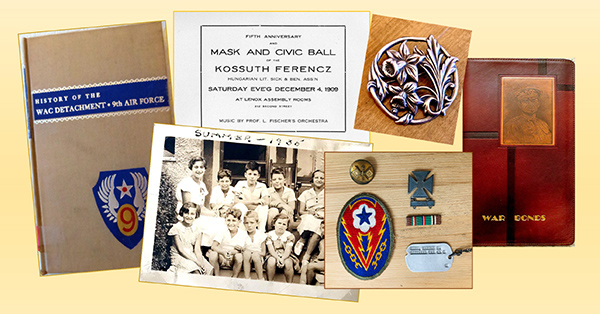
Family History Today: Planning a Future for your Family’s Past – Live on Zoom
Your family photos, stories, documents, and heirlooms are important windows into your family’s past, but there’s no guarantee that they will outlive you. Marian B. Wood, experienced speaker, blogger, and author on genealogical methods, will teach you how to organize and store your genealogical materials, curate your collection, write a "genealogical will," and share your family history. Act today to ensure that your family’s legacy will be protected for future generations.
All registrants will be entered into a raffle to receive an inscribed copy of Ms. Wood’s book, Planning a Future for your Family’s Past. The winner will be announced during this program and must be present to receive their prize.
Ticket Info: Pay what you wish. Register at /tickets/family-history-today-2023-05-23
Presented by:

lecture
conversation
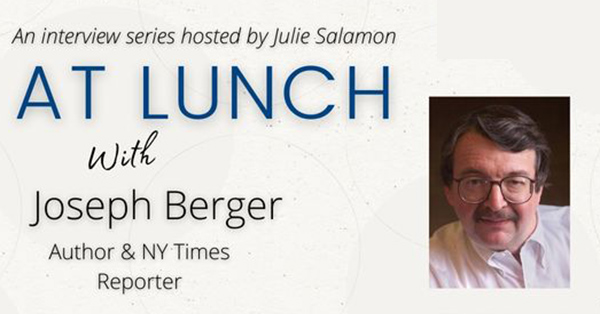
At Lunch with Joseph Berger – Live on Zoom
Julie Salamon (Wall Street Journal & NY Times) sits down with New York Times reporter and author Joseph Berger. Joseph was a New York Times reporter, columnist, and editor for thirty years. He is the author of four books: Displaced Persons: Growing Up American After the Holocaust, which was a New York Times Notable Book; The World in a City: Traveling the Globe Through the Neighborhoods of the New, New York; and The Young Scientists: America’s Future and the Winning of the Westinghouse. His biography of Elie Wiesel is scheduled for publication in February 2023.
Ticket Info: Free; register at ajhs.org/events/at-lunch-with-joseph-berger/ for a Zoom link
Presented by:

conversation
film screening
Babylon: Ghetto, Renaissance, and Modern Oblivion - In-person Event
Babylon: Ghetto, Renaissance, and Modern Oblivion, the award-winning film, considers the resonance of Psalm 137 (By the Waters of Babylon) through the music of two ghettoized peoples – Italian Jews of Mantua during the period of the Counter-Reformation, and African Americans before, during, and after the Harlem Renaissance.
A 29-minute voyage through four centuries, Babylon confronts vital questions about minority musicians and their foundational roles in the music we enjoy today. Who was celebrated? Who was erased? Who was invited to the party and who was left out in the cold? Whose genius was attributed to someone else? Who contributed the most while remaining on the sidelines of history? And most importantly, why does it keep happening?
Ezra Knight narrates a script that interweaves works by Italian-Jewish composer Salomone Rossi (1570 – 1630) and contemporary American Brandon Waddles (1988 –). Additional Rossi works include performances by the Bacchus Consort, Voices of Music, and soprano Jessica Gould in collaboration with lutenist Lucas Harris. Also featuring the groundbreaking Kaleidoscope Vocal Ensemble, other musical selections include historical recordings by Ma Rainey, Sister Rosetta Tharpe, Big Mama Thornton, The Fisk Jubilee Singers, as well as two luminaries in contemporary West African music – Kevin Nathaniel Hylton and Yacouba Sissoko.
Since its December 2020 premiere, Babylon has garnered over 90 laurels from film festivals across the globe in multiple categories.
Join YIVO and the American Society for Jewish Music for a screening of this film followed by a Q&A with director Jessica Gould.
About the Speaker
Jessica Gould is a director, writer, and soprano who continues to enjoy a formidable reception for her maiden film project, Babylon: Ghetto, Renaissance, and Modern Oblivion, on the international film festival circuit. Having become a filmmaker by virtue of the pandemic out of a need to continue presenting classical and early music through the prism of history in the absence of live performance, Ms. Gould’s ever expanding laurels include 90 awards and counting from festivals across the globe. As the Founder and Artistic Director of Salon/Sanctuary Concerts, based in New York City, her original projects have received grants from numerous foundations and institutions, generous support which has enabled the series to blossom into one of the more significant presenters of historical performance in New York City and beyond.
Ticket Info: Free; register at yivo.org/Babylon-Screening
Presented by:

film screening
walking tour
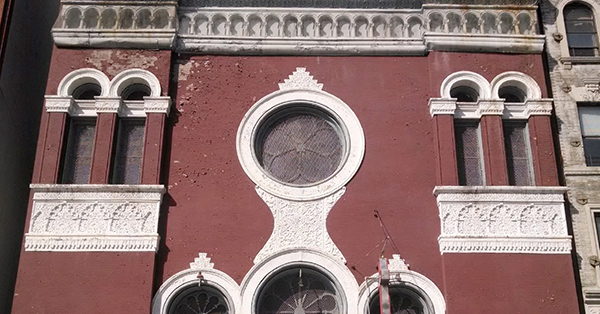
Family History Today: Walking Tour – Exploring Jewish Harlem (2 hours) – In-person Event
Please note: This event is sold out.
Did you know that the Jewish community of Harlem was once ranked as the third largest in the world? It's time to hit the streets of Harlem and explore the remnants and stories of this forgotten Jewish neighborhood. Led by Jewish New York historian and tour guide Barry Judelman, this walking tour will feature some of Harlem’s former legendary Jewish landmarks, including grand historical synagogues and the homes of Jewish celebrities of yesteryear, along with a glimpse at the reemerging Jewish presence in Harlem. At the end, you'll be treated to a taste of New York’s best rugelach, handmade daily in Harlem!
This tour will take place rain or shine. Note: Some tour stops are not wheelchair accessible. The meeting location and additional logistical information will be emailed to all registrants one week before the tour, and again the day before the tour.
Ticket Info: This event is sold out.
Presented by:

walking tour
lecture
Horace M. Kallen’s Frontiers of Hope (1929): A Journey to Palestine and Eastern Europe between the World Wars – In-Person Event & Livestreamed on Zoom
Horace M. Kallen (1882-1974) is best known for his contributions to American multiculturalism, chief among them, the concept of “cultural pluralism.” This lecture by Esther Schor, National Endowment for the Humanities Scholar in Residence 2022-23, however, explores Kallen’s early dream of being a foreign correspondent—a dream dashed by the US Department of State, which repeatedly denied him a passport on (mistaken) suspicion of communist agitation. Finally permitted to travel abroad in 1926, Kallen spent a year assessing the prospects for Jews in Palestine, Poland, Ukraine, and Russia. Frontiers of Hope combines gritty journalism, lyrical descriptions of place, and philosophical meditations on idealism and disillusionment. In trains, cafes, slums, rural collectives, and meeting-halls, Kallen probed the self-understanding of Zionists, Bundists, Communists, and Fascists, documenting how they tested their faith against the realities of unpredictable political power and economic hardship.
A light reception will follow the program.
About the Speaker
ESTHER SCHOR, John J. F. Sherrerd ’52 University Professor and Professor of English at Princeton, is a scholar, biographer, poet, and essayist. Her 2006 biography Emma Lazarus won the National Jewish Book Award. Her poems include The Hills of Holland and Strange Nursery: New and Selected Poems; with poets Meena Alexander and Rita Dove, she is also the co-author of Poems for Sarra, a bilingual collection about the Venetian intellectual Sarra Copia Sullam. Her scholarship includes Bearing the Dead: The British Culture of Mourning from the Enlightenment to Victoria and The Cambridge Companion to Mary Shelley. Her most recent book is Bridge of Words: Esperanto and the Dream of a Universal Language, a cultural history/memoir of the Esperanto movement. In 2022, she was awarded an NEH/Center for Jewish History Fellowship and a Guggenheim Fellowship to support her research on a biography of the philosopher Horace M. Kallen. She lives in Princeton, New Jersey, and London.
Ticket Info:
In person: $5; register here
Zoom: Pay what you wish; register here
Presented by:

lecture
book talk
Isaac Bashevis Singer's "Simple Gimpl" - Live on Zoom
Isaac Bashevis Singer’s “Gimpl tam” was published on March 30, 1945, in the obscure Yiddish-language journal Idisher kempfer, about a month before the Nazi surrender. A story of bullying and the potential for revenge, it tells the deathbed confession of an orphaned baker who is targeted by his own community for ridicule and practical jokes. Gimpl has come to be seen as a symbol of the Jewish people in the diaspora, and, by synecdoche, minorities in general. Should they be passive in the face of aggression? Or should they defend themselves?
A new bilingual edition features Singer's original Yiddish alongside his own partial translation, now completed and edited by writer and scholar David Stromberg. The book also features the 1953 Saul Bellow translation which first brought the story to fame, new illustrations by Liana Finck, and an afterword by David Stromberg. Join YIVO for a discussion with Stromberg featured in conversation with David Roskies.
About the Speakers
David Stromberg is a writer, translator, and scholar whose work has appeared in The American Scholar, The Massachusetts Review, and Los Angeles Review of Books, among other publications. His recent books include Old Truths and New Clichés, an edited collection of Isaac Bashevis Singer’s essays, and a speculative nonfiction novella, A Short Inquiry into the End of the World. His follow-up essay, “The Eternal Hope of the Wandering Jew,” appears in The Hedgehog Review.
David G. Roskies is the Sol and Evelyn Henkind Chair emeritus in Yiddish Literature and Culture and a professor emeritus of Jewish literature at The Jewish Theological Seminary. He also served as the Naomi Prawer Kadar Visiting Professor of Yiddish Studies at the Hebrew University of Jerusalem. Dr. Roskies was elected to the American Academy of Arts and Sciences in 2012. Dr. Roskies is a cultural historian of Eastern European Jewry. A prolific author, editor, and scholar, he has published nine books and received numerous awards. In 1981, Dr. Roskies cofounded with Dr. Alan Mintz Prooftexts: A Journal of Jewish Literary History, and served for seventeen years as editor in chief of the New Yiddish Library series, published by Yale University Press. A native of Montreal, Canada, and a product of its Yiddish secular schools, Dr. Roskies was educated at Brandeis University, where he received his doctorate in 1975.
Ticket Info: Free; register at yivo.org/Simple-Gimpl
Presented by:

book talk
yiddish club
YIVO Yiddish Club: Yiddish Club Mixer – Live on Zoom
The YIVO Institute for Jewish Research and the International Association of Yiddish Clubs (IAYC) join forces to present a Yiddish club mixer. This event, held as a Zoom meeting, will allow Yiddish clubs around the world the opportunity to share a bit about themselves, and to meet fellow Yiddish enthusiasts. Clubs will each share in English or Yiddish* 3-5 minutes about their origins, activities, a fun story about their Yiddish club, and information about how to get involved in their offerings. All are invited to join to watch!
Interested in presenting about your Yiddish club? Please send an email to info@yivo.org with the subject heading “Yiddish Club Mixer.” A limited number of presentation slots are available and will be assigned on a first-come, first-served basis.
*If a club that is held in another language would like to present in their language this is possible, but we ask for screen-share translation in English or Yiddish if so.
Ticket Info: Free; register at yivo.org/YiddishClub19 for a Zoom link
Presented by:

yiddish club
book talk
The Object of Jewish Literature: A Material History - Live on Zoom
With the rise of digital media, the "death of the book” has been widely discussed. But the physical object of the book persists. In her new book, The Object of Jewish Literature: A Material History, through the lens of materiality and objects, Barbara E. Mann tells a history of modern Jewish literature, from novels and poetry to graphic novels and artists’ books. Bringing contemporary work on secularism and design in conversation with literary history, she offers a new and distinctive frame for understanding how literary genres emerge. Join YIVO for a discussion exploring this new publication with Mann in conversation with literary and cultural historian Justin Cammy.
About the Speakers
Barbara E. Mann is the inaugural holder of the Stephen H. Hoffman Professorship in Modern Hebrew Language and Literature at Case Western Reserve University. She is the author of A Place in History: Modernism, Tel Aviv and the Creation of Jewish Urban Space (Stanford, 2006) and Space and Place in Jewish Studies (Rutgers, 2012).
Justin Cammy is professor of Jewish Studies and World Literatures at Smith College. Cammy is the translator from the Yiddish of Sholem Aleichem's Judgment of Shomer, Hinde Bergner's On Long Winter Nights: Memoirs of a Jewish Family in a Galician Township, and most recently Abraham Sutzkever's From the Vilna Ghetto to Nuremberg (McGill-Queen's University Press, 2021).
Ticket Info: Free; register at yivo.org/The-Object-of-Jewish-Literature
Presented by:

book talk
lecture
Gaping Mouths and Leaning Towers: The Queer Geometries of Peretz Markish's Long Form Poems, "Di kupe" and "Radyo" - Live on Zoom
Following the Bolshevik Revolution of 1917, Yiddish—that stateless tongue par excellence—found official status within the new “international state” of the Soviet Union. In her seminal study of modernisms, Chana Kronfeld identifies the poetics of Hebrew and Yiddish literatures as processes of de-territorialization (1996). This talk takes Kronfeld’s study of marginal modernisms as a point of departure and aims to interrogate the relationship between space, revolution, and language at the beginning of the Soviet experience. Specifically, this paper places Peretz Markish’s Yiddish long-form poems, Di kupe (The Mound) and Radyo (Radio), in conversation with the architectural aspirations of the Soviet avant-garde. The poems’ irregular—indeed, impossible—representation of bodies in space resists established traditional definitions of being and belonging and, in turn, undercuts the authority of any traditional establishment itself. To enact his takedown of tradition, Markish disrupts linguistic and spatial conventions to (de)construct fictional edifices: the mound (Di kupe) is at once divine and profane, everywhere and nowhere, concave and erect; the tower of his poem Radyo, too, reaches up, outwards, and down to broadcast a message of cautious hope in the face of violence. Given these mechanisms, Markish’s poetry does not simply wrangle with the paradoxical project of “building communism,” especially as it relates to the new Soviet Jew, but rather performs its contradictions. As they turn the inside out and the upside down, Di kupe and Radyo illustrate the power of revolution as a destabilizing force that both made and unmade one's sense of self.
About the Speaker
Elaine Wilson is a writer, literary translator, language instructor, and PhD candidate in the Department of Slavic Languages at Columbia University. She studies Russian and Yiddish literature of the early Soviet period and is currently at work on her dissertation, entitled: “The Soviet Exodic: Resistance and Revolution in Soviet Russian and Yiddish Literature,1917 – 1935.” She is the recipient of the Vladimir and Pearl Heifetz Memorial Fellowship and the Vivian Lefsky Hort Memorial Fellowship in Jewish Literature at the YIVO Institute for Jewish Research for 2022-2023.
Ticket Info: Free; register at yivo.org/Markish-Poems
Presented by:

lecture
concert
Heym Un Veg (Between Home and The Way) - Live at the Soapbox Gallery and on Zoom
Hailed as the contemporary Jewish “songbird of Ukraine,” Zhenya Lopatnik’s songs stir the soul and awaken memories even for those too young to remember. Heym Un Veg (Between Home and The Way) features Lopatnic with long-time collaborator Oren Neiman, an Israeli-born, New York based guitarist along with the multi-instrumentalists Ira KhonenTemple and Ivan Barenboim.
Heym Un Veg (Between Home and The Way) tells an illuminating tale, weaving Lopatnik’s original compositions with Ukrainian folk songs. The show is a theatrical journey through time with storytelling that conveys life in Ukraine and, particularly, in the Ukrainian Jewish Community. The performance threads together cultures and generations through Lopatnik’s rich repertoire of Yiddish songs and the poetry of prominent Ukrainian Yiddish Poets.
Please note: This event will take place at:
-
Soapbox Gallery
636 Dean Street
Brooklyn, NY 11238
Ticket Info:
In-Person Admission: $25
Livestream Admission: Pay what you can ($10 minimum)
Presented by:

concert
symposium
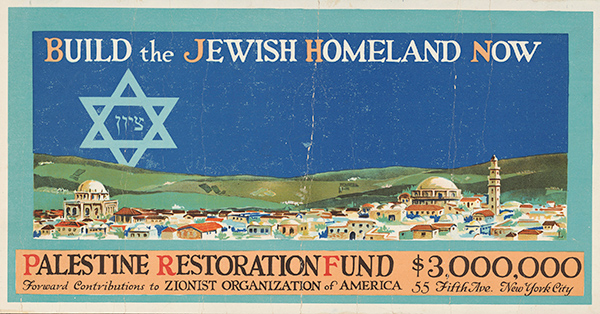
Zionism and American Jews: Bringing Us Together and Pulling Us Apart – In Person and Livestreamed on Zoom
Zionism and American Jews marks the State of Israel’s 75th birthday by gathering twenty internationally recognized scholars at the Center for Jewish History to discuss the long relationship between the American Jewish community and the Zionist movement.
Since the Jewish state’s founding in 1948, American Jews have been stalwart supporters of Israel. But growing domestic political instability in Israel, spiking tensions between Israelis and Palestinians, and surging antisemitism in the U. S., have caused new splits to emerge among American Jews about the Zionist movement. Generationally as well as politically, American Jews appear to be more divided about Zionism than ever. Yet these divisions are hardly new. In fact, for nearly a century and a half, Zionism has been a source of contention, not just consensus, among Jews in the United States and around the world. The question of whether the Jewish people should be viewed as an ethnically defined nation or merely a religious community has been hotly contested within Jewish communities from the late 19th century to the present. Zionism and American Jews chronicles this long history in the effort to explain present-day tensions and opportunities in the relationship between the American Jewish community and the State of Israel.
The symposium, which is organized in partnership with the National Library of Israel, is the first installment in a larger series of public symposia sponsored by the Center for Jewish History’s brand new Jewish Public History Forum. Future symposia at The Forum will include “Jewish Responses to Fascism, 1933-2023” (fall 2023), “Jews and Immigration: 1924-2024 (spring 2024), and “Jews and Democracy: Antiquity to the Present” (fall 2024).
This program is presented with the generous support of David Berg Foundation.
Click here for a schedule, list of speakers, and tickets.
Ticket Info:
In person: $36 (including lunch and reception)
Zoom livestream: $5
Presented by:


symposium
lecture
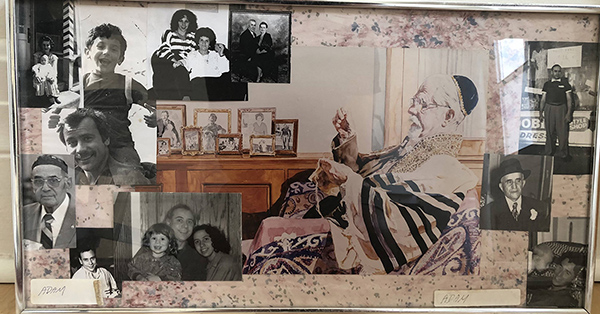
Family History Today: Give Us Our Name - Jewish Genealogy and American Jewish Religion – Live on Zoom
Since its organizational beginnings in the 1970s, Jewish genealogy has offered countless Americans of Jewish descent an opportunity to connect with Jewish history emotionally and spiritually. Based on her interviews with genealogists around the country, observations of Jewish Genealogical Societies, and studies of Jewish genealogists’ papers, Rachel B. Gross, Associate Professor of American Jewish Studies at San Francisco State University, will discuss how and why genealogy research has come to be viewed as a religious practice by many American Jews today.
Ticket Info: Pay what you wish; register here for a Zoom link
Presented by:

lecture
book talk
Unearthed - In-person and Live on Zoom
As a child, Meryl Frank was the chosen inheritor of family remembrance. Her aunt Mollie told her about Vilna, the Yiddish theater, and, above all else, Meryl’s cousin, the radiant Franya Winter. Franya was a leading light of Vilna’s Yiddish theater, a remarkable and precocious woman who cast off the restrictions of her Hasidic family and community to play roles as prostitutes and bellhops, lovers and nuns. Yet there was one thing her aunt Mollie would never tell Meryl: how Franya died. Before Mollie passed away, she gave Meryl a Yiddish book containing the terrible answer but forbade her to read it. And for years, Meryl obeyed.
Drawing on archives across four continents, including extensively from YIVO, and guided by the shocking truth recorded in the pages of the forbidden book, Meryl Frank's Unearthed traces her search for her cousin Franya. Meryl’s discoveries reveal a lost world destroyed by hatred, illuminating the cultural haven of Vilna and its resistance during World War II. Join YIVO for a discussion with Meryl Frank about this new book led by Opinion Editor of the Forward, Laura E. Adkins.
About the Speakers
Meryl Frank is president of Makeda Global Network, an international consulting firm that works with thousands of women worldwide. Over a long and varied career, she has been an activist, a mayor, an ambassador, and a champion for women’s leadership and political participation around the world. In 2009, President Obama appointed her United States Representative and, subsequently, Ambassador to the United Nations Commission on the Status of Women. In May of 2022, President Biden appointed Frank to a seat on the US Holocaust Memorial Council. She is also a member the Board of the YIVO Institute for Jewish Research.
Laura E. Adkins is an award-winning writer, editor, and speaker based in New York. She is the Opinion Editor of the Forward. Laura’s writing on antisemitism, Orthodox Judaism, data, and gender has appeared in The Washington Post, The New York Times, the Los Angeles Review of Books, Glamour, and other outlets. She was previously the Opinion Editor of the Jewish Telegraphic Agency, the editor of Jewish Insider, and an assistant blogs editor at The Times of Israel.
Ticket Info: Free; register at yivo.org/Unearthed
Presented by:



book talk
lecture
Between the Living and the Dead: Considering Tradition in the Jewish Cemeteries of Poland, 1918-1945 – Live on Zoom
The Jewish cemetery has long been a site guided by Jewish law and traditional ritual practice. However, in the early twentieth century, pressures of modernity and urbanization in Poland strained traditional practices at the Jewish cemetery. In this talk, Alison B. Curry will examine how politics, modernity, and tragedy altered traditional uses of Jewish cemeteries in Poland.
While during the interwar period specific aspects of funerals, burials, and cemetery usage relied less and less on Jewish tradition and law, with the start of the Second World War, caring for bodies after death became both a priority and a triviality. Handling the ever-increasing numbers of the deceased in the ghetto meant that, in many cases, various death traditions were abandoned altogether. On the other hand, the sanctity of Jewish tradition and ethics emboldened many activists to call for returns to traditional practices of funeral and burial during the Holocaust.
In this talk, Curry argues that the Jewish cemetery became a central space for negotiation of identity – a place where the living considered their own Jewishness, reflected in that of the dead.
About the Speaker
Alison B. Curry is a doctoral candidate in History at the University of North Carolina at Chapel Hill. Previously, she received her M.A. in Holocaust and Genocide Studies from Gratz College and a Graduate Certificate in Digital Public Humanities from George Mason University. Curry’s dissertation research focuses on the ritual, spatial, and functional uses of Jewish cemeteries in Poland between 1918 and 1945. Currently, Curry is a Saul Kagan Fellow in Advanced Shoah Studies as well as the 2022-2023 Max Weinreich Center Fellow in Polish Jewish Studies. Her research has also been supported by the Carolina Center for Jewish Studies, the Association for Slavic, East European & Eurasian Studies (ASEEES), and the Memorial Foundation for Jewish Culture.
Ticket Info: Free; register at yivo.org/Cemeteries-of-Poland for a Zoom link
Presented by:

lecture
book talk
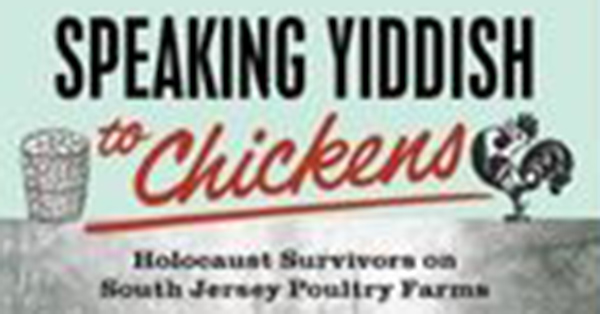
Speaking Yiddish to Chickens - Live on Zoom
Author Seth Stern joins us to discuss his new book Speaking Yiddish to Chickens, moderated by the Chair of Jewish Studies at the University of Connecticut, Avinoam Patt.
Most of the roughly 140,000 Holocaust survivors who came to the United States in the first decade after World War II settled in big cities such as New York. But a few thousand chose an alternative way of life on American farms. More of these accidental farmers wound up raising chickens in southern New Jersey than anywhere else. Speaking Yiddish to Chickens is the first book to chronicle this little-known chapter in American Jewish history when these mostly Eastern European refugees – including the author’s grandparents – found an unlikely refuge and gateway to new lives in the US on poultry farms. They gravitated to a section of south Jersey anchored by Vineland, a small rural city where previous waves of Jewish immigrants had built a rich network of cultural and religious institutions.
Ticket Info: Free; register at ajhs.org/events/book-talk-speaking-yiddish-to-chickens/ for a Zoom link
Presented by:

book talk
panel discussion
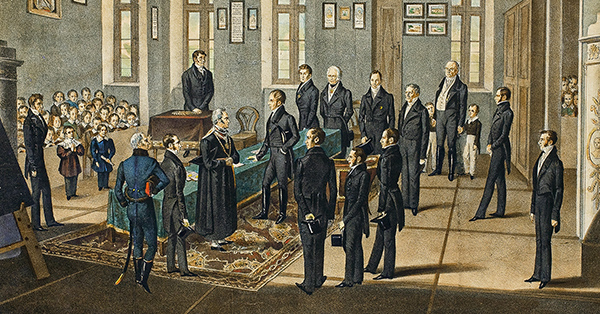
Curriculum Wars and the Struggle for the Future of Judaism – In-person Event
News reports about curricular standards in Hasidic schools have set off a polarizing public debate. With the rapid growth of Hasidic Judaism, many observers recognize that the future of American Judaism is being contested. Arguments over the Jewish curriculum are not new. In his new book, The Jewish Reformation, Michah Gottlieb (NYU) explores how in the 18th and 19th centuries these disputes reflected competing spiritual visions of Judaism. Join us for an illuminating program about the contemporary relevance of these centuries-old debates. David Ellenson (Hebrew Union College) will moderate a conversation between Gottlieb, Yitzhak Melamed, (Johns Hopkins University) and Naomi Seidman (University of Toronto).
If you would like to attend this program virtually, please select the "Virtual Admission" option when reserving tickets on Eventbrite.
Ticket Info: General: $10; LBI/CJH/Partner Members, Students, Seniors: $5; register atregister at lbi.org/events/curriculum-wars/
Presented by:

panel discussion
concert
Virtual Tenement Concert: Songs of Yiddish New York with YIVO - Live on YouTube
Back by popular demand! The Tenement Museumand YIVO are partnering up again on April 24th on YouTube Live for a night exploring Jewish immigrant New York City of yesteryear through musical performances from inside the recreated 1890s parlor of the Levine family, immigrants from Eastern Europe.
At once a “golden land” of opportunity and joy and a place full of the challenges of immigrant life, New York held a myriad of experiences for new Americans. From songs about leaving one’s homeland and arriving in Ellis Island, to anthems of the everyday difficulties of sweatshop labor, to hit songs of the Yiddish theater that exemplify leisure time activities, this concert uses music to bring the bustling world of the Jewish lower East side to life.
A performance of Pulitzer prize-finalist Alex Weiser’s song cycle, Coney Island Days, will round out the program. Based on an oral history interview with the composer’s late grandmother, these songs explore childhood activities in Coney Island, working in the family’s knish store, visiting the Russian bath, and more.
The concert will feature introduction and historical commentary by Alex Weiser in conversation with Tenement Museum President Annie Polland, and musical performances by singer Eliza Bagg and pianist Paul Kerekes.
Ticket Info: Free; register at yivo.org/Songs-of-Yiddish-NY for a YouTube link
Presented by:

concert
book talk
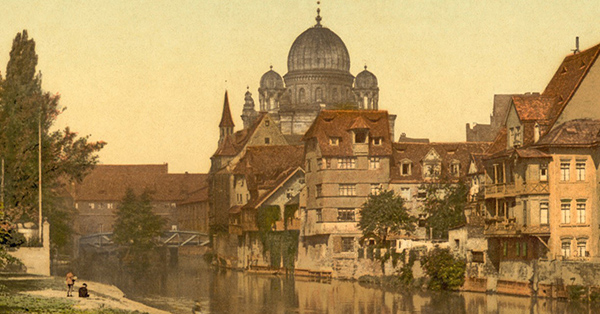
The Population History of German Jewry: 1815–1939 - In-person Event
The late Steven Mark Lowenstein was a brilliant social historian who, after retiring from his academic position at the University of Judaism, labored until his final days to complete a monumental demographic history of German Jewry. Lowenstein took the research of Hebrew University demographer Professor Usiel Oscar Schmelz and brought it to life with insights into the daily experiences of German-speaking Jews. David N. Myers (UCLA), who co-edited the book for its posthumous publication, will join Marsha Rozenblit (Maryland), David Ellenson (HUC), and Lowenstein’s daughter, Ruth Glasser (UCONN), for a celebration of Lowenstein’s legacy and his final opus.
If you would like to attend this program virtually, please select the "Virtual Admission" option when reserving tickets on Eventbrite.
Reviews
“The pioneering research of Usiel Schmelz and Steven Lowenstein provides a new dimension for German-Jewish History. Instead of relying on a few personal accounts and anecdotal evidence, this book constitutes a tool to decipher the complete picture of the German-Jewish community. It is an indispensable source for everyone interested in the modern Jewish experience.”
— Michael Brenner, President of the International Leo Baeck Institute for the Research of German-Jewish History and Culture
“Steven Lowenstein’s landmark volume presents the history of German Jewry from the early 19th century into the Nazi era through the prism of shifting population patterns. Replete with an incomparable array of data, the book’s meticulous narrative also serves as a memorial to a diverse Jewish community whose history reflected the triumphs and tragedies of the modern Jewish experience.”
— Jack Wertheimer, The Jewish Theological Seminary
“Steven Lowenstein’s demographic history of Jews in Germany is a state-of-the-art study that will certainly become a classic. He has absorbed and presented in highly readable prose the chronological, regional, and topical demographic interpretations of the years 1815-1939 while also engaging in historiographical debates. This new and all-embracing picture of German Jewry offers readers careful analyses of such topics as urbanization, marriage and intermarriage, births and deaths, in and out migration and internal migration, and addresses age, region, and gender while also comparing to non-Jewish populations in Germany. The book is breathtaking in its research and scope and a must for every scholar of German-Jewish history.”
— Marion Kaplan, Skirball Professor Emerita of Modern Jewish History
“Stephen Lowenstein has published the definitive demographic history of German Jewry. This is a monumental curated archive, actually a twice posthumous book. Lowenstein's initial statistics were compiled by the Israeli demographer Oscar Schmelz, and Lowenstein himself died before finishing this tome. The massive detail will help us explain a burning question in German history. Does the trend toward ‘racial suicide’ documented in this book help explain the cultural achievements of Jews in modern Germany? Family historians, genealogy buffs and population historians will rely on Lowenstein's volume and appreciate its comparative reach and meticulous detail.”
— Deborah Hertz, Wouk Chair in Modern Jewish Studies, Department of History, University of California at San Diego
Ticket Info: General: $10; LBI/CJH/Partner Members, Students, Seniors: $5; register at lbi.org/events/steve-lowenstein/
Presented by:

book talk
workshop
Memorial Workshop in Honor of the Yiddish Poet Rivka Basman Ben-Hayim z"l - Live on Zoom
Please join YIVO, the League for Yiddish, and “YO” - Yiddish-Ort for a Zoom workshop honoring the memory of the Yiddish poet who recently left us Rivka Basman Ben-Hayim z”l (Vilkomir/Ukmerge, 1925 – Herzliah, 2023). Her passing marks the end of an entire era in the world of Yiddish letters. She was a wonderful person with a rich life that was reflected in her poetry.
We invite you to this interactive workshop, where you will have the opportunity to get to know her poems from various stages of her life. We will read and discuss them together, under the guidance of Dr. Miriam Trinh, who will place the poet’s oeuvre in a historical-biographical context.
This event will be in Yiddish only. The workshop will last approximately two hours, and materials will be provided to all registrants in advance.
Ticket Info: Free; register at yivo.org/Memorial-Workshop
Presented by:

workshop
class
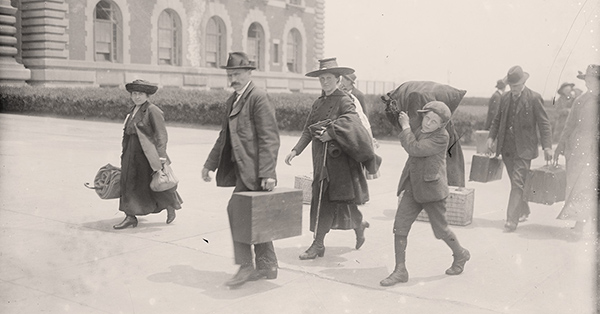
All in the Mishpocheh: Intro to Jewish Genealogy at CJH - Live on Zoom
10-session classes run from April through June 2023
Fridays, 10:00-11:15 am ET, April 21 – June 30
Join the staff of the Center for Jewish History’s Ackman & Ziff Family Genealogy Institute for this 10-week online genealogy course, suitable for beginner and intermediate learners. Topics include: family trees, online search strategies, immigration, DNA, Holocaust, finding your ancestral towns, name changes, obtaining records from other countries, and much more. By the end of this course, you will have a portfolio of new documents and information on your ancestors' lives ready to share with your family.
Students are encouraged to participate live but are welcome to watch or review class recordings as needed.
FAQ
Can I contact the instructor outside of the class time?
One unique aspect of this course is that our librarian instructors not only permit, but encourage, their students to reach out to them beyond the class time – via email, video chat, or in-person visits. Former participants say this one-on-one availability was instrumental in their personal research progress, providing the tailored guidance they needed to chart their research path or break through longstanding “brick walls.”
Will I get personal feedback?
You will definitely receive personal feedback to your questions either during or between classes. Your fellow students may also offer their advice during class or in the What’s App chat group, which has been an invaluable asset to students’ learning.
How many people will be in the class?
Class sizes have ranged from about 20-30 students, with an average of 10-15 always participating live on Zoom and others watching some or many of the classes non-synchronous to the Zoom class time.
Read reviews by past participants!
"Absolutely take this class if you are interested in genealogy or just curious."
"The information and guidance provided helped me to launch my genealogy research in an effective way."
"The course gave me terrific resources to use in the future and demonstrated how to use the resources. It was terrific to listen to the progress of others and how they reached their goals."
"You have opened the door to an endless journey."
Ticket Info: $295 general, $255 CJH members (members are those who have donated $50 or more to the Center in the past year) - Register here
Presented by:

class
conversation
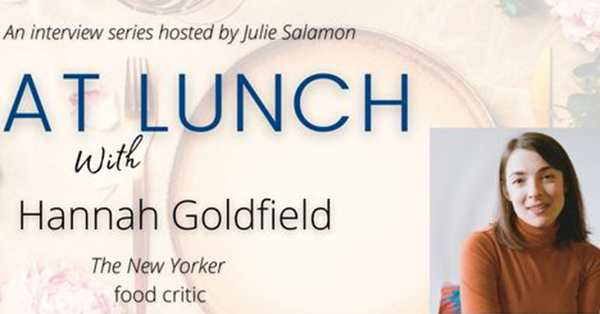
At Lunch with Hannah Goldfield – Live on Zoom
Julie Salamon (Wall Street Journal & NY Times) sits down with The New Yorker’s food critic and writer for the weekly Tables for Two restaurant column Hannah Goldfield. Previously, she was a fact checker at The New Yorker and an editor at T: The New York Times Style Magazine. Her writing has appeared in New York magazine and the Times among other publications.
Ticket Info: Free; register at ajhs.org/events/at-lunch-with-hannah-goldfield/ for a Zoom link
Presented by:

conversation
concert
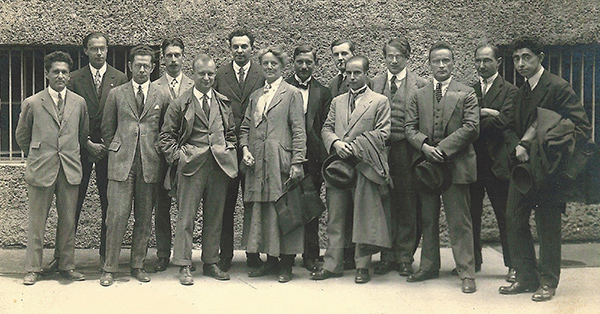
Innovators in Exile Concert – In-Person Event
In 1922, a group of musicians organized a festival in Salzburg to showcase modern music. Seen by some scholars as an attempt to subvert the conservative image of a newly-founded Austria being promoted by the Salzburg Festival, the festival returned in 1923 as the International Society for Contemporary Music, which still exists today.
However, even by 1923, the festival had already earned the ire of anti-modernists, with one reporter calling the participants “musical Bolsheviks.” The majority of those composers would later be exiled – either as Jews or because Nazi ideology linked modernism with Jewishness and communism. Most of these composers, in the midst of or on the precipice of vibrant careers, are now virtually unknown.
Join us in honoring the centennial of the ISCM with three evenings of music from these exiled composers, including Rudolf Reti, Paul Pisk, Karl Weigl, Hugo Kauder, Wilhelm Grosz, Egon Lustgarten, Paul Hindemith, and Egon Wellesz. On April 20th, at the Center for Jewish History, we will kick off the series with chamber works and talks by Michael Haas (exil.arte) and Alexis Rodda (soprano, program coordinator of Elysium Between Two Continents, and independent musicologist).
Ticket Info: Free, optional $10 donation; register at lbi.org/events/innovators-in-exile-2023/
Presented by:


concert
panel discussion
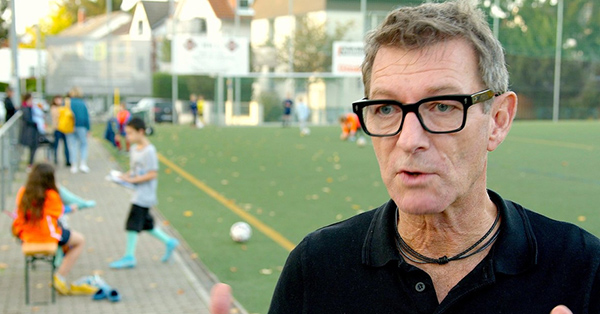
Conversation with Stefan Schirmer and FC Ente Bagdad
Join us as we chat with winners of the 2023 Obermayer Awards. Learn more about the work, perspectives, and personal motivations of these inspiring people. We'll show a brief film, have an in-depth conversation facilitated by Widen the Circle Executive Director Joel Obermayer, and invite questions from the audience.
Stefan Schirmer has been the guiding force behind making Mainz-based German football club FC Ente Bagdad into a beacon for diversity, acceptance, and equality, as well is in helping people recognize and understand Jewish history and culture. The club organizes many popular remembrance events, particularly during Mainz Remembrance Weeks, and reaches out to “new Germans” from war-torn countries including Syria, Afghanistan, and Ukraine who have found refuge in Mainz. For one match, the entire team wore kippahs in solidarity with a person who had recently been attacked.
Ticket Info: Free; register at lbi.org/events/obermayer-fc-ente-bagdad/
Presented by:

panel discussion
memorial event
Commemoration of the 80th Anniversary of the Warsaw Ghetto Uprising at Der Shteyn
Please Note: This event does NOT take place at the Center for Jewish History.
Please join us to commemorate the 80th Anniversary of the Warsaw Ghetto Uprising. Speaking in the program are Irena Klepfisz, Jeffrey Shandler, and Mindy Spiegel. The artistic program will include Joanne Borts, Menachem Fox, Shifee Losacco, Elliott Palevsky, and Daniella Rabbani, as well as children from the Workers Circle Midtown Shule.
This event will take place at der shteyn, the memorial stone in Riverside Park between 83rd and 84th Street. The program will be recorded and made available on YouTube.
Ticket Info: Free; no registration required.
Presented by:

memorial event
film screening
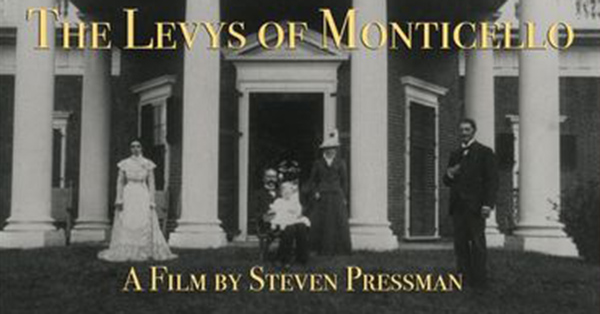
The Levys of Monticello - In-person Event
Join us for a screening of The Levys of Monticello followed by a discussion with filmmaker, Steven Pressman and historian, Hasia Diner.
When Thomas Jefferson died in 1826, he left behind a mountain of personal debt, which forced his heirs to sell his beloved Monticello home and all of its possessions. The Levys of Monticello is a documentary film that tells the little-known story of the Levy family, which owned and carefully preserved Monticello for nearly a century – far longer than Jefferson or his descendants. The remarkable story of the Levy family also intersects with the rise of antisemitism that runs throughout the course of American history.
Ticket Info: $10; register at ajhs.org/events/film-screening-the-levys-of-monticello/
Presented by:

film screening
concert
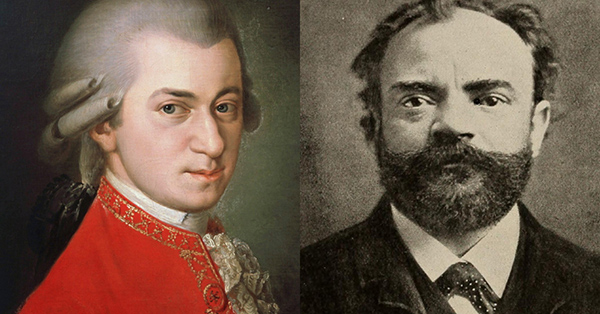
Spring Romance: Phoenix Chamber Ensemble performs Mozart, Dvorak and Berens – In-person Event and Livestreamed on YouTube
Join Phoenix Chamber Ensemble pianists Vassa Shevel and Inessa Zaretsky and guest artists Ellen Braslavsky on piano, Michael Katz on cello, and Anna Elashvili on violin, for Mozart’s Piano Trio in C Major, K.548; Dvorak’s Four Romantic Pieces Op.75 for violin and piano; Berens’ Gesellschafts Quartet in F Major, Op. 80 for violin, cello and piano 4 hands; Berens’ Gesellschafts Quartet in A minor, Op. 72 for violin, cello and piano 4 hands; and Berens’ Gesellschafts Quartet Op. 72 for violin, cello and piano 4 hands.
Made possible by the Stravinsky Institute Foundation through the generous support of the Blavatnik Family Foundation.
Ticket Info:
In person: $15 general; $10 members, seniors, students – ADVANCE PURCHASE REQUIRED; register here
On YouTube: Pay what you wish; register here
Presented by:

concert
book talk
Elie Wiesel: Confronting the Silence - In-person and Live on Zoom
As an orphaned survivor and witness to Auschwitz, Elie Wiesel (1928–2016) became a torchbearer for victims and survivors of the Holocaust at a time when the world preferred to forget. How did this frail, soft-spoken man from a small village in the Carpathians become such an influential presence on the world stage? Drawing from Wiesel’s writings and interviews with his family, close friends, scholars, and critics, Joseph Berger’s new book, Elie Wiesel: Confronting the Silence, presents Wiesel as both a revered Nobel laureate and a man of complex psychological texture and contradictions. Join YIVO for a discussion of this new book featuring Berger in conversation with Samuel Norich.
About the Speakers
Joseph Berger was a New York Times reporter, columnist, and editor for thirty years, and he continues to contribute periodically. He has taught urban affairs at the City University of New York’s Macaulay Honors College. He is the author of Displaced Persons: Growing Up American After the Holocaust and lives in New York City.
Samuel Norich served as executive director of the YIVO Institute for Jewish Research from 1980-1992, and as vice president of the World Jewish Congress from 1975 to 1981. Norich is the author of What Will Bind Us Now?: A Report on the Institutional Ties Between Israel and American Jewry. Norich currently serves as the president of the Forward Association. He was the publisher and chief executive of the English and Yiddish Forward for two decades, until he retired in 2017.
Ticket Info: Free; register at yivo.org/Elie-Wiesel
Presented by:

book talk
yiddish club
YIVO Yiddish Club: Yiddish Hip Hop with Josh "Socalled" Dolgin – Live on Zoom
Nu, vilst redn a bisele yidish? An event for Yiddish enthusiasts the world over, the YIVO Yiddish club is an informal monthly gathering to celebrate Mame-loshn. Hosted by Shane Baker, sessions take place in English, and are liberally peppered with Yiddish. Each month Baker is joined by a different guest who discusses their work and a related Yiddish cultural theme. In the spirit of a club, sessions are held as interactive zoom meetings in which participants can see and hear one another. Each session includes ample time for audience questions, group discussion, and, time permitting, knock-down, drag-out arguments. Attendees need not know any Yiddish to attend, though some familiarity with the language is highly recommended.
This session features Josh "Socalled" Dolgin, a pianist, accordionist, producer, journalist, photographer, filmmaker, magician, cartoonist and puppet maker based in Montreal, Quebec. Dolgin has lectured and has led master classes in music festivals around the world, from Moscow to Paris, from London to LA, and from Krakow to San Francisco, and has performed on every continent. He has released over 6 albums which include musical collaborations with artists across a variety of genres ranging from Classical, Jazz, and Hip Hop to Klezmer. In December 2015, Socalled was presented with the “Adrienne Cooper Memorial Dreaming in Yiddish” award for his work disseminating and exploring Yiddish culture.
Ticket Info: Free; register at yivo.org/YiddishClub18 for a Zoom link
Presented by:

yiddish club
book talk
Knowledge Under Siege: The Guardians of Fate - Live on Zoom
This event is a part of YIVO's series Knowledge Under Siege, which presents recent scholarship from Poland about the Holocaust and antisemitism. Each event features scholars discussing a recent book they worked on.
Bozena Keff, Straznicy fatum [The guardians of fate] (Warszawa: Wydawnictwo Krytyki Politycznej, 2020).
“Straznicy fatum” [The guardians of fate] by Bozena Keff is a collection of essays on Polish-language literature about the Holocaust. Keff asks whether those literary works contain a diagnosis of Polish culture that corresponds with its assessment by critical humanities and arts today. In the texts analyzed by Keff, Poles are presented as so-called “Polish witnesses to the Holocaust” who were allegedly “helpless” because of the Nazi terror. Today – on the basis on the same texts – they are recognized as co-perpetrators. Another topic discussed by Keff are the terms and conditions that Polish culture has imposed upon Jews who undertook to integrate into it. “Host and guest regulations” were and are intuitively known to all Jews in Poland as a set of unwritten, because obvious, rules of domination and submission. Keff examines their functioning notably in the biography and work of a Polish-language poet of the Holocaust Tadeusz Rózewicz.
About the Speaker
Bozena Keff – a philosopher by training, she is a writer, poet, feminist activist and theorist. Her books include: “Postac z cieniem. Postacie zydówek w polskiej literaturze konca XIX wieku i dwudziestolecia miedzywojennego” [Figure with shadow. Portraits of Jewish women in Polish literature at the turn of the twentieth century] (2001); “Barykady. Kroniki obsesyjne” [Barricades. Obsessive chronicles] (2005). Her monograph “Antysemityzm. Niezamknieta historia” [Anti-Semitism. Story unfinished] (2013) addresses antisemitism as a durable element in European and Polish history and culture. Translated into Hebrew, French, Italian, Spanish and German, her transgressive poetry suite “Utwór o Matce i ojczyznie” (2008) was published in the US as “On Mother and Fatherland” in the translation of Alissa Valles and Benjamin Paloff in 2017.
Ticket Info: Free; register at yivo.org/KnowledgeUnderSiege3
Presented by:

book talk
lecture
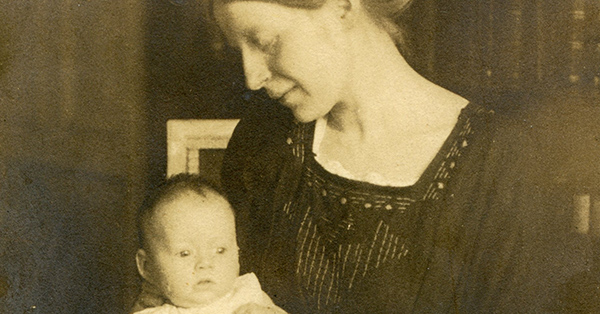
German Refugee Classicists: Eva Lehmann Fiesel and Ruth Fiesel – Live on Zoom
This presentation illuminates the extraordinary lives and legacies of two German-born classicists, Eva Lehmann Fiesel and her daughter Ruth Erika Fiesel, warmly welcomed here in the United States as refugees from the Nazis and their "race laws" in 1934. A gifted specialist in Etruscan studies born in 1891, Eva Fiesel died in 1937, seven months after assuming a post as Visiting Associate Professor of Classics at the all-female Bryn Mawr College outside of Philadelphia, unable to fulfill her immense scholarly promise. Ruth, who was born in 1921 and died in 1994, earned her own BA in classics from Bryn Mawr in 1942, subsequently availing herself of opportunities to undertake graduate work in classics in both the United States and abroad. Yet she ultimately opted to teach Latin at the pre-collegiate level and work as in secondary school administration rather than pursue a PhD. and university career in classics.
How and why do the achievements of this mother-daughter dyad matter not only to the profession of classics worldwide, but also to women’s history, and that of our country? Scholar Judith Peller Hallett will focus on the role of gender in the emigration of German refugee classicists to the United States, explore both similarities and differences between the study of classics in German and American educational institutions, and reflect on how generational as well as socio-cultural change shaped the shared commitment to classical studies – and its glorious interdisciplinarity – by members of the same family.
About the Speaker
Judith Peller Hallett is Professor of Classics and Distinguished Scholar-Teacher Emerita at the University of Maryland, College Park. She holds a BA in Latin from Wellesley College and an AM and PhD in Classical Philology from Harvard University. She has published widely in the areas of Latin language and literature; women, the family and sexuality in Greco-Roman antiquity; and the study and reception of classics in the Anglophone world. A former Blegen Visiting Scholar in the Department of Classics at Vassar College and Suzanne Deal Booth Resident Scholar at the Center for Intercollegiate Studies in Rome, she has also held fellowships from the Mellon Foundation and the National Endowment for the Humanities. A 2013 collection of essays from Routledge— Domina Illustris: Latin Literature, Gender and Reception, edited by Donald Lateiner, Barbara Gold and Judith Perkins—celebrates her academic career.
Ticket Info: Free; register at lbi.org/events/german-refugee-classicists/
Presented by:

lecture
book talk
This Was Not America - Live on Zoom
This Was Not America: A Wrangle Through Jewish-Polish-American History is a new book featuring a conversation, often contentious, between Michael Steinlauf, historian of Polish-Jewish culture and child of Holocaust survivors, and the anthropologist and artist Elzbieta Janicka. The conversation touches on critical moments in Jewish, Polish, and American history, including fleeing the Warsaw Ghetto, living underground fighting for social justice in 1960s’ Seattle, and helping dismantle the communist system in 1980s’ Poland. Beyond individual biography, the talk ranges from the apparition of a dybbuk in postwar Brooklyn to the consequences of a non-critical approach to Polish-Jewish studies. Join YIVO for a discussion of this unique new book with co-authors Steinlauf and Janicka led by YIVO’s own Eddy Portnoy.
About the Speakers
Michael Steinlauf is the author of Bondage to the Dead: Poland and the Memory of the Holocaust as well as numerous studies of Jewish culture in prewar Poland. He was one of the founders of the POLIN Museum of the History of Polish Jews. Currently he is completing studies of the Polish Jewish dramatist Mark Arnshteyn and the Yiddish culture hero Y. L. Peretz.
Elzbieta Janicka is a literary scholar and visual artist. She is the author of Sztuka czy Naród? [Art or Nation?] and Festung Warschau, exposing violence and exclusion embedded in Polish dominant culture, as well as numerous studies of Polish antisemitism. Most recently she co-authored Philosemitic Violence. Poland’s Jewish Past in New Polish Narratives (Rowman & Littlefield, 2021).
Eddy Portnoy, the Senior Academic Advisor & Director of Exhibitions at the YIVO Institute for Jewish Research, is the author of Bad Rabbi and Other Strange but True Stories from the Yiddish Press.
Ticket Info: Free; register at yivo.org/This-Was-Not-America
Presented by:

book talk
book talk
Jewish Culture Between Canon and Heresy - Live on Zoom
A new career-spanning anthology from Jewish historian David Biale, Jewish Culture Between Canon and Heresy, brings over a dozen of his key essays together for the first time. These pieces, written between 1974 and 2016, are all representative of a method Biale calls "counter-history": "the discovery of vital forces precisely in what others considered marginal, disreputable and irrational." The themes that have preoccupied Biale throughout the course of his career—in particular power, sexuality, blood, and secular Jewish thought—span the periods of the Bible, late antiquity, and the Middle Ages to the twentieth century. Exemplary essays in this volume argue for the dialectical relationship between modernity and its precursors in the older tradition, working together to "brush history against the grain" in order to provide a sweeping look at the history of the Jewish people. Join YIVO for a discussion focusing on this new anthology featuring Biale in conversation with Sarah Abrevaya Stein.
About the Speakers
David Biale is Emanuel Ringelblum Distinguished Professor of Jewish History at the University of California, Davis. He was educated at UC Berkeley, the Hebrew University and UCLA. His most recent books are Hasidism: A New History (with seven co-authors), Gershom Scholem: Master of the Kabbalah and Not in the Heavens: The Tradition of Jewish Secular Thought. Earlier books are Gershom Scholem: Kabbalah and Counter-History, Power and Powerlessness in Jewish History, Eros and the Jews and Blood and Belief: The Circulation of a Symbol Between Jews and Christians. He is also the editor of Cultures of the Jews: A New History and the Norton Anthology of World Religions: Judaism. His books have been translated into eight languages and have won the National Jewish Book Award three times.
Professor Biale has served as chair of the Department of History at UC Davis and as Director of the Davis Humanities Institute. He also founded and directed the UC Davis Program in Jewish Studies. In 2011, he won the university’s highest award, the UC Davis Prize for Undergraduate Teaching and Scholarly Achievement. He also founded the Posen Society of Fellows, an international doctoral fellowship for students of modern Jewish history and culture.
Sarah Abrevaya Stein is author or editor of ten books. In The New York Times, Matti Friedman has written that "Stein, a UCLA historian, has ferocious research talents [...] and a writing voice that is admirably light and human." Stein's most recent book, Wartime North Africa, A Documentary History 1934-1950 (Stanford University Press, with the cooperation of the USHMM, 2022), is the first-ever collection of primary documents on North African history and the Holocaust. Stein's previous book, Family Papers: A Sephardic Journey Through the Twentieth Century (Farrar, Straus, & Giroux: Macmillman, 2019), explores the intertwined histories of a single family, Sephardic Jewry, and the dramatic ruptures that transformed southeastern Europe and the Judeo-Spanish diaspora. Stein’s books, articles, and pedagogy have won numerous prizes, including two National Jewish Book Awards, the Sami Rohr Prize for Jewish Literature, a Guggenheim Fellowship, and the UCLA Distinguished Teaching Award. Stein is also co-editor (with David Biale of UCD) of Stanford University Press Series in Jewish History and Culture.
Ticket Info: Free; register at yivo.org/Canon-and-Heresy
Presented by:

book talk
film and discussion
The Hidden Jews of Ethiopia
Nafkot – Yearning, a new film by Dr. Malka Shabtay
The Hidden Jews of Ethiopia, a new book by Dr. Marla Brettschneider
Panelists
Dr. Malka Shabtay is an applied anthropologist who has worked for decades with the Ethiopian Jewish community in Israel and more recently in Ethiopia. Author of many books, she has taught in numerous academic institutes including the Ruppin Academic Center and the Institute for Immigration and Social Integration. Shabtay combines research, consultancy, and training for organizations applying cultural and cross-cultural perspectives in their work. Nafkot (Yearning 2022) is her second ethnographic film.
Mr. Belayneh Tazebku Worku is one of the leaders of the Ethiopian North Shewa Bete-Israel community and serves as the manager of the synagogue, Brit Olam, in Addis Ababa. Working in the community for twenty-five years, Tazebku Worku has focused on raising awareness and community organizing both locally and nationally toward full civil and human rights of the Bete Israel people and community. Tazebku Worku also works to meet concrete current needs of the community such as the creation of a Jewish cemetery and a Bete Israel community settlement in Debre Berhan, in the Amhara region.
Dr. Marla Brettschneider, Professor holds a joint appointment in Politics & Feminist Studies at the University of New Hampshire. She is a groundbreaking scholar of Jewish diversity politics and political theory, also using diversity as a frame to address antisemitism in the US and globally. Lecturing widely and author of numerous award-winning books, her works include: Jewish Feminism and Intersectionality; The Family Flamboyant: Race Politics, Queer Families, Jewish Lives; The Hidden Jews of Ethiopia; The Jewish Phenomenon in Sub-Saharan Africa, & The Narrow Bridge: Jewish Views on Multiculturalism with a forward by Cornel West.
Ticket Info: $15; register at eventbrite.com
Presented by:

film and discussion
concert
A Commemoration of the 80th Anniversary of the Rescue of the Bulgarian Jews
The program will include speakers from the Bulgarian Consul to the United Nations and the American Jewish Committee.
Program, performed by members of the Bulgarian Concert Evenings in New York (BCENY):
Pancho Vladigerov (1899-1978): Jewish Poem (3’)
Lora Tchekoratova, piano
Georgy Valtchev, violin
Milcho Leviev (1937-2019): Toccatina (5’)
Georgi Lekov
Selected Sephardic Songs,arranged by Nikolay Kaufman (1925-2018) (8’)
Eva Volitzer, mezzo-soprano
Pancho Vladigerov (1899-1978):Vardar
Alexandrina Boyanova, violin
pianist TBA
Program by Mannes students:
Aaron Copland (1900-1990):
Piano Trio “ Vitebsk, Study on a Jewish Theme” (13’)
Vartan Mailyants, violin
Tamar Sagiv, cello
Rishi Mirchandani, piano
Lowell Liebermann (b.1961):
“Die Kerze, die ich für dich entzündel habe” from Six Poems on Songs of Nelly Sachs for soprano
Soprano, TBA
Rishi Mirchandani, piano
Samuel Adler (b.1928):
Fragments from the Song of Songs (2005) [9:00]
For Mezzo-Soprano, Clarinet, and Piano
Singer TBA
Taig Egan, clarinet
Rishi Mirchandani
Joel Mandelbaum (b.1932):
Rabbi Azrael’s Prayers (1987) Cello & Piano (5’)
Tamar Sagiv, cello
Rishi Mirchandani
Ticket Info: Free; registration required at eventbrite.com
Presented by:

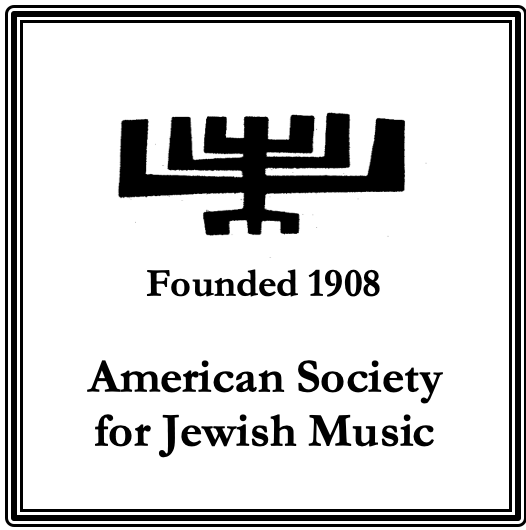


concert
lecture
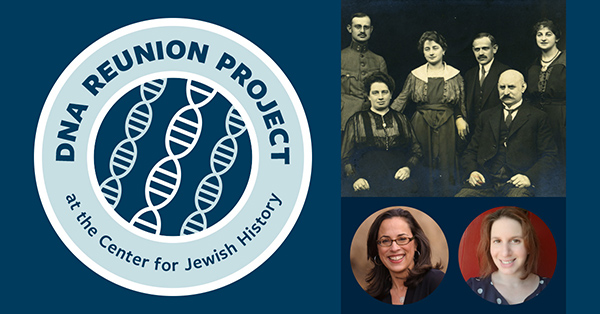
Interpreting Your Jewish DNA Test Results – Live on Zoom
DNA has the potential to be an essential and revolutionary genealogical tool, especially for Jewish testers facing roadblocks in their paper trails, including those affected by the Holocaust. The Center for Jewish History has recently launched the DNA Reunion Project, which provides free commercial DNA testing to Holocaust survivors and their children. If you've just taken a DNA test or are considering it, project co-founders Dr. Adina Newman and Jennifer Mendelsohn will walk you through how to decipher your results without getting tripped up by common mistakes. (Why does it say I have so many matches? What do all the numbers mean? Which of these people should I reach out to?) You'll learn techniques that will help you work effectively with DNA to expand your family tree -- and connect with new relatives.
Ticket Info: Pay what you wish; register here for a Zoom link
Presented by:

lecture
film
Heimat is a Space in Time – In-Person Event
Note: the film is 218 minutes and will be shown without intermission. Join us at 5:30 PM for a brief reception. The screening will begin promptly at 6:00 PM.
In Heimat Is a Space in Time (Germany, 2019), German filmmaker Thomas Heise shares the stories of three generations of his family, in their own words.
Heise sets the tone early, reading an anti-war essay written in 1912 by his grandfather Wilhelm, when he was a schoolboy. The director uses the same matter-of-fact, uninflected tone throughout the film – as he reads letters and notes from relatives who lived through the horrors of the First World War, Nazi Germany, and then life in Communist East Germany and the fall of the Berlin Wall.
Heimat is a Space in Time defies easy description. Heise offers no context, no talking heads, no analysis. Yet this unadorned approach, coupled with the potent imagery accompanying the words, is one of the documentary’s greatest strengths. One particularly memorable sequence involves Heise’s grandparents, a “mixed” Jewish-Gentile couple living in Vienna during the Nazi era. Their letters capture the increasing measures taken against Jews: banned from buses, losing access to coal ration cards, and lastly being forced to a concentration camp in Poland. All the while, as Heise reads, lists with the names of Jews slated for deportation scroll by on the screen for nearly half an hour.
Clearly influenced by his own previous work (much of it banned in the former East Germany, where he lived until the fall of the Berlin Wall), Heimat is the culmination of Heise’s career. It is an understated epic that brilliantly marries the written word, image, and sound design. The unspoken message is that the past, even as those who remember it slip away, remains with us.
About the Filmmaker
Thomas Heise was born in East Berlin. He worked as a directors' assistant at DEFA, the East German state film production enterprise, and studied at the Konrad Wolf Academy for Film and Television before dropping out to produce his own documentary projects, none of which were screened in the GDR before the fall of the Berlin Wall. Today, his over 20 documentary features and shorts include his award-winning Halle-Neustadt trilogy: Jammed: Let's Get Moving (92), New Town: The State of Things (00), and Children. As Time Flies (07). Heimat is a Space in Time (19) is his latest film.
Ticket Info: $10 general; $5 LBI/CJH/Partner Members, Students, Seniors; register at lbi.org/events/heimat-is-a-space-in-time/
Presented by:

film
book club
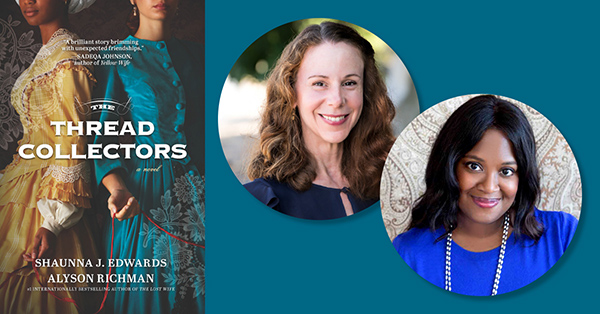
People of the Book Club: The Thread Collectors – Live on Zoom
Featuring Authors Alyson Richman & Shaunna Edwards
Go behind the stories and peer into the archives at the CJH book discussion, led by Lauren Gilbert, Senior Manager for Public Services at the Center for Jewish History. This session will feature a discussion of The Thread Collectors,co-written by internationally bestselling author Alyson Richman and debut author Shaunna J. Edwards, who have come together to collaborate on a rich historical novel set during the Civil War. The book follows two women, one Black and yearning for freedom in New Orleans, the other a Jewish abolitionist in New York. We will look at some documents in the Center’s collections that are connected to the Civil War, and we will be joined by the authors for a presentation and Q&A after the discussion.
Participants will need to obtain their own copy of the book to read in advance.
NOTE: This is an interactive book discussion for all participants, not a lecture, so space is limited.
Ticket Info: Pay what you wish; register here for a Zoom link
Presented by:

book club
film and discussion
Eine Frau – In-Person Event
In Eine Frau (Germany, 2021), filmmaker Jeanine Meerapfel follows the traces of a woman and her life from France to Germany to exile in Argentina, reconstructing the various stages of exile and uncertainty like an archaeologist. Memories and passages from letters merge into the touching narrative of several broken biographies. At the same time, the director reflects on the fragmentary nature of memory. “What is remembered, what is forgotten? And why?”
Eine Frau had its world premiere at the 36th Mar del Plata International Film Festival in Argentina. In 2022, it was shown at numerous film festivals in Europe – including the Thessaloniki Documentary Festival and DOK.fest Munich. It opened the Jewish Film Festival Berlin | Brandenburg (JFBB) and won the prize for intercultural dialogue there.
Meerapfel will join us for a discussion of the film and a light reception after the screening.
About the Filmmaker
Jeanine Meerapfel is a filmmaker, screenwriter and producer. Born in Buenos Aires, Argentina, she attended the city's school of journalism before going on to work as an editor and freelance journalist. From 1964 to 1968, she studied at the Film Institute, Hochschule für Gestaltung, Ulm, Germany, where she was taught by Alexander Kluge and Edgar Reitz. Meerapfel shot her first motion picture, Malou, in 1980. This was followed by award-winning documentary and feature films such as In the Country of my Parents (1981), Amigomío (1995), and many others.
Meerapfel worked as a Professor at the Academy of Media Arts in Cologne, Film Department, from 1990 to 2008. In 2012, her feature film The German Friend, an Argentine-German co-production, was released in cinemas. Together with Floros Floridis, she produced the audiovisual essay Confusion / Diffusion in 2015. In 2019, she also produced together with Floros Floridis the audiovisual essay Moving Sand / Topos. In March 2020, Meerapfel was awarded the Federal Cross of Merit 1st Class for her success as a filmmaker and author as well as her commitment to human rights, freedom of speech and equality and diversity of cultures. In Autumn 2020, she initiated the European Alliance of Academies, an alliance of 60 art academies and institutions that stands up for the freedom of art. The German Federal Association of Film Directors (BVR) has appointed her as honorary president in February 2021. Meerapfel has been a member of the Film and Media Arts Section of the Akademie der Künste since 1998. She was the Deputy Director of this Section from 2012 to 2015. In May 2015 she was elected President of the Akademie der Künste, followed by the re-election in May 2018 and November 2021.
Prizes and awards (a selection): 1981: International Federation of Film Critics (FIPRESCI) Award in Cannes for Malou; 1985: German Film Critics' Award (Deutscher Kritikerpreis) for Melek Leaves; 1989: German Film Award and Argentine Oscar nomination for La Amiga; 2000: Female Artists' Award of the German Federal State of North Rhine-Westphalia (Künstlerinnenpreis des Landes Nordrhein-Westfalen); 2001: special award at the Argentine festival Mar del Plata for Anna's Summer; 2012: Prize of Honour at the International Film Festival Innsbruck.
More information about Meerapfel and her work can be found on her website.
Ticket Info: $10 general; $5 LBI/CJH/Partner Members, Students, Seniors; register at lbi.org/events/eine-frau/
Presented by:

film and discussion
concert
Chana Mlotek: Celebrating a Life of Yiddish Song – In Person Event & Livestreamed on Zoom
Musicologist, song collector, and writer Chana Mlotek, the longtime YIVO Music Archivist, played a key role in crafting the historical memory of Yiddish songs in our time. Nobel laureate Issac Bashevis Singer called Mlotek and her husband Yosl the “Sherlock Holmeses of Yiddish folk songs” for their work uncovering the origins and history of Yiddish songs. Chana took a leading role in this research which she and Yosl published in over 40 years of columns in the Yiddish newspaper the Forverts. Through a collection of popular song books Mlotek made hundreds of Yiddish songs accessible to a broad audience of musicians from amateurs to professionals.
Join YIVO for an evening of Yiddish music celebrating Chana’s memory. Performances will feature Chana’s son Zalmen Mlotek as pianist and music director, family members Avram Mlotek, Elisha Mlotek, Hillel Yosl Ziskind Mlotek, Lee Mlotek, Moish Mlotek, Ravi Mlotek, Sarah Mlotek Dar, Marissa Mlotek Schonbrun and special guests Joanne Borts, Sarah Gordon, Elmore James, Daniella Rabbani, Eleanor Reissa, Lorin Sklamberg, and Steven Skybell.
This event is part of Carnegie Hall’s season-long exploration of the many contributions that women have made to the world of music.
Ticket Info: Free; register at yivo.org/Chana-Mlotek
Presented by:

concert
panel discussion
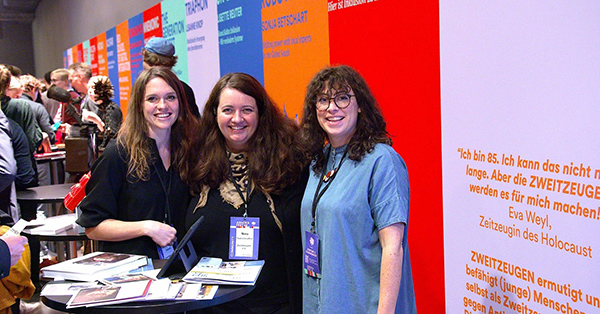
Conversation with Zweitzeugen – Live on Zoom
Join us as we chat with winners of the 2023 Obermayer Awards. Learn more about the work, perspectives, and personal motivations of these inspiring people. We'll show a brief film about their work, have an in-depth conversation facilitated by Widen the Circle Executive Director Joel Obermayer, and invite questions from the audience.
Zweitzeugen e.V. (Secondary Witnesses) turns young people into “witnesses” by teaching them the life stories of Holocaust survivors. Zweitzeugen has worked with 37 survivors to date, gathering their stories in great depth and sharing them through multifaceted workshops and various media. The workshops help students as young as 10 develop empathy and an emotional connection with the survivors, as well as stronger perspective on prejudice and hate in the world today.
Join us as we speak with Ruth-Anne Damm, founder, and Nina Taubenreuther, managing director, Zweitzeugen (Secondary Witnesses) e.V.
Ticket Info: Free; register at lbi.org/events/obermayer-zweitzeugen/
Presented by:

panel discussion
exhibit opening
Unpacking Exile – In-Person Event
Join us for a viewing of our new exhibit, Unpacking Exile, a meeting with curators, and a light reception.
After decades of collecting, preserving, curating, and providing access to its rich archives, the LBI is responding to the passing of the survivor generation with a podcast focused on storytelling. Each episode of Exile tells the story of someone forced to grapple with the loss of home, culture, language, security, or family due to Nazi persecution.
In this exhibition, we present eight of the twelve stories from Exile alongside a selection of the archival sources that preserve them.
Ticket Info: $10 general; $5 LBI/CJH/Partner Members, Students, Seniors; register at https://www.lbi.org/events/unpacking-exile/
Presented by:

exhibit opening
concert
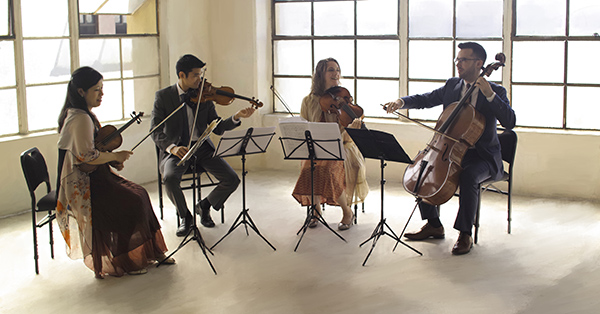
Beatrice Diener Annual Ensemble-in-Residence Concert
Continuing our exploration of the contributions made by Jewish composers to modern music, Stern College for Women and the Momenta Quartet present works by Pulitzer Prize winning composer Mario Davidovsky, MacArthur Fellowship recipient Meredith Monk, Matthew Greenbaum and David Glaser:
Matthew Greenbaum: More Venerable Canons (2013)
David Glaser: String Quartet No. 5, (2022)
Mario Davidovsky (1934-2019): Synchronisms No. 9 (1988) for violin and electronic sounds
Meredith Monk: Stringsongs (2005)
Ticket Info: General admission $10, Students/seniors $5 YUM/CJH members; YU faculty/staff/students with ID free. Tickets available at eventbrite.com
Presented by:

concert
lecture and discussion
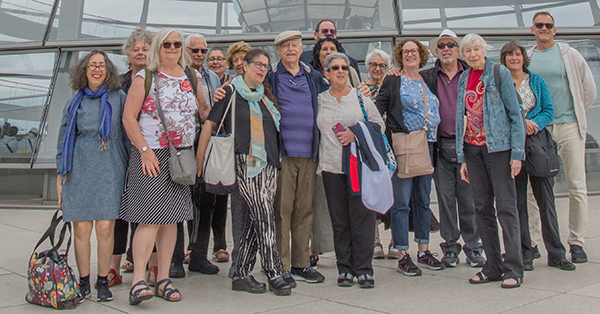
The Kindertransports: The KTA, the 80th Year Commemorative Journey, and New Research – In-person & Live on Zoom
Speakers: Melissa Hacker, Wendy Henry, and Dr. Amy Williams
From December 1st, 1938, through September 1st, 1939, nearly 10,000 mostly Jewish children traveled from Nazi Germany, Austria, Czechoslovakia, Poland, and Danzig to the United Kingdom without their parents. This rescue mission became known as the Kindertransport. In 1990, more than 50 years later, a group of Kindertransport survivors in New York City came together to establish the Kindertransport Association (KTA - www.kindertransport.org). This unique volunteer-run organization was founded not solely for survivors, but as an intergenerational group with the missions of connecting these child Holocaust survivors and descendants, educating the next generations on the Kindertransports as an important part of Holocaust history, and supporting and advocating for children at risk today, especially refugees and those without parents.
In 2019, KTA president Melissa Hacker, whose mother fled Vienna on a Kindertransport in January 1939, created and organized an 80th-year commemorative journey. Over two weeks four Kindertransport survivors, now in their late 80s and early 90s, returned to the countries they fled, accompanied by fourteen members of the second generation. Traveling by train and ferry, the travelers traced the Kindertransport journey, visiting memorials, learning from scholars, and conducting family research along the way. Melissa, a filmmaker, will discuss the trip and show excerpts from 256,000 Miles From Home, a new film she has just finished about this trip. She made her directing debut with the documentary My Knees Were Jumping; Remembering The Kindertransports, the first film made on the Kindertransports, which was shortlisted for Academy Award nomination. Melissa consulted on the 2018 exhibit Rescuing Children on the Brink of War, jointly presented by Yeshiva University Museum and Leo Baeck Institute and provided material for Without a Home: Kindertransports from Vienna, a 2021 exhibit at the Vienna Jewish Museum.
Wendy Henry, a JGSNY member and a longtime member of the KTA, will speak about her experiences on the trip. Wendy found family photographs she had never seen before in archives in Berlin and met in London with a member of the Schlesinger family who created the hostel where her mother lived. Wendy's mother, who was born in Berlin, became an early childhood educator and began working at hostels in Britain with child Holocaust survivors before emigrating to the United States.
Dr. Amy Williams, who spoke with the Kindertransport Journey travelers at the Wiener Holocaust Library in London, will talk about her Kindertransport research. She recently completed her PhD in History at Nottingham Trent University, where she is a part-time lecturer. Her thesis, Memory of the Kindertransport in National and Transnational Perspective, is a comprehensive examination of the different national and international memories of the Kindertransport. Dr. Williams is writing a book on the Kindertransports for Yale University Press and is working with other publishers to produce new publications on their history and memory. Amy works with the KTA and is in New York City for 2023 on a postdoctoral fellowship at the Zolberg Institute on Migration and Mobility at the New School.
Ticket Info:
In-person tickets: $5 general; free for CJH, Leo Baeck, KTA members; registration required here. Free for JGSNY members; RSVP to program@JGSNY.org.
Zoom registration: $5 general admission HERE; CJH members (those who have donated $50 or more in the past year) please email program@jgsny.org and mention that you are a CJH member and would like the Zoom link.
Presented by:



lecture and discussion
book talk
Diary of a Black Jewish Messiah – In-Person Event
Professor Alan Verskin will share the world into which the semi-messianic figure, David Reubeni, peddles his vision of an autonomous Jewish country in the Holy Land.; a world filled with fierce rivalries between Christian and Muslim powers, brutal conquest, and fantastic discovery.
A panel discussion will ensue with Professors Alan Verskin, Ronnie Perelis, and Francesca Bregoli followed by Q & A.
In 1524 David Reubeni, also known as the black messiah, arrived in Venice, claiming to be the ambassador of a powerful Arabian Jewish kingdom. In an era of fierce imperial rivalry, and the fantastic discovery and brutal conquest of new lands, people across the Mediterranean saw signs of an impending apocalypse and dreamed of discovering new allies to join them in the coming war. Reubeni offered a Jewish take on these expectations. With his warriors from lost Israelite tribes, he pledged to recover the Holy Land and restore Jewish pride. Numerous Jews and conversos hailed him as the messiah. Diary of a Black Jewish Messiah is the first English translation of Reubeni’s Hebrew diary.
Alan Verskin is associate professor of Jewish and Islamic History at the University of Rhode Island. His most recent book is A Vision of Yemen: the travels of a European Orientalist and his native guide.
Ticket Info: Free; register at eventbrite.com
Presented by:

book talk
book talk
Knowledge Under Siege | Irena Sendler: in Hiding – Live on Zoom
This event is a part of YIVO's series Knowledge Under Siege, which presents recent scholarship from Poland about the Holocaust and antisemitism. Each event features scholars discussing a recent book they worked on.
Anna Bikont, Sendlerowa. Wukryciu [Irena Sendler. In hiding] (Wolowiec: Czarne, 2017).
A social worker, Irena Sendler (1910-2008) belongs to the pantheon of Poland’s national heroes as a woman who saved 2500 Jewish children from the Holocaust. Numerous schools, streets, and squares bear her name. A national hero needs a biography to suit the nation, and that is how Sendler’s official biography was tailored. No historian has ever tried to verify the 2,500 figure. In fact, Sendler’s real biography does not produce the kind of hero for whom Poles erect monuments nowadays. Sendler is indeed a dazzling heroine. She would repeatedly sigh, “In occupied Warsaw it was much easier to find space in a living room for a huge tank than to find a place for one small Jewish child.” Through excavating the truth about Irena Sendler’s life, and the stories of the children she saved, Anna Bikont’s Sendlerowa. W ukryciu has also excavated numerous silenced facts pertaining to the stances and behaviors of Polish society during the war and what came after.
About the Speaker
Anna Bikont is a non-fiction writer. A member of the democratic opposition before 1989, she was a co-founder of Gazeta Wyborcza, the first independent daily in post-1989 Europe and the main newspaper in Poland. After 1989, she was a pioneer of investigative journalism in the newly-born free Polish media. In 2004 her book, “My z Jedwabnego” [We from Jedwabne], about the killing of the Jedwabne’s Jews by their Polish neighbors during World War II was part of a nationwide discussion in Poland about Polish-Jewish relations. In 2015, the English version, “The Crime and the Silence: Confronting the Massacre of the Jews in Wartime Jedwabne”, published by Farrar Straus and Giroux, was selected as one of the “100 Notable Books of the Year” by The New York Times and won one of the National Jewish Book Awards.
Ticket Info: Free; register at yivo.org/KnowledgeUnderSiege2 for a Zoom link
Presented by:

book talk
lecture
American Jewish Women and New York Opera Culture – Live on Zoom
Jewish women have worked as opera singers, vocal coaches, seamstresses, artist managers, conductors, and concert organizers; attended opera performances; purchased opera glasses, gowns, and records; read columns about opera singing in Jewish newspapers; and taught immigrant youth about the genre’s uplifting power. Synagogue sisterhoods and local chapters of Hadassah and the National Council of Jewish Women featured opera singers and repertoire at their fundraisers, and used the Met’s stage and assembly rooms to host their events.
Join YIVO for a lecture exploring Jewish women and opera in which Dr. Samantha M. Cooper (Harry Starr Postdoctoral Fellow of Judaica, Harvard University) draws on archival and press findings to shed light on the enduring relationship that Jewish women nurtured with New York opera culture from the late nineteenth through the mid-twentieth centuries. A response to this talk will be provided by Judith Pinnolis (Associate Director of Instruction and Engagement at Berklee College of Music/The Boston Conservatory at Berklee).
This event is part of Carnegie Hall’s season-long exploration of the many contributions that women have made to the world of music.
About the Speaker
Dr. Samantha M. Cooper is a historical musicologist who specializes in American Jewish cultural history. She received her Ph.D. in Historical Musicology at New York University in 2022 for her doctoral dissertation, entitled “Cultivating High Society: American Jews engaging European Opera in New York, 1880-1940.” Samantha’s research has been supported by fellowships from the Center for Jewish History, the Memorial Foundation for Jewish Culture, the Social Sciences and Humanities Research Council of Canada, P.E.O. International, the American Academy for Jewish Research, and Temple University’s Feinstein Center for American Jewish History. Her publications have appeared in the Journal of the Society for American Music, Journal of Synagogue Music, Journal of Musicological Research, Society for American Music Bulletin, and Musica Judaica. Samantha currently serves as the Associate Executive Director of the Jewish Music Forum, a Project of the American Society for Jewish Music.
Ticket Info: Free; register at yivo.org/Opera-Culture for a Zoom link
Presented by:


lecture
concert
Refuge: Art Songs by Jewish American Refugee Composers – In-Person Event
Cantor David Berger
Joyce Rosenzweig, Pianist
America has been a unique place of refuge and safety for Jews from around the world for hundreds of years. It has not always been the perfect “Goldene Medine” (Golden Land) of immigrant lore. But, in no other place in history have Jewish communities been able to thrive as they have in the United States. Each of the composers whose music is included in this CD came to the United States as refugees fleeing antisemitism. In America they found refuge. Their contributions to American-Jewish music (and American music more generally) are manifold. They give testimony to the spirit and creativity of the refugee composers who crafted them.
Ticket Info: Free; registration required at eventbrite.com
Presented by:




concert
conference
Finding Judaism across Africa and Central America – In-person and live on Zoom
Communities across Africa and Central America are returning to their Jewish roots or finding Judaism. They are seeking out religion and a connection to the larger Jewish world, many with a view towards their own Sephardi ancestry and others through an affinity for the Sephardi rites.
Representatives of these communities, documentarians, and activists will come together to share their experiences and the unique interactions of these communities and the greater Sephardi world traditions.
Featuring
Professor Tudor Parfitt, emeritus of modern Jewish studies in the University of London, senior associate fellow at the Oxford Centre for Hebrew and Judaic Studies, distinguished professor at Florida International University
Professor Shalva Weil, senior researcher at Hebrew university, distinguished professor at Jawaharlal Nehru University, research fellow at University of South Africa, prolific writer and lecturer on Indian Jews, Ethiopian Jews, lost tribes, and femicide
Joseph F. Lovett, producer, director, writer. Director of Children of the Inquisition, 2019.
Rudy Rachman, filmmaker, Lost No More
Engr. Jator Abido (Yatov ben Yisrael), Nigerian representative to the Sub Sahara Africa Jewish alliance
Patricio Serno, filmmaker and co-founder of Casa Tova, Mexico
and more.
Center for Jewish History, ASF Institute of Jewish Experience, together with Kulanu and Genie Milgrom will host scholars and leaders of these emerging communities from Africa and Central America that will discuss their connections to Judasim and their Sephardi influences.
Ticket Info: In person - $36 including lunch; register at eventbrite.com
Zoom - $15; register at us02web.zoom.us for a Zoom link
Presented by:

conference
yiddish club
YIVO Yiddish Club: The Yiddish Forward with Rukhl Schaechter – Live on Zoom
Nu, vilst redn a bisele yidish? An event for Yiddish enthusiasts the world over, the YIVO Yiddish club is an informal monthly gathering to celebrate Mame-loshn. Hosted by Shane Baker, sessions take place in English, and are liberally peppered with Yiddish. Each month Baker is joined by a different guest who discusses their work and a related Yiddish cultural theme. In the spirit of a club, sessions are held as interactive zoom meetings in which participants can see and hear one another. Each session includes ample time for audience questions, group discussion, and, time permitting, knock-down, drag-out arguments. Attendees need not know any Yiddish to attend, though some familiarity with the language is highly recommended.
This session features Rukhl Schaechter, the editor of the Yiddish Forward (Forverts) and the producer and star of the YouTube series “Yiddish Word of the Day.”
Ticket Info: Free; register at yivo.org/YiddishClub17 for a Zoom link
Presented by:

yiddish club
conversation
At Lunch Oscars Edition with Michael Schulman – Live on Zoom
Julie Salamon sits down with New Yorker staff writer and author Michael Schulman to discuss his new book, Oscar Wars: A History of Hollywood in Gold, Sweat, and Tears. Schulman is the author of the New York Times bestseller Her Again: Becoming Meryl Streep. His work has also appeared in the New York Times, Vanity Fair, The Believer, Aperture, and other publications. He lives in New York City.
Ticket Info: Free; register at ajhs.org/events/at-lunch-oscars-edition-with-michael-schulman/ for a Zoom link
Presented by:

conversation
lecture
Molly Picon as Lyricist – Live on Zoom
The inimitable Molly Picon — actress, singer, dancer and comedienne — has been celebrated for her work not only in the Yiddish theater, but also on Broadway and London stages, to say nothing of film, radio, recordings, and television. Missing from all the acclaim, however, has been any recognition of her deep accomplishment as a lyricist. She penned the words to dozens of the songs she sang, revealing her formidable skill as a writer — not merely as a clever wordsmith, but as a poet and storyteller, too. Most of these were in Yiddish , as for example “Abi gezunt,” her theme song. But some were in English, as well. And some, in Yinglish, combined the two! Musician-scholar Ronald Robboy offers a guide through Picon’s long career, choosing selected songs to show how she marshaled her writing skills not only to show off her singing to best advantage, but to flesh out characterizations and further the dramatic action of the many musicals in which she starred. Not only a performer of the first rank, musical actress Molly Picon was a lyricist of distinction.
This event is part of Carnegie Hall’s season-long exploration of the many contributions that women have made to the world of music.
About the Speaker
Musician and writer Ronald Robboy was the Senior Researcher for Michael Tilson Thomas’s Thomashefsky Project, for whom he developed the Yiddish theater musical reconstructions that MTT premiered at Carnegie’s Zankel Hall in 2005. For many years a cellist in both the San Diego Symphony and the San Diego Opera, Robboy was also active in the earliest years of the West Coast klezmer revival. In 1995 the San Diego Jewish Film Festival commissioned his original score to Molly Picon’s early silent film East and West. Other of his own music has been heard in New York, at MOMA and The Kitchen, as well as in California. A contributor to Encyclopaedia Judaica, Robboy has held research fellowships and taught at YIVO Institute and University of California–San Diego, and his writing on Yiddish film, literature, and theater music has appeared in academic journals and arts magazines. He has recently completed scholarly studies on Molly Picon and on Yiddish theater composer Abraham Ellstein.
Ticket Info: Free; register at yivo.org/Picon-Lyricist for a Zoom link
Presented by:

lecture
lecture
Amid Conflict and Distress: Exploring the Remnants of Jewish Heritage in Syria and Lebanon – Live on Zoom
The Jewish communities of Syria and Lebanon are among the most ancient in the diaspora, with their origins often attributed to the era of King David. This class will explore the history of these communities, alongside the development of unique cultural traditions from Baqashot to the Aleppo Codex. Drawing from Daniel’s own experiences and photographic content, this class also focuses on the contemporary politics and challenges surrounding Jewish heritage in the region - with recent footage from, among other sites: the Jewish quarter of Damascus, Aleppo’s Old City and the Beirut Jewish cemetery.
About the Speaker
Daniel Herszberg has visited over 190 countries and has recently traveled around Syria and Lebanon, with a particular focus on researching and documenting Jewish heritage sites. Daniel is currently reading for his DPhil (PhD) in Socio-Legal Studies at the University of Oxford and has previously completed an MPhil in Heritage Studies from the University of Cambridge.
Ticket Info: Free; register at us02web.zoom.us for a Zoom link
Presented by:

lecture
book talk
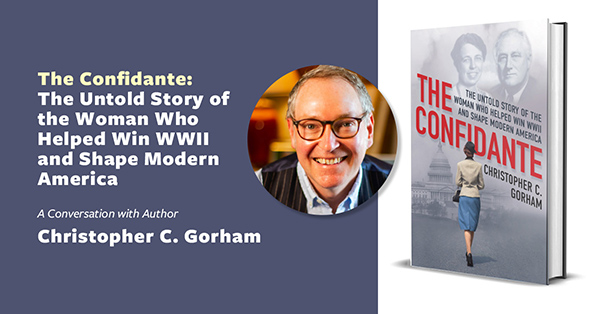
A Hungarian Jewish immigrant with only a high school education, Anna Marie Rosenberg was FDR’s special envoy to Europe in World War II, was among the first Allied women to enter a liberated concentration camp, and stood in the Eagle’s Nest, Hitler’s mountain retreat, days after its capture. She was a key figure behind national policies critical to America winning the war and prospering afterwards, guiding the direction of the Manhattan Project and the G.I. Bill of Rights. In this first-ever biography of Rosenberg, who was dubbed by Life Magazine “the most important woman in the American government,” Christopher C. Gorham affords her the recognition she so richly deserves.
The author will be in conversation with Lauren Gilbert, Senior Manager for Public Services at the Center for Jewish History.
Ticket Info: Pay what you wish; register here for a Zoom link
Presented by:

book talk
book talk
Summer Camp and Jewish Culture in Postwar America – Live on Zoom
In the decades directly following the Holocaust, American Jewish leaders debated how to preserve and produce Jewish culture, fearful that growing affluence and suburbanization threatened the future of Jewish life. Many communal educators and rabbis pinned their hopes on residential summer camps for Jewish youth: institutions that sprang up across the U.S. as places for children and teenagers to socialize, recreate, and experience Jewish culture. Camp life was shaped both by adults’ fears, hopes, and dreams about the Jewish future as well as children and teenagers own desires and interests.
Focusing on the lived experience of campers and camp counselors, Sandra Fox’s new book, The Jews of Summer: Summer Camp and Jewish Culture in Postwar America, explores how a cultural crisis birthed a rite of passage that remains a significant influence in American Jewish life. Join YIVO for a discussion with Fox about this new book led by Philissa Cramer (Jewish Telegraphic Agency).
About the Speakers
Sandra Fox is visiting assistant professor of Hebrew Judaic Studies and Director of the Archive of the Jewish Left Project at New York University, and founder and executive producer of the Yiddish-language podcast Vaybertaytsh: A Feminist Podcast in Yiddish.
Philissa Cramer is the Jewish Telegraphic Agency's editor in chief. Prior to joining JTA in 2020, she was a founder and editor at Chalkbeat, the nonprofit news organization covering education. She is a graduate of Brown University.
Ticket Info: Free; register at yivo.org/Summer-Camp for a Zoom link
Presented by:

book talk
lecture
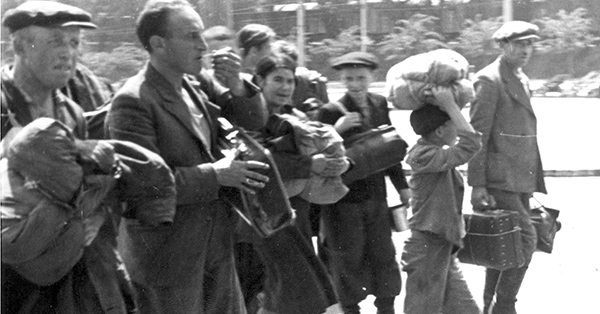
Family History Today: Polish Jews in the USSR During WWII - Live on Zoom
When the “Ribbentrop – Molotov pact” divided Poland between the Soviet Union and Germany in 1939, the Polish territories annexed to the Soviet Union had a Jewish population of approximately two million. About 400,000 residents of these territories, many of them Jews, were deported to “special settlements,” mostly in Siberia. Additionally, 250,000 to 300,000 Jewish refugees from German-occupied western Poland fled to the Soviet Union after the war broke out. In this lecture, Serafima Velkovich, Head of the Family Roots Research Section at the Yad Vashem Archives, will provide an overview of the route and the fate of Jewish refugees from Poland who spent the war years in the USSR, and their post-war search for a new home. She will also explain how you can research the experiences and fates of family members who were among these refugees.
Ticket Info: Pay what you wish; register here for a Zoom link
Presented by:

lecture
concert
More Forbidden Music: Jewish Composers Banned by the Nazis – In-Person Event
The Exilarte Center in Vienna works to rediscover musical treasures of the 20th Century that were suppressed by the Third Reich. This concert features a selection of music whose composers were branded as 'degenerate' and is being rediscovered thanks to Exilarte's work. Composers featured include Julius Bürger, Hals Gál, Andre Singer, Gustav Lewi, Walter Arlen, Vally Weigl and Erich Wolfgang Korngold. Performances will be by the musicians of Exilarte in collaboration with students from the Mannes College of Music.
Ticket Info: Free; registration required at yivo.org/More-Forbidden-Music
Presented by:




concert
lecture
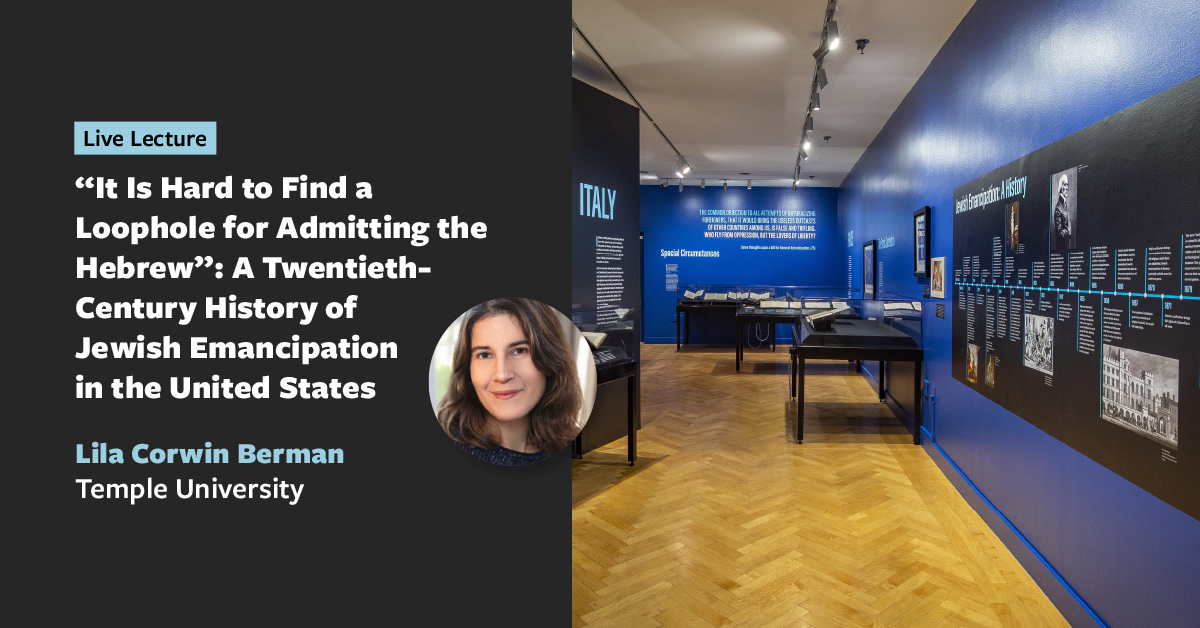
In-person Event
Historians have long assumed that Jews in the United States were simply emancipated upon arrival. Yet this claim has occluded ongoing struggles for emancipation that endured throughout the twentieth century and that placed American Jews in contingent relationships with other groups seeking the full rights of citizenship. Bereft of the history of American Jewish emancipation, a whole field of study has been perilously isolated from modern Jewish history and from US history. In this talk, Lila Corwin Berman (Temple University) examines history and the consequences of its neglect.
About the Speaker
Lila Corwin Berman holds the Murray Friedman Chair of American Jewish History at Temple University, where she directs the Feinstein Center for American Jewish History. Her most recent book, The American Jewish Philanthropic Complex: The History of a Multibillion-Dollar Institution, has been awarded the 2021 Ellis W. Hawley Prize from the Organization of American Historians and the Saul Viener Book Prize from the American Jewish Historical Society. Her articles have appeared in several scholarly publications, including the American Historical Review, Journal of American History, and AJS Review, and she has written guest columns for the Washington Post, the Forward, the Chronicle of Higher Education, and the Chronicle of Philanthropy. She is currently working on a new book called “America’s Jewish Question” about the inclusions and exclusions of American liberalism.
This lecture is part of the Sid Lapidus Lecture Series, programs created in partnership with the exhibition How Jews Became Citizens: Highlights from the Sid Lapidus Collection. Click here for information about the exhibit.
The exhibit and program have been made possible by the generous support of Sid and Ruth Lapidus, the National Endowment for the Humanities, the New York State Council on the Arts with the support of the Office of the Governor and the New York State Legislature, and the New York City Department of Cultural Affairs in partnership with the City Council.
Ticket Info: $8 general; $5 members, seniors, students; advance registration required at nxt.blackbaud.com
Presented by:

lecture
conversation
At Lunch with Brian Lehrer – Live on Zoom
Julie Salamon (NY Times & Wall Street Journal) sits down with WNYC and podcast host Brian Lehrer. Lehrer is host of The Brian Lehrer Show, WNYC Radio’s daily call-in program, covering politics and life, locally and globally. The live show airs weekdays from 10am-noon on WNYC 93.9 FM, AM 820 and wnyc.org. He also hosts Brian Lehrer: A Daily Politics Podcast. The New York Times has called Lehrer a “master interviewer.” David Remnick, editor of The New Yorker, says Lehrer is “the equivalent of Lebron James or Steph Curry in the interviewing game.” New York Magazine put him on its “dream dinner party guest list.” The Brian Lehrer Show was recognized with a 2007 George Foster Peabody Award for “Radio That Builds Community Rather Than Divides.” Political guests have ranged from Barack Obama and Alexandria Ocasio-Cortez to Mitch McConnell and Boris Johnson, and beyond. Lehrer has been a questioner in televised New York City Mayoral Debates for every election since 1997. Lehrer is also a commentator on local and national issues on television and in print. He has appeared on CNN, MSNBC, Fox News, C-SPAN, NY1, and The Colbert Report on Comedy Central. He has written op-ed pieces for publications including The New York Times, The Daily News, Newsday, and Slate. In addition to the Peabody, Lehrer has won numerous awards, including seven Associated Press New York Broadcasters “Best Interview” Awards since 2000 and two “Best Talk Show” awards from The Garden State Journalists Association. Lehrer holds master’s degrees in public health from Columbia University and journalism from The Ohio State University and a bachelor’s in music and mass communications from the State University of New York at Albany.
Ticket Info: Free; register at ajhs.org/events/at-lunch-with-brian-lehrer/ for a Zoom link
Presented by:

conversation
curator's tour
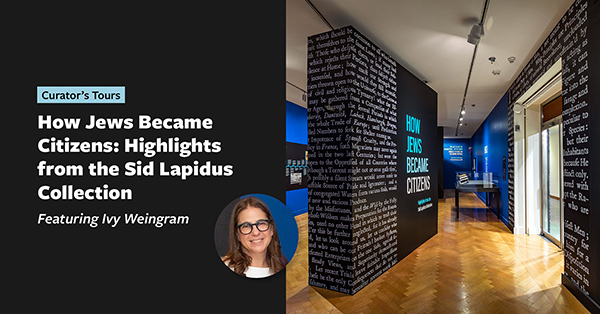
What does citizenship mean to you? What are the rights and responsibilities that come with citizenship?
Join curator Ivy Weingram for a one-hour in-person tour in which she addresses these meaningful questions in the special exhibition, How Jews Became Citizens: Highlights from the Sid Lapidus Collection. The Lapidus collection tells the complex, ongoing story of the Jewish people’s path to emancipation—the process through which Jews obtained rights—in Europe, across centuries. Read more about the exhibition here.
Please note that this tour is not available on Zoom.
The exhibit and program have been made possible by the generous support of Sid and Ruth Lapidus, the National Endowment for the Humanities, the New York State Council on the Arts with the support of the Office of the Governor and the New York State Legislature, and the New York City Department of Cultural Affairs in partnership with the City Council.
Ticket Info: Pay what you wish; registration required at nxt.blackbaud.com
Presented by:

curator's tour
book talk
Irena Klepfisz: Her Birth and Later Years: New and Collected Poems, 1971-2021 – Live on Zoom
For fifty years, Irena Klepfisz has written powerful, searching poems about relatives murdered during the war, recent immigrants, a lost Yiddish writer, a Palestinian boy in Gaza, and various people in her life. A trailblazing lesbian poet, child Holocaust survivor, and political activist whose work is deeply informed by socialist values, Klepfisz is a vital and individual American voice. Klepfisz's new book, Her Birth and Later Years: New and Collected Poems, 1971-2021, is the first and only complete collection of her work.
Join The Workers Circle and YIVO for an online conversation with Irena Klepfisz and Julie Enszer celebrating this new book.
About the Speakers
Irena Klepfisz (Brooklyn, NY) recently retired after 22 years of teaching Jewish Women's Studies at Barnard College. She is the author of four books of poetry including Periods of Stress, Keeper of Accounts, Different Enclosures, A Few Words in the Mother Tongue, and Dreams of an Insomniac (prose). She is one of the foremost advocates of the Yiddish language. A co-editor of The Tribe of Dina: A Jewish Women's Anthology, her work has appeared in In Geveb, Sinister Wisdom, Jewish Currents, Conditions, The Manhattan Review, The Village Voice, The Georgia Review, Prairie Schooner, Chicago Review, and more.
Julie R. Enszer, PhD, is a scholar and a poet. Her scholarship is at the intersection of U.S. history and literature with particular attention to twentieth century U.S. feminist and lesbian histories, literatures, and cultures. She edits and publishes Sinister Wisdom, a multicultural lesbian literary and art journal, and a regular book reviewer for the The Rumpus and Calyx. In 2022, she published two books; OutWrite: The Speeches that Shaped LGBTQ Literary Culture with Rutgers University Press and Fire-Rimmed Eden: Selected Poems by Lynn Lonidier with Nightboat Books. Her scholarly book manuscript, A Fine Bind, is a history of lesbian-feminist presses from 1969 until 2009. Her scholarly work has appeared or is forthcoming in Southern Cultures, Journal of Lesbian Studies, American Periodicals, WSQ, and Frontiers.
Ticket Info: Free; register at yivo.org/Irena-Klepfisz-2023 for a Zoom link
Presented by:


book talk
concert
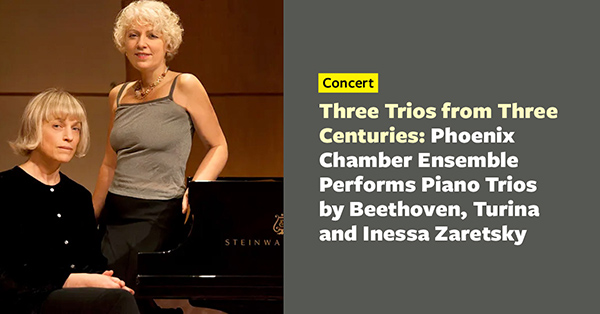
Join Phoenix Chamber Ensemble pianists Vassa Shevel and Inessa Zaretsky and regular guest artists Raman Ramakrishnan on cello and Anna Elashvilion violin for Beethoven’s “Archduke” Piano Trio, Op.97; Joaquin Turina’s Piano Trio, Op.76; and Inessa Zaretsky’s “Traveling Light” Piano Trio.
Made possible by the Stravinsky Institute Foundation through the generous support of the Blavatnik Family Foundation.
Ticket Info:
In-person: $15 general; $10 members, seniors; advance purchase required
On YouTube: Pay what you wish
Presented by:

concert
book talk
Knowledge Under Siege | Breaking the Frame: New School of Polish-jewish Studies – Live on Zoom
This event is a part of YIVO's series Knowledge Under Siege, which presents recent scholarship from Poland about the Holocaust and antisemitism. Each event features scholars discussing a recent book they worked on.
Breaking the Frame. New School of Polish-Jewish Studies, edited by Irena Grudzinska Gross, Konrad Matyjaszek, introduced by Jan T. Gross (Berlin: Peter Lang Verlag, 2022).
“Breaking the Frame: New School in Polish-Jewish Studies” edited by Irena Grudzinska Gross and Konrad Matyjaszek is a collection of the most incisive texts of the New School of Polish-Jewish Studies, a direction of critical thinking in Polish-Jewish history and in Holocaust studies. In facing the Holocaust, the New School opposes two intellectual frames. One of them is the framework of Polish nationalism, built around the myth of Polish innocence that either conceals or justifies centuries-old antisemitism. The other is the post-Cold War conviction that the history of Polish Christians’ anti-Jewish violence is an obstacle to Poland’s Western future and that the history of that structural violence should be told as the country’s harmonious and tolerant past. The authors of the volume reformulate the terms and conditions of discourses in history, cultural and literary studies, and other fields of research. Addressing the anti-Jewish violence perpetrated through Polish history, the book is founded on a thought that past violence can be overcome and prevented in the future if it is documented and worked through – intellectually as well as emotionally – together with its cultural context.
About the Speakers
Irena Grudzinska Gross is Professor in the Institute of Slavic Studies of the Polish Academy of Science in Warsaw. Previously, she taught at Emory, New York, Boston and Princeton Universities. She is a 2018 Guggenheim Fellow. She researches issues of war and violence in modern and contemporary European literature. Among other books, she has published “The Scar of Revolution: Custine, Tocqueville and the Romantic Imagination” (1995); “Czeslaw Milosz and Joseph Brodsky: Fellowship of Poets” (2009); and, with Jan T. Gross, “Golden Harvest: Reflections on Events at the Periphery of the Holocaust” (2012).
Konrad Matyjaszek is an architect and cultural studies scholar working at the Institute of Slavic Studies of the Polish Academy of Sciences in Warsaw. His work focuses on architecture and urban spaces, Polish discourses of antisemitism and narratives of urban modernization. He published “Produkcja przestrzeni zydowskiej w dawnej i wspolczesnej Polsce” [The production of Jewish space in premodern and contemporary Poland] (2019), a history of Poland’s urban Jewish spaces and of cultural and spatial repression that defined their shape throughout centuries.
Ticket Info: Free; register at yivo.org/KnowledgeUnderSiege1 for a Zoom link
Presented by:

book talk
curator's tour
Final Curator’s Tour of From A(gam) to Z(aritsky) – In-Person Event
Collections Curator Bonni-Dara Michaels will explore the character of Israeli art and the personal relationships between artists, collectors, and donors on this special tour of the exhibition, From A(gam) to Z(aritsky): Highlights of Israeli Art from Yeshiva University Museum’s Collection. (Exhibition closes on February 28, 2023.)
Masks are required for this tour.
Ticket Info: Free; advance reservation required at rsvp@yum.cjh.org
Presented by:

curator's tour
concert
Gallery Concert: Israeli Art & Song – from A to Z – In-Person Event
Join Elad Kabilio of MusicTalks for a program of music ranging from Klezmer to classical, from piyyut and poetry to Israeli pop music. Elad, on cello, will be accompanied by virtuoso clarinetist Avigail Malachi and mezzo soprano Inbar Goldmann as they tour the exhibition From A(gam) to Z(aritsky): Highlights of Israeli Art from Yeshiva University Museum’s Collection.
Please note: Tickets must be purchased in advance.
Ticket Info: $15 general; $10 YUM members, students, seniors; advance purchase required at eventbrite.com
Presented by:

concert
lecture
Spinoza, Hegel, and Martin Luther King Jr.: On Political Change – In-Person Lecture & Livestreamed on Zoom
In this lecture inspired by realist insights of the scholar and philosopher David Baumgardt, Jason Maurice Yonover explores – and offers a new historical narrative of – the idea that political progress only comes through struggle. Yonover argues that Georg Wilhelm Friedrich Hegel’s predecessors, Baruch Spinoza and even Salomon Maimon, help to shed light on the realist view Hegel takes here. For Hegel then, someone who institutes a new and better social order does so rightfully, despite even violence. Yonover also argues, with unpublished writings by Martin Luther King Jr. on Hegel in hand, that both Hegel and King agree friction is essential to progress, but disagree on what such friction should look like, as for King nonviolence is an especially suitable engine of social improvement. In short: on King’s view, one must indeed crack eggs in order to make an omelet, and yet some techniques for cracking should be disvalued.
If you would like to attend this program virtually, please select the "Virtual Admission" option when reserving tickets on Eventbrite.
About the Speaker
Jason Maurice Yonover is a historian of political thought, and of philosophy more broadly, whose work bridges several contexts – in this case the Jewish, German, and Black radical traditions. He is currently the Desai Family Postdoctoral Fellow in the Department of Philosophy at Princeton University, and has presented his research at institutions across the US and Europe. He is also the most recent winner of the American Philosophical Association’s triennial Baumgart Memorial Fellowship, which is the occasion for this event.
Ticket Info: $10 general; $5 members, seniors, students. Advance registration required at lbi.org/events/spinoza-hegel-king/
Presented by:

lecture
lecture
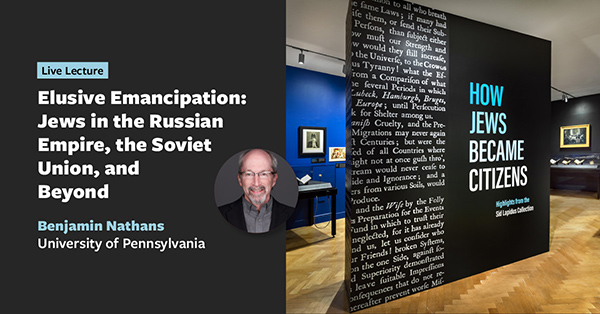
In-person Event
The majority of the world’s Jews entered the twentieth century unemancipated. Most of that majority lived in what is today Ukraine, Belarus, and Lithuania, at the time part of the Russian Empire. Join Benjamin Nathans (University of Pennsylvania) as he explores why emancipation came so late to the empire of the tsars, what role Jews played in its arrival, and how the Bolshevik Revolution recast the meaning of emancipation itself, with consequences that are still with us today.
About the Speaker
Benjamin Nathans is the Alan Charles Kors Associate Professor of History at Penn, specializing in modern Russia, the Soviet Union, modern Jewish history, and the history of human rights. He is author of the prizewinning Beyond the Pale: The Jewish Encounter with Late Imperial Russia, which has been translated into Hebrew and Russian, and co-editor, most recently, of the collective volume From Europe’s East to the Middle East: Israel’s Russian and Polish Lineages. His book To the Success of Our Hopeless Cause: The Many Lives of the Soviet Dissident Movement is forthcoming with Princeton University Press. He chaired the international committee of scholars hired by Ralph Appelbaum Associates, the New York-based museum design firm, to help create the Jewish Museum and Tolerance Center in Moscow, which opened in 2012. His essays have appeared in The Economist, The Washington Post, The New York Review of Books, The Times Literary Supplement, and other venues.
This lecture is part of the Sid Lapidus Lecture Series, programs created in partnership with the exhibition How Jews Became Citizens: Highlights from the Sid Lapidus Collection. Click here for information about the exhibit.
The exhibit and program have been made possible by the generous support of Sid and Ruth Lapidus, the National Endowment for the Humanities, the New York State Council on the Arts with the support of the Office of the Governor and the New York State Legislature, and the New York City Department of Cultural Affairs in partnership with the City Council.
Ticket Info: $8 general; $5 members, seniors, students; advance registration required at nxt.blackbaud.com
Presented by:

lecture
yiddish club
YIVO Yiddish Club: Theater and Storytelling With Eleanor Reissa – Live on Zoom
Nu, vilst redn a bisele yidish? An event for Yiddish enthusiasts the world over, the YIVO Yiddish club is an informal monthly gathering to celebrate Mame-loshn. Hosted by Shane Baker, sessions take place in English, and are liberally peppered with Yiddish. Each month Baker is joined by a different guest who discusses their work and a related Yiddish cultural theme. In the spirit of a club, sessions are held as interactive zoom meetings in which participants can see and hear one another. Each session includes ample time for audience questions, group discussion, and, time permitting, knock-down, drag-out arguments. Attendees need not know any Yiddish to attend, though some familiarity with the language is highly recommended.
This session features Eleanor Reissa, a Tony-nominated director; Broadway, film, and television actress; a prize-winning playwright, and an international singing artist. Former artistic director of the Folksbiene Yiddish Theater, a storyteller in English and Yiddish, she has sung in every major musical venue in New York and in festivals around the world. Current film/tv includes THE PLOT AGAINST AMERICA, DEAD CITY (a sequel to THE WALKING DEAD), and THE ZWEIFLERS (a new German television series). She hosts Yale University’s podcast: “Those Who Were There: Voices from the Holocaust” and is the audio guide narrator of “What Hate Can Do”, the latest exhibit at the Museum of Jewish Heritage. Her book, The Letters Project: A Daughter’s Journey was recently published by Post Hill Press.
Ticket Info: Free; register at yivo.org/YiddishClub16 for a Zoom link
Presented by:

yiddish club
curator's tour

What does citizenship mean to you? What are the rights and responsibilities that come with citizenship?
Join curator Ivy Weingram for a one-hour in-person tour in which she addresses these meaningful questions in the special exhibition, How Jews Became Citizens: Highlights from the Sid Lapidus Collection. The Lapidus collection tells the complex, ongoing story of the Jewish people’s path to emancipation—the process through which Jews obtained rights—in Europe, across centuries. Read more about the exhibition here.
This tour will also be offered on February 16 at 6 pm.
Please note that this tour is not available on Zoom.
The exhibit and program have been made possible by the generous support of Sid and Ruth Lapidus, the National Endowment for the Humanities, the New York State Council on the Arts with the support of the Office of the Governor and the New York State Legislature, and the New York City Department of Cultural Affairs in partnership with the City Council.
Ticket Info: Pay what you wish; registration required at nxt.blackbaud.com
Presented by:

curator's tour
conversation
Lore Segal and Uri Berliner in Conversation – Live on Zoom
Lore Segal was born in Vienna in 1928 and was educated at the University of London. A finalist for the 2008 Pulitzer Prize for Fiction, Segal has won a Guggenheim Fellowship, two PEN/O. Henry Awards, the American Academy and Institute of Arts and Letters Award, and a fellowship at the Dorothy and Lewis B. Cullman Center for Scholars and Writers. Much of her work has explored the experience of displacement and immigration, such as the novel Other People’s Houses (1964), based on her experience as a Kindertransport refugee, or Her First American (1985) a love story between a refugee from Hitler’s Europe and a witty, hard-drinking, black intellectual. NPR Correspondent Uri Berliner will engage Segal in a conversation about life, literature, and history.
About the Speakers
Uri Berliner is the Senior Business Editor at NPR, where he edits and reports on economics, technology and finance. He provides analysis, context and clarity to breaking news and complex issues. Berliner helped to build Planet Money, one of the most popular podcasts in the country.
Berliner's work at NPR has been recognized with a Peabody Award, a Loeb Award, Edward R. Murrow Award, a Society of Professional Journalists New America Award, and has been twice honored by the RTDNA. He was the recipient of a Nieman Fellowship at Harvard University. A New Yorker, he was educated at Sarah Lawrence College and Columbia University.
Berliner joined NPR after more than a decade as a print newspaper reporter in California where he covered scams, gangs, military issues, and the border. As a newspaper reporter, his feature writing and investigative reporting earned numerous awards. He started his journalism career at the East Hampton (N.Y) Star.
Lore Segal was ten years old when she left her native Vienna and went to England, where she lived with a number of foster families. After receiving her B.A. English Honors from the University of London in 1948, she went to live in the Dominican Republic until her American quota allowed her to come to New York in May 1951. Between 1968 and 1996 she taught writing at Columbia University’s School of the Arts, Princeton, Bennington College, Sarah Lawrence, the University of Illinois at Chicago, and Ohio State University from which she retired in 1996.
Segal has worked as novelist, essayist, translator, and writer of children’s books. She has received the Clifton Fadiman Medal, a Guggenheim Fellowship, the Harold U. Ribalow Prize, and a grant from the National Endowments for the Arts and Humanities. Her reviews have appeared in the New York Times Book Review and her stories in the The New Yorker. Her short story “The Reverse Bug” was included in Best American Short Stories, 1989 and was a 1990 O. Henry Prize-winner. Her stories “Other People’s Deaths” and “Making Good” were included in the O. Henry Prize Stories in 2008 and 2010, respectively.
Segal’s novels include Other People’s Houses, which was first serialized in The New Yorker, Lucinella, republished in 2009 by Melville House; and Her First American, which won an award from the American Academy and Institute of Arts and Letters.
Ticket Info: Free; register at lbi.org/events/lore-segal-and-uri-berliner-in-conversation/ for a Zoom link
Presented by:

conversation
lecture
The Holocaust in the European Context – Live on Zoom
In this talk, Susanne Heim (CJH Short-Term Research Fellow) introduces The Persecution and Murder of European Jews by Nazi Germany 1933-1945, a new, remarkable 16-volume collection of 5,000 documents providing a multifaceted look at the lives of Jews under Nazi rule. The series includes private testimonies of the victims as well as documents of the perpetrators and reports of bystanders.
About the SpeakerSusanne Heim is a historian and political scientist. She obtained her PhD and her habilitation from the Free University Berlin and, from 2005 to 2020, she coordinated this 16-volume collection. Her research topics include the history of Jewish emigration from Nazi Germany and migration and population policy in the 20th century. Her current project deals with the international refugee policy and forced emigration of Jews from Nazi-dominated Europe. Dr. Heim was a CJH Research Fellow in fall 2022.
Ticket Info: Pay what you wish; register at programs.cjh.org/tickets/holocaust-2023-01-30 for a Zoom link
Presented by:


lecture
lecture
Warriors and Mystics: Notable Figures in Iranian Jewish History – Live on Zoom
Please choose one webinar (either January 22 or January 29) to attend.
Iran's Jewish community is one of the oldest diaspora communities in the world. But is there more to those 2700 years than Queen Esther and the Islamic Revolution? This talk examines the lesser-known parts of Iran's Jewish History, a vast story of prophets, autonomous nations, divergent sects, epic poetry, and political intrigue. Through the music, languages, foods, writings, traditions, and stories of two millennia, along with their ties to neighboring and faraway communities, the Jews of Iran have forged a culture at once Persian and Jewish, with traditions and aesthetics uniquely their own. In this two-part series, we will explore notable personalities in this rich history, from over 1,500 years ago and more recently.
About the Speaker
Alan Niku is a filmmaker, writer, and scholar of Mizrahi culture from San Luis Obispo, California, based in Los Angeles. A native speaker of Persian, he spends his time learning related Jewish languages, deciphering Judeo-Persian manuscripts, and interviewing community members about their stories. He is also a musician and an amateur chef, teaches history and Jewish heritage at various levels, and seeks to educate the world about the underrepresented cultures of the Middle East through his writing and films.
Ticket Info: $11; register at us02web.zoom.us for a Zoom link
Presented by:

lecture
celebration
Kontar i Kantar: The 6th Annual New York Ladino Day – In-person event and livestreamed on Zoom
Curated by Jane Mushabac and Bryan Kirschen
Featuring
- Tony- and Grammy-nominated Broadway star Shoshana Bean
- A conversation with Michael Frank, author of One Hundred Saturdays: Stella Levi and the Search for a Lost World
- Judith Cohen, Sing Me a Story, on Sephardic Romansas
- Musical Finale, Susana Behar and guitarist Michel Gonzalez
Ladino is a bridge to many cultures. A variety of Spanish, it has absorbed words from Hebrew, Turkish, Arabic, French, Greek, and Portuguese. The mother tongue of Jews in the Ottoman Empire for 500 years, Ladino became the home language of Sephardim worldwide. While the number of Ladino speakers has sharply declined, distinguished Ladino Day programs like ours celebrate a vibrant language and heritage. These programs are, as Aviya Kushner has written in the Forward, “Why Ladino Will Rise Again.”
Since 2013, these programs have been held around the world to honor Ladino, also known as Judeo-Spanish. January 29th marks New York’s 6th Annual Ladino Day hosted by the American Sephardi Federation.
Ticket Info: $20 early bird; $35 VIP; register at eventbrite.com
Presented by:

celebration
lecture
Good Goy, Bad Goy: the Portrayal of Gentiles in Sketches From the London Yiddish Press – Live on Zoom
Gentiles often appeared in the news sections of the London Yiddish press, and sometimes they also appeared in the regular “feuilleton” section in character sketches and fiction, stories and scenes from immigrant East-End Jewish life. Many of these portrayals were humorous local scenarios and imagined tales. This talk will look at a broad section of how and where Gentile characters appear and their relationship to the Jewish immigrant.
Gentiles fix cars and do physical chores for the hapless immigrant. The wily immigrant hoodwinks the Gentile recruiting officers during the First World War. The stern Gentile gatekeeper of British government politics refuses access to the naïve immigrant wanting to help. The paternalistic English police officer gives directions to parts of London never before visited by an East-End immigrant. A proud fascist blackshirt is confused when he sees his respected Jewish neighbors in a strident communist counter-demonstration. Yet the word goy is also used by Jews describing each other: skipping the bus fare, not sharing their Yiddish newspaper, or being rude to their neighbor.
About the Speaker
Vivi Lachs is a historian of London’s Jewish East End, a Yiddishist, and a performer. She is a Research Fellow at Queen Mary University of London working on the project Making and Remaking the Jewish East End. Her book Whitechapel Noise draws new historical detail from London Yiddish poetry and song. In 2019, she was a Yiddish Book Centre translation fellow, which culminated in her latest book London Yiddishtown – a selection of stories translated from the Yiddish from the 1930s and 1940s and incorporating a new history of London’s Yiddish writers of that period. Lachs records London Yiddish songs with the bands Klezmer Klub and Katsha’nes, co-runs the Yiddish Open Mic Cafe and the Great Yiddish Parade – a marching band bringing Yiddish songs of protest back onto the streets. She also leads East End tours.
Ticket Info: Free; register at yivo.org/Good-Goy-Bad-Goy for a Zoom link
Presented by:

lecture
discussion
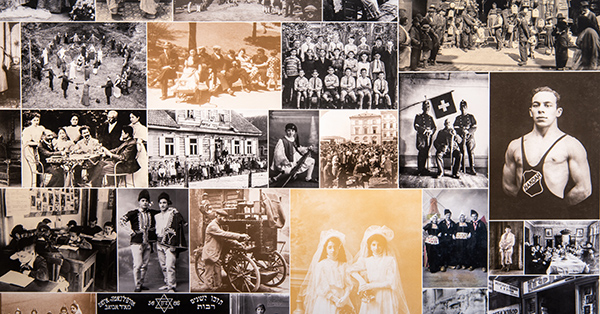
Unmasking Antisemitism
6:15 pm - Welcome Reception
7:00 pm - Panel Discussion
Widely regarded as the “oldest hatred,” antisemitism is experiencing an alarming revival in the contemporary world. The Center for Jewish History is proud to host a panel discussion on antisemitism, past and present, in conjunction with the new exhibition at the United Nations, #Fake Images: Unmask the Dangers of Stereotypes.
Join historians Dr. Jonathan Brent (YIVO Institute for Jewish Research), Jason Guberman (American Sephardi Federation), Dr. Uffa Jensen (Technical University Berlin), Dr. Pamela Nadell (American University), Dr. Gavriel Rosenfeld (Center for Jewish History and Fairfield University), and Dr. Veerle Vanden Daelen (Kazerne Dossin), as they critically analyze the origin and weaponization of antisemitic ideas, conspiracies, and images from the 19th century to the present.
A wine and cheese reception, including welcome remarks by Tracey Petersen, Manager: The Holocaust and the United Nations Outreach Programme, the Consulate General of Belgium and the Consulate General of Germany in New York, will begin at 6:15 pm. The program will start promptly at 7:00 pm. A dessert reception will follow the end of the program at 8:30 pm.
The exhibition is organized by the Holocaust and United Nations Outreach Program, Department of Global Communications, as part of the program of events marking the International Day of Commemoration in memory of the victims of the Holocaust. The exhibition is curated by Kazerne Dossin: Memorial, Museum and Research Centre on Holocaust and Human Rights (Mechelen, Belgium)and supported by the Arthur Langerman Archive for the Study of Visual Antisemitism Foundation (Berlin), the Center for Research on Antisemitism at the Technical University of Berlin, and the Belgian Ministry of Foreign Affairs. The panel discussion is a joint initiative of the Center for Jewish History, the Leo Baeck Institute, the American Jewish Historical Society, the American Sephardi Federation, and the YIVO Institute for Jewish Research.
Ticket Info:
In-person panel discussion: $20 general; $15 seniors, students; $10 CJH/Partner members; advance purchase required here
Zoom livestream of panel discussion: $5
Presented by:





discussion
book talk
City of Song: Music and the Making of Modern Jerusalem – In-Person Book Talk
The Jewish Music Forum and the YIVO Institute for Jewish Research are proud to present a presentation by Dr. Michael A. Figueroa, author of the acclaimed book, City of Song: Music and the Making of Modern Jerusalem (Oxford University Press, 2022). In this presentation, Dr. Figueroa will present on an important aspect of his research, titled: "'The iron skeleton is silent like my comrade': Israeli Songs as War Memorials."
Ticket Info: Free; advance registration required at eventbrite.com
Presented by:


book talk
panel discussion
700 Years of Vilnius, a City of Translation – Live Event & Livestreamed on Zoom
The history and geography of Vilnius are marked by linguistic pluralism, cultural variations, territorial rearrangements, and human losses that make temporal correspondence and spatial continuity hard to decipher. Since the first written records of the city in 1323, Vilnius was put on the path of translation. The existence of many languages and the sense of discontinuity point to diversity and conflict, but translation unravels the tensions, interactions, rivalries, or convergences among different points of views, knowledge and experiences of the place.
In the context of Vilnius, translation is often an outcome or response to erasure. Still, as Czeslaw Milosz pointed out, “everything would be fine if language did not deceive us finding / different names for the same thing in different times and places.” In one of his poems dedicated to his hometown, the poet construes Wilno as a city without name, underpinning its untranslatable – ‘unexpressed, untold’ – character. On the other hand, for Moyshe Kulbak, the Jewish city opens up as “the dream of a cabbalist” with a “thousand narrow doors into the universe.” Contrastingly, Avrom Sutzkver, in his threnody to Vilna, makes the town omnipresent with ‘all the cities [being transformed] into your image.’ As an act of creation, translation offers a possibility of entering Vilnius from an unknown territory; simultaneously, it frames the city within ‘unfamiliar tongues.’
In commemorating 700 years of the founding of Vilnius, Laimonas Briedis will give a presentation about the city as a form of translation, from poetic imagery and visual records to tangible geography and memory fragments. Briedis’s presentation will be followed by a discussion moderated by Jonathan Brent in which Briedis will be joined by Laima Lauckaite, Irena Grudzinska Gross, and David Roskies.
About the Participants
Laimonas Briedis is a writer and scholar of the history, literature and geographical imagination of Vilnius, Lithuania. A native of Vilnius, he has lived for most of his adult life in Vancouver (Canada) where he completed a doctoral degree in cultural geography at the University of British Columbia. His creative output stretches from charting a GIS anchored digital map of the multilingual literature of Vilnius to examining the ramifications of being bi-local; placing questions related to belonging, migration, the diaspora, translation, poetic vision and memory at the core of his work. He is the author of Vilnius: City of Strangers, reviewed by The Economist as being a “subtle and evocative book,” where “vanished civilizations and lost empires leave a city stalked by horror and steeped in wonder.” The book has been translated into several languages, including German, Chinese, Russian and Portuguese (Brazil). Laimonas is the global ambassador for the 700-year anniversary of the founding of Vilnius.
Jonathan Brent is the Executive Director of the YIVO Institute for Jewish Research in New York City. From 1991 to 2009 he was Editorial Director and Associate Director of Yale Press. He is the founder of the world acclaimed Annals of Communism series, which he established at Yale Press in 1991. Brent is the co-author of Stalin’s Last Crime: The Plot Against the Jewish Doctors, 1948-1953 (Harper-Collins, 2003) and Inside the Stalin Archives (Atlas Books, 2008). He is now working on a biography of the Soviet-Jewish writer Isaac Babel. Brent teaches history and literature at Bard College.
Laima Lauckaite, art historian and curator of exhibitions, lives in Vilnius and is currently the leading researcher at the Lithuanian Culture Research Institute. Educated at Vilnius Art Institute (MA), University of Moscow (PhD), and Zentralinstitut für Kunstgeschichte, Munich (Postdoc), her research focuses on the art history of Vilnius during the early 20th century. She initiated a study on the multicultural artistic scene of the city revealing activities of Polish, Jewish, Lithuanian, and Russian artists. Lauckaite is the author of the books: Art in Vilnius 1900-1915 (Biennial Book Prize of the Association for the Advancement of Baltic Studies in 2009), Art in Vilnius during the First World War (in Lithuanian), Rafael Chwoles: the Search for Jerusalem, and albums on iconography Vilnius. Topophilia (vol. I, II). She is the curator of the exhibition “Vilnius Forever. Dialog of Artworks and Guides to the City,” at the TARTLE Art Center in Vilnius in partnership with YIVO.
Irena Grudzinska Gross emigrated from her native Poland after student unrest of 1968. She studied in Poland, Italy and in the United States; she received her PhD from Columbia University in 1982. She taught East-Central European history and literature at Emory, New York, Boston and Princeton universities. Her books include Golden Harvest with Jan T. Gross, Oxford University Press, 2012, Czeslaw Milosz and Joseph Brodsky: Fellowship of Poets, Yale University Press, 2009, and The Scar of Revolution: Tocqueville, Custine and the Romantic Imagination, University of California Press, 1995. She edited books on literature and the transformation process in Central and Eastern Europe and published numerous book chapters and articles on these subjects in the international press and periodicals. Between 1998-2003, she was responsible for the East-Central European Program at the Ford Foundation.
David G. Roskies is the Sol and Evelyn Henkind Chair emeritus in Yiddish Literature and Culture and a professor emeritus of Jewish literature at The Jewish Theological Seminary. He also served as the Naomi Prawer Kadar Visiting Professor of Yiddish Studies at the Hebrew University of Jerusalem. Dr. Roskies was elected to the American Academy of Arts and Sciences in 2012. Dr. Roskies is a cultural historian of Eastern European Jewry. A prolific author, editor, and scholar, he has published nine books and received numerous awards. In 1981, Dr. Roskies cofounded with Dr. Alan Mintz Prooftexts: A Journal of Jewish Literary History, and served for seventeen years as editor in chief of the New Yiddish Library series, published by Yale University Press. A native of Montreal, Canada, and a product of its Yiddish secular schools, Dr. Roskies was educated at Brandeis University, where he received his doctorate in 1975.
Ticket Info: Free in person and on Zoom; advance registration required at yivo.org/Vilnius700
Presented by:

panel discussion
lecture
1925-1979: How Iran's Jews Flourished & Helped Iran Prosper – Live on Zoom
Join us as we welcome Iranian Jewish journalist and activist Karmel Melamed who will share some special historical insights into how the Jews of Iran flourished and helped advance the growth of their ancient homeland during a large part of the 20th century. From the arts to academia, international trade, industry to technology, medicine to engineering, the Jews of Iran were a critical part of Iran’s successful development for more than 50 years in the modern era. While their forced exile from Iran due to the rise of the Islamic regime devastated many of their lives, we will also look at how Iranian Jews are continuing their remarkable advancements today while living in the United States and Israel.
About the Speaker
Karmel Melamed is an award winning internationally published journalist, activist and attorney based in Los Angeles. Born in Iran, Melamed fled that country at a young age after the Iranian revolution with his family to escape persecution from Iran’s newly established Islamic regime. As a journalist since 2000, he has given a new voice to the successful Iranian Jewish community living in the United States as well as having covered issues relating to Iran and the Middle East. His articles have appeared in the Jerusalem Post, NewsMax.com, Jewish News Syndicate (JNS), Times of Israel, the Forward, Orange County Register and the L.A. Jewish Journal, as well as a whole host of other prominent online publications.
Fluent in Farsi language, Melamed has successfully interviewed various influential leaders and newsmakers in the U.S. and in the Middle East. In 2004 he landed an exclusive interview with Empress of Iran, Farah Pahlavi. Likewise, he frequently appears on various radio and television news programs, including Persian language news media outlets. He also authors a blog on the Times of Israel news site.
As an Iranian American journalist, Melamed is frequently invited to speak at various venues across the U.S. about the human rights violation.
Ticket Info: $10; register at us02web.zoom.us for a Zoom link
Presented by:

lecture
book launch
German-Jewish Studies: Next Generations – Live on Zoom
As a field, German-Jewish Studies emphasizes the dangers of nationalism, monoculturalism, and ethnocentrism, while making room for multilingual and transnational perspectives with questions surrounding migration, refugees, exile, and precarity. Focusing on the relevance and utility of the field for the twenty-first century, German-Jewish Studies: Next Generations explores why studying and applying German-Jewish history and culture must evolve and be given further attention today. The volume brings together an interdisciplinary range of scholars to reconsider the history of antisemitism—as well as intersections of antisemitism with racism and colonialism—and how connections to German Jews shed light on the continuities, ruptures, anxieties, and possible futures of German-speaking Jews and their legacies.
Schedule
Greetings: Dr. Markus Krah
Chair: Prof. Guy Miron
Commentators: Prof. Abigail Gillman, Prof. Paul Lerner
Respondents: Dr. Aya Elyada, Prof. Kerry Wallach
Reviews
“German-Jewish Studies makes a valuable contribution to the field. The chapters are of a high standard across the board and the volume will help students and academics get a good sense of how things in the field of German-Jewish studies stand: how healthy it is, where its strengths lie, and where gaps have merged that new research and perspectives could fill.” • Christian Bailey, Purchase College
“It is an original and impressive interdisciplinary collection of essays that are a window to the future in German-Jewish Studies.” • Frank R. Nicosia, University of Vermont
Ticket Info: Free; register at lbi.org/events/german-jewish-studies-next-generations/ for a Zoom link
Presented by:

book launch
film and discussion
Screening Selections from “The U.S. and the Holocaust” – In-person event
Join us in person at the Center for Jewish History for a screening of selections from the documentary series by Ken Burns, Lynn Novick, & Sarah Botstein. Join us after the screening for a Q&A with Lynn Novick and Sarah Botstein.
The U.S. and the Holocaust is a three-part, six-hour series that examines America’s response to one of the greatest humanitarian crises of the twentieth century. Americans consider themselves a “nation of immigrants,” but as the catastrophe of the Holocaust unfolded in Europe, the United States proved unwilling to open its doors to more than a fraction of the hundreds of thousands of desperate people seeking refuge. Through riveting firsthand testimony of witnesses and survivors who as children endured persecution, violence and flight as their families tried to escape Hitler, this series delves deeply into the tragic human consequences of public indifference, bureaucratic red tape and restrictive quota laws in America. Did the nation fail to live up to its ideals? This is a history to be reckoned with.
Ticket Info: $10; register at ajhs.org/events/the-us-and-the-holocaust/
Presented by:

film and discussion
lecture
Warriors and Mystics: Notable Figures in Iranian Jewish History – Live on Zoom
Please choose one webinar (either January 22 or January 29) to attend.
Iran's Jewish community is one of the oldest diaspora communities in the world. But is there more to those 2700 years than Queen Esther and the Islamic Revolution? This talk examines the lesser-known parts of Iran's Jewish History, a vast story of prophets, autonomous nations, divergent sects, epic poetry, and political intrigue. Through the music, languages, foods, writings, traditions, and stories of two millennia, along with their ties to neighboring and faraway communities, the Jews of Iran have forged a culture at once Persian and Jewish, with traditions and aesthetics uniquely their own. In this two-part series, we will explore notable personalities in this rich history, from over 1,500 years ago and more recently.
About the Speaker
Alan Niku is a filmmaker, writer, and scholar of Mizrahi culture from San Luis Obispo, California, based in Los Angeles. A native speaker of Persian, he spends his time learning related Jewish languages, deciphering Judeo-Persian manuscripts, and interviewing community members about their stories. He is also a musician and an amateur chef, teaches history and Jewish heritage at various levels, and seeks to educate the world about the underrepresented cultures of the Middle East through his writing and films.
Ticket Info: $11; register at us02web.zoom.us for a Zoom link
Presented by:

lecture
conversation
At Lunch with Michael Kimmelman – Live on Zoom
Julie Salamon sits down with NY Timesreporter and architecture critic Michael Kimmelman. Michael is the architecture critic for The New York Times and has written about public housing, public space, landscape architecture, community development and equity, infrastructure and urban design. He has reported from more than 40 countries and twice been a Pulitzer Prize finalist, most recently in 2018 for his series on climate change and global cities. In March 2014, he was awarded the Brendan Gill Prize for his “insightful candor and continuous scrutiny of New York’s architectural environment” that is “journalism at its finest.
Ticket Info: Free; register at ajhs.org/events/at-lunch-with-michael-kimmelman/ for a Zoom link
Presented by:

conversation
lecture
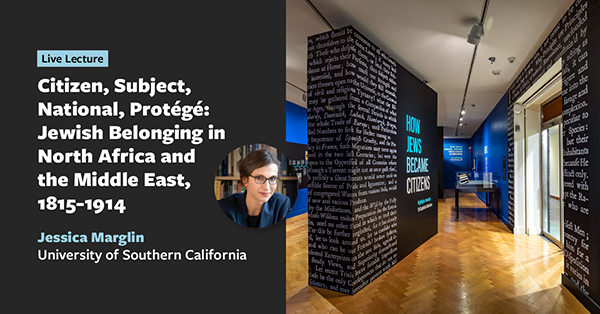
In-person Event
In this talk, Jessica Marglin (University of Southern California) will trace the modern history of Jewish citizenship in North Africa and the Middle East, including nationality legislation; the abolition of dhimmistatus; the status of Jews in European colonies; and their citizenship in independent nation-states.
About the Speaker
Jessica Marglin is Associate Professor of Religion, Law, and History, and the Ruth Ziegler Early Career Chair in Jewish Studies at the University of Southern California. She earned her PhD from Princeton and her BA and MA from Harvard. Her research focuses on the history of Jews and Muslims in North Africa and the Mediterranean, with a particular emphasis on law. She is the author of Across Legal Lines: Jews and Muslims in Modern Morocco (Yale University Press, 2016) and The Shamama Case: Contesting Citizenship across the Modern Mediterranean(Princeton University Press, 2022).
This lecture is part of the Sid Lapidus Lecture Series, programs created in partnership with the exhibition How Jews Became Citizens: Highlights from the Sid Lapidus Collection. Click here for information about the exhibit.
The exhibit and program have been made possible by the generous support of Sid and Ruth Lapidus, the National Endowment for the Humanities, the New York State Council on the Arts with the support of the Office of the Governor and the New York State Legislature, and the New York City Department of Cultural Affairs in partnership with the City Council.
Ticket Info: $8 general; $5 members, seniors, students; advance registration required at nxt.blackbaud.com
Presented by:


lecture
book talk
Morgenthau: Andrew Maier in conversation with Kati Marton – Live Book Talk & Livestreamed on Zoom
After coming to America from Germany in 1866, the Morgenthaus made history in international diplomacy, in domestic politics, and in America’s criminal justice system. With unprecedented, exclusive access to family archives, award-winning journalist Andrew Meier's new family biography vividly chronicles how the Morgenthaus amassed a fortune in Manhattan real estate, advised presidents, advanced the New Deal, exposed the Armenian genocide, rescued victims of the Holocaust, waged war in the Mediterranean and Pacific, and, from a foundation of private wealth, built a dynasty of public service. In the words of former mayor Ed Koch, they were “the closest we’ve got to royalty in New York City."
Join us live at the Center for Jewish History when Andrew Meier will discuss his book with journalist Kati Marton. Their conversation will also be streamed online.
One in-person attendee (selected at random) will receive a free copy of Morgenthau.
More About Morgenthau
Lazarus Morgenthau arrived in America dreaming of rebuilding the fortune he had lost in his homeland. He ultimately died destitute, but the family would rise again with the ascendance of Henry, who became a wealthy and powerful real estate baron. From there, the Morgenthaus went on to influence the most consequential presidency of the twentieth century, as Henry’s son Henry Jr. became FDR’s longest-serving aide, his Treasury secretary during the war, and his confidant of thirty years. Finally, there was Robert Morgenthau, a decorated World War II hero who would become the longest-tenured district attorney in the history of New York City. Known as the “DA for life,” he oversaw the most consequential and controversial prosecutions in New York of the last fifty years, from the war on the Mafia to the infamous Central Park Jogger case.
About the Speakers
Andrew Meier is the author of Black Earth: A Journey Through Russia After the Fall and The Lost Spy: An American in Stalin’s Secret Service. A former Moscow correspondent for Time, he has contributed to The New York Times Magazine, among numerous other publications, for more than two decades. His work has been recognized with fellowships from the Cullman Center for Scholars and Writers at the New York Public Library and the Leon Levy Center for Biography, as well as the National Endowment for the Humanities and the Woodrow Wilson International Center for Scholars. He lives in Brooklyn, New York, with his wife and their two daughters.
Kati Marton is the New York Times-bestselling author of nine books, including The Chancellor–The Remarkable Odyssey of Angela Merkel (2021), and Enemies of the People–My Family's Journey to America (2010). Her 2007 book, The Great Escape, tells the stories of nine extraordinary men who grew up during Budapest's brief Golden Age and fled antisemitism to the West, where they changed the world. An award-winning former NPR correspondent and ABC News bureau chief in Germany, Kati Marton was born in Hungary and lives in New York City.
Ticket Info: $10 general; $5 LBI/CJH/Partner Members, Students, Seniors; registration required at lbi.org/events/morgenthau/
Presented by:



book talk
film and discussion
A Yemenite Jerusalem Power Couple: The Story of Rabbi and Rabbanit Kapach – Live on Zoom
Join us for a movie and discussion! You will receive a link to the film "Two Legacies" three days before the program to watch at your leisure. Einat Kapach will join on Zoom to talk about making the movie, about her grandparents, their contributions to the Jewish world, and how we each gained from their legacy.
About the Film
Yosef and Bracha married when they were 12 in Sana`a, Yemen and lived together for close to 70 years. Yosef became absorbed in his books, while Bracha took care of the needy. Before he dies, Rabbi Yosef Kapach hands his granddaughter Einat, director of the film, a bundle of pages which uncover a secret he has kept close to his heart his entire life- the secret of the theological war that split the Yemenite Jewish community. The documents tell of his persecution as a young orphan by the Jews of Yemen, a persecution that continues until the day he dies in Israel. Having read these words, Einat sets out on a journey to understand why he chose her to pass on the legacy and how he managed to turn his life around from such a lonely point and to become a world-famous Jewish philosopher.
About the Director
Einat Kapach is a screenwriter and director who lives and creates in her native Jerusalem. A graduate of the Ma'aleh Film School with an MA from the Schechter Institute in Jerusalem, Einat lectures on film and Jewish identity in different communities in Israel and abroad including small Jewish communities in the US and Africa. She directed the award-winning film Jephtah's Daughterwhich played at numerous festivals around the world. She was a diarist in the film Peace Diarieswhich details the lives of Israelis and Palestinians over a six month period. Einat is frequently invited to lecture at various foundations and was a judge at the 2009 Jerusalem Film Festival. She recently directed the documentary film Two Legacies and her feature script At the End of a Long Daywon the Minister of Education's award for Artists in the field of Jewish Culture.
Ticket Info: $15; register at us02web.zoom.us for a Zoom link
Presented by:

film and discussion
lecture
Legitimizing Genocide: Science, Scholarship and the Complicity of the Academy – Live on Zoom
Antisemitic discourse operated in Nazi Germany as a way to legitimize antisemitic policy in German society. This discourse existed on multiple tiers, one of which was antisemitic “Jewish Research” which is the main subject of Alan Steinweis's book, Studying the Jew: Scholarly Antisemitism in Nazi Germany (Harvard University Press, 2006). Join Steinweis and YIVO's Executive Director Jonathan Brent for a discussion of how understanding this history can be used to understand antisemitism in other historical contexts, including the contemporary United States.
About the Speakers
Alan E. Steinweis is Professor of History and Raul Hilberg Distinguished Professor of Holocaust Studies at the University of Vermont, where he has taught since 2009. In addition to numerous articles and nine coedited volumes, he is the author of four books on Nazi Germany and the Holocaust, including the soon-to-be-published The People’s Dictatorship: A History of Nazi Germany (Cambridge University Press, 2023). He is presently conducting research for a new book focusing on the attempted assassination of Adolf Hitler in November 1939 by the German cabinetmaker Georg Elser. Steinweis has held fellowships at the Free University of Berlin and the United States Holocaust Memorial Museum, and has been a guest professor at the Universities of Beersheba, Hannover, Heidelberg, Frankfurt, Munich, and Augsburg.
Jonathan Brent is the Executive Director of the YIVO Institute for Jewish Research in New York City. From 1991 to 2009 he was Editorial Director and Associate Director of Yale Press. He is the founder of the world acclaimed Annals of Communism series, which he established at Yale Press in 1991. Brent is the co-author of Stalin’s Last Crime: The Plot Against the Jewish Doctors, 1948-1953 (Harper-Collins, 2003) and Inside the Stalin Archives (Atlas Books, 2008). He is now working on a biography of the Soviet-Jewish writer Isaac Babel. Brent teaches history and literature at Bard College.
Ticket Info: Free; register at yivo.org/WP2023-Keynote for a Zoom link
Presented by:

lecture
curator's tour

What does citizenship mean to you? What are the rights and responsibilities that come with citizenship?
Join curator Ivy Weingram for a one-hour in-person tour in which she addresses these meaningful questions in the special exhibition, How Jews Became Citizens: Highlights from the Sid Lapidus Collection. The Lapidus collection tells the complex, ongoing story of the Jewish people’s path to emancipation—the process through which Jews obtained rights—in Europe, across centuries. Read more about the exhibition here.
This tour will also be offered on February 5 at 2 pm and February 16 at 6 pm.
Please note that this tour is not available on Zoom.
The exhibit and program have been made possible by the generous support of Sid and Ruth Lapidus, the National Endowment for the Humanities, the New York State Council on the Arts with the support of the Office of the Governor and the New York State Legislature, and the New York City Department of Cultural Affairs in partnership with the City Council.
Ticket Info: Pay what you wish; registration required at nxt.blackbaud.com
Presented by:

curator's tour
lecture
Boots, Arms, and Spoons: On the Material Lives of Jewish Partisans in German-occupied Lithuania (1941-1944) – Live on Zoom
In her memoir “A Partisan in Vilna” (2010), Rachel Margolis, a Jewish partisan from Lithuania, recalls how a pair of warn-out but comfortable boots “saved” her during long marches in the forest. Partisans like Margolis often left memoirs, testimonies, letters, and other materials that enable us to investigate how they manufactured, looted, estheticized, exchanged, or destroyed various objects that allow historians to explore the everyday life in the resistance. Many of such materials are held in the YIVO Archives.
By focusing on the material existence of Jewish partisans in Lithuania, Justina Smalkyté makes the argument that the ways material objects were used to carry out resistance activities and perform violence, tell us much about social relations and ethnic hierarchies in the partisan camps. In this lecture, she examines the social differentiation in the partisan camps based on possession of certain scarce objects such as boots, better food rations, and arms. The ways such objects were gifted, stolen, or distributed among partisans challenges the idea of the comradely cross-ethnic partisan community on which the communist recruitment propaganda was based. She also will address the experiences of cold, hunger, fatigue and injuries that defined partisans’ material lives in the camps and examines the issue that despite such shared experiences, ethnicity and gender remained important differentiating factors in the partisan community.
About the Speaker
Justina Smalkyté is a PhD candidate at the Sciences Po Center for History in Paris where she is preparing a dissertation on anti-Nazi resistance movements in German-occupied Lithuania (1941-1944). She holds a double MA in European History from Université Paris Cité and Humboldt University of Berlin and a BA in History from Vilnius University. Her doctoral research examines resistance through the lens of material culture: while focusing on a wide range of material objects used by anti-Nazi resistance members her thesis attempts to shed a new light on practices of resistance and violence in Lithuania under German occupation.
Her publications include the book chapter “Gender, Ethnicity, and Multidirectional Violence in the Last Months of the German Rule in Lithuania: A Case Study of Local Force Battalions” in Reshaping the Nation: Collective Identities and Post-War Violence in Europe 1944–48 (Palgrave Macmillan Press, 2022), and the forthcoming “Politics of Selective Remembering in Post-1990 Lithuania: A Case study of Lithuanian Post-Fascist Far-Right Mnemonic discourse,” which will appear in the volume Far Right Memory Politics in the Internet Era (Södertörn Academic Studies, Sweden).
Her research has been supported by research grants of the Foundation for the Memory of the Shoah in France, the YIVO Institute for Jewish Research in New York, the Association for the Advancement of Baltic Studies, and the Moshe Mirilashvili Center for Research on the Holocaust in the Soviet Union at Yad Vashem in Israel.
Ticket Info: Free; register at yivo.org/Boots-Arms-and-Spoons for a Zoom link
Presented by:

lecture
lecture
Building Your Family Tree with the Genie Milgrom databases – Live on Zoom
Join us as Genie Milgrom shows you the databases available and how to use them to build out your family tree and complete the application process.
Ticket Info: Free; register at us02web.zoom.us for a Zoom link
Presented by:

lecture
